100 Best Foreign Shows on Netflix Right Now
As the biggest name in streaming, it won’t be a surprise to hear that Netflix has one of the biggest libraries of movies and shows. The American streaming service obviously hosts plenty of Hollywood blockbusters and indie hits, but viewers might be surprised at the variety of their library, with some shows acquired (and sometimes produced) by Netflix from all over the world. Depending on your algorithm, you might find some of them come up top in your home page, but if you’ve stuck with Hollywood films and want to start watching something out of your comfort zone, we’ve listed some of the best foreign series available on Netflix for you to start.
Jump to the top 10:
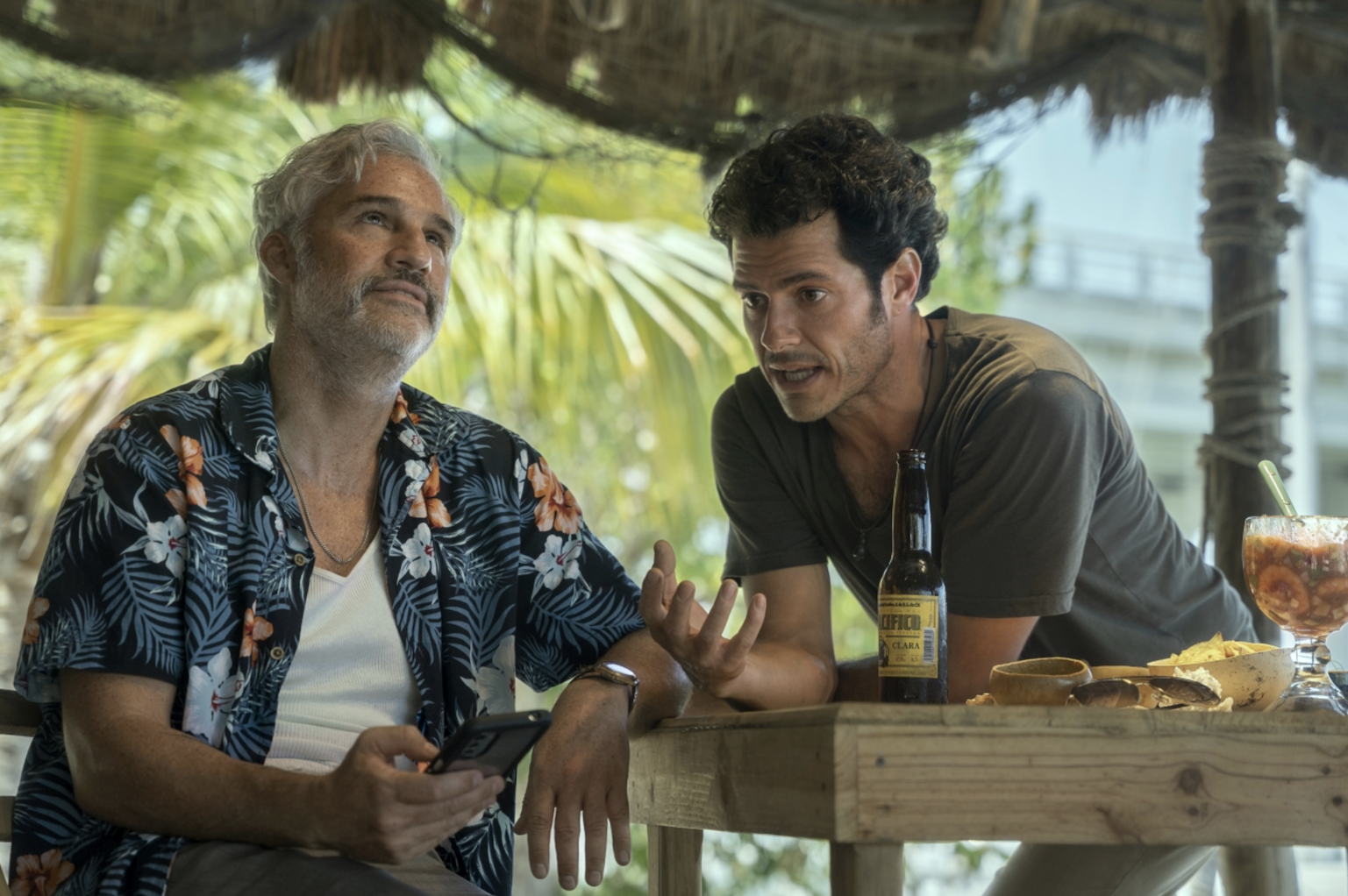
With a title as generic as Bandidos, the series is set up exactly how you’d expect: a charming group of antiheroes and weirdos somehow coming together and pulling off improbable schemes while cracking jokes and flirting with each other. There’s a reason this formula works, of course, and the show’s charismatic cast helps greatly in making this a smooth watch—especially during set pieces that almost always end in narrow escapes. But the series also isn’t able to inject enough of its own personality into the story (at least in the first two episodes watched for this review), which when coupled with obligatory, forced romance and uncomfortable jokes constantly made towards a minor, only causes Bandidos to fade into the already oversaturated realm of heist shows and movies with the exact same attitude.

There is nothing in this Netflix docuseries about the disappearance of the ARA San Juan that you can’t read or watch anywhere else on the internet. The case itself is interesting, brimming with political controversy and engineering lessons to be learned, but the series’ narrative structure and editing are so formulaic and dull that they fail to bring justice to the promising premise. The flow is rocky, the build-up is missing, and the focus is scattered, so much so that a two-hour story, at best, has unnecessarily expanded itself into eight episodes. It’s not that the filmmakers have so much to say, it’s that they don’t know how to say it. If we can learn anything from this docuseries, it’s that any story no matter how big or small will suffer from a lack of direction and vision.
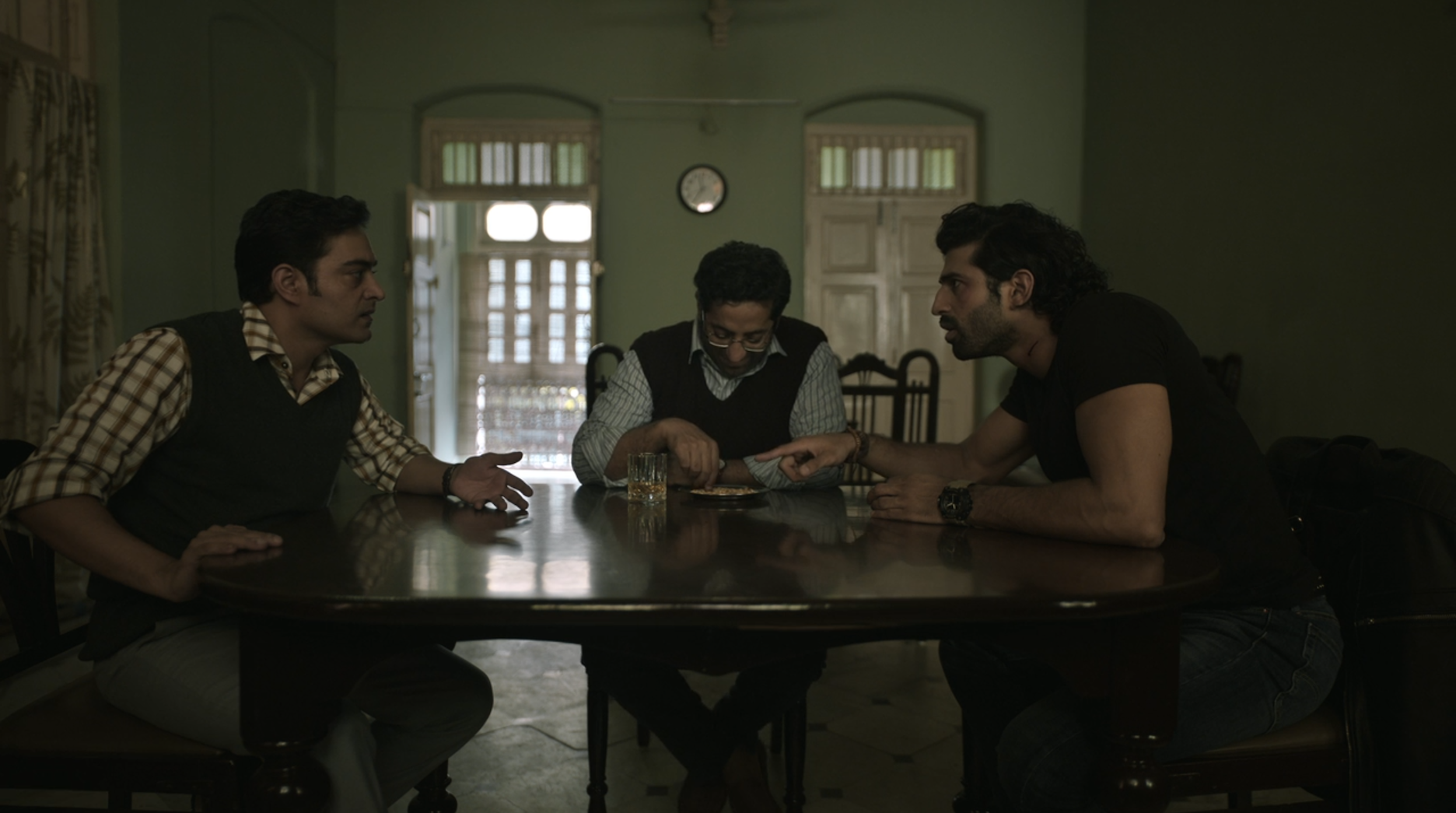
As far as heist stories go, Choona gets points for placing so much importance on the act of getting its team together. The first two episodes watched for this review don’t advance forward in plot as much as they pivot from one point of view to another around the same moments in time. Unfortunately, because the series is so particular about its own structure, it loses sight of the reasons why we should be emotionally invested in the heist in the first place. There is a world of gang violence sketched out in these early episodes, but little sense of what’s actually at stake. And with the show’s over-reliance on voiceover narration, Choona sucks the tension out of its plot, as this seemingly omniscient voice constantly keeps us at a distance.
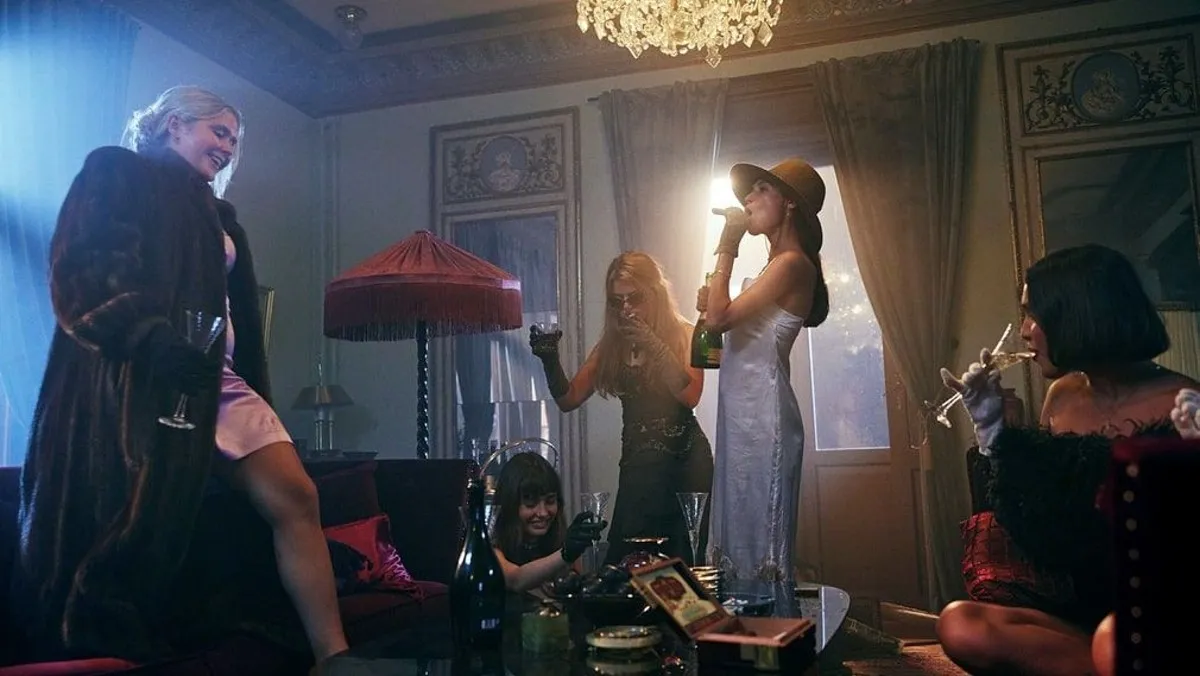
The most obvious cultural reference point for Barracuda Queens is The Bling Ring: both tell the based-on-real-life stories of a group of (mostly) wealthy young women who rob rich people’s houses. But where Sofia Coppola’s movie was rooted in a very specific era and explored the fascinating generational and psychological quirks that drove its disaffected teen burglars to do what they did, this Swedish Netflix series, at least in the first four episodes viewed for this review, makes only a half-hearted effort to evoke its ‘90s setting and takes a much soapier, less forensic approach to its story.
Here, the young women’s gateway into crime is the sky-high bill they rack up after a debauched weekend away. In need of cash to pay it off quickly, they convince themselves that they’re only robbing their wealthy neighbors to solve that problem, but other motivations soon arise. The women — who are mostly university-age, but seem closer to the protagonists of a teen drama — eventually begin to target people they have petty grievances with (like a love interest who spurns the ringleader after a one-night stand) as well as those who have wronged them more seriously (including a rapist, who gets off bizarrely lightly). The adrenaline rush of it all proves addictive for the gang, too. What’s more, for Mia (Tea Stjärne), the only member of the group not from a wealthy background, there’s also a Robin Hood-ish appeal to the burglaries, although this aspect regrettably takes something of a backseat to the girls’ escapades in the show.
Between the gang’s crime spree and their unbelievably dysfunctional home lives, there’s enough broad drama here to keep Netflix’s autoplay function in good use. Even if it doesn’t provide keen insight, sharp nuance, or a remotely realistic plot, the show does go beyond a surface-level approach by exploring something of the girls’ inner lives, the class dynamics of their friendship group, and the shallowness of their parents’ milieu. At three hours total — and with an opening scene that teases a dramatic rise-and-fall story ahead — it all makes for a very bingeable, if ultimately forgettable, watch.
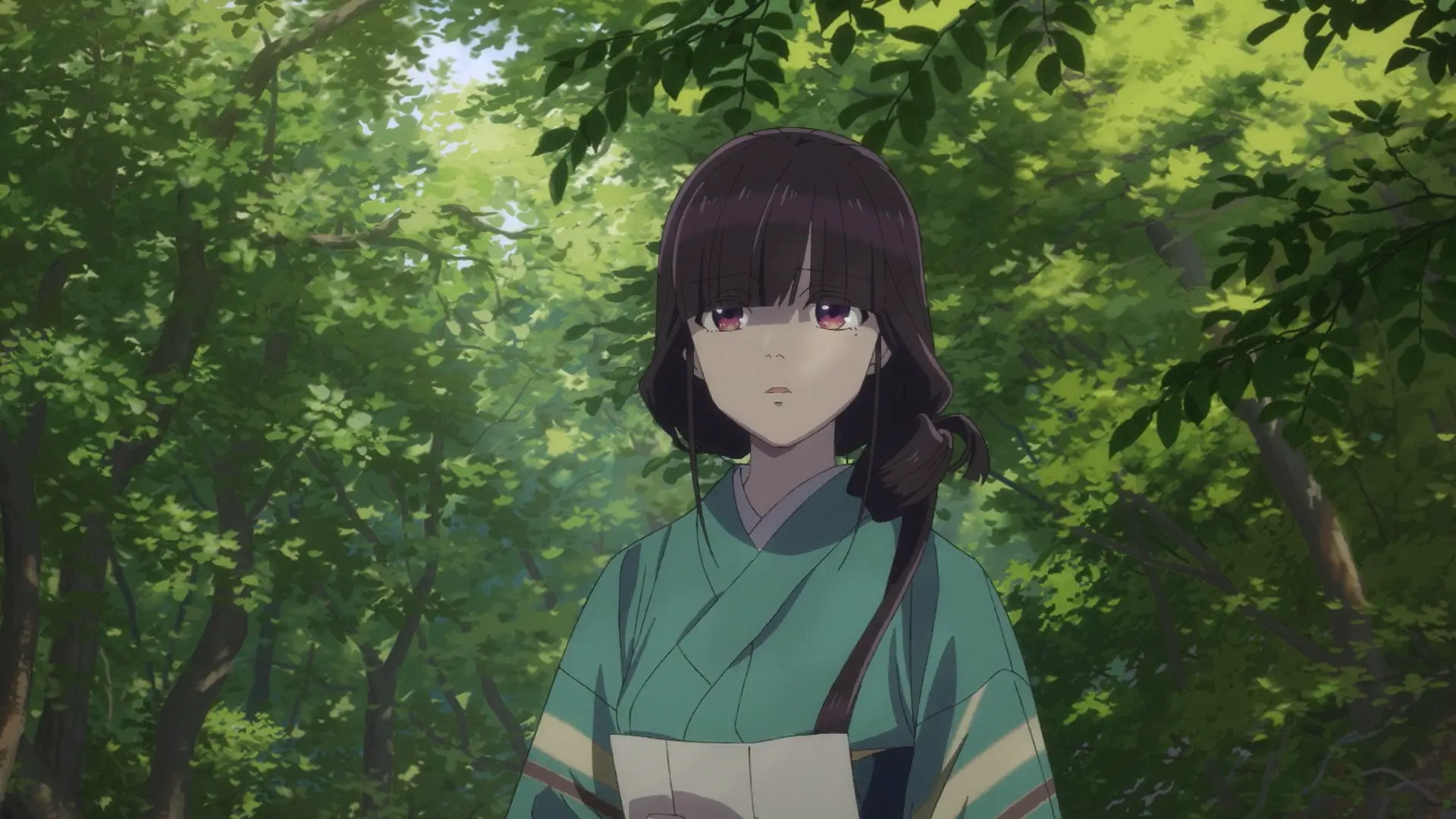
The best thing about a Cinderella story is knowing she’ll get a Prince Charming™ by the end (with or without the rats and pumpkins). The first episode of My Happy Marriage sets up the fairytale expectations to a T. Mistreated by her step-mother and step-sister – and a tragic mom-is-dead backstory – this anime hits expected beats which means it’ll either be a comfortable watch or a predictable skip. The silver lining comes when Miyo’s step-sister marries her long-time crush while she is sent away to marry a difficult man known to repel his suitors. A swoon-worthy, slow-burn romance is surely on the horizon, enveloped in a strikingly beautiful, dreamy animation.

There are few surprises to be had in The Manny, and its more dramatic moments feel more like obligatory interruptions to its romcom formula rather than elements to organically ground the story in something more substantial. Still, the characters are charming because of how imperfect they are: the kids are naive but well-meaning and sweet; while the adults don’t always give advice that works, caught up in their own grown-up problems. So even if the show sort of rushes into its found family set-up, easygoing chemistry between the actors makes it easy to believe that these people would still listen to each other with respect despite any differences in background.
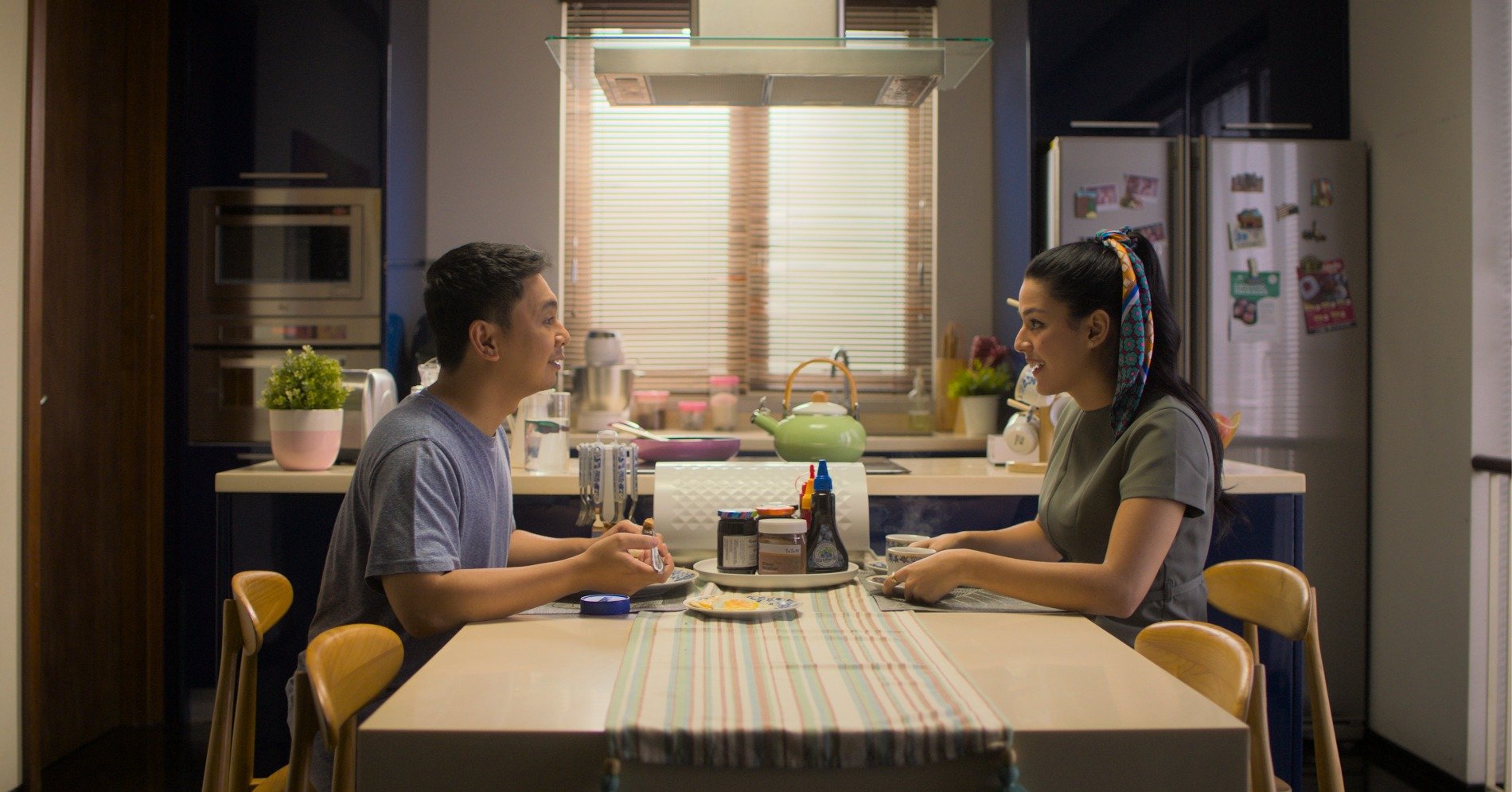
As is oddly common for TV shows revolving around stand-up comedy, the actual jokes in Comedy Chaos are mostly duds—or in this case, may have been greatly lost in translation from the original Indonesian. But while the show’s humor is only ever mildly amusing at best, it opens with a pretty compelling set-up: a protagonist fired for speaking up for labor rights, a marriage that has its miscommunications but remains firm, and characters who are all constantly plagued by money problems. So there’s a relatability to Comedy Chaos that keeps it intact, and it’s refreshing to see this series resist the usual cliched conflicts you’d expect to see early on.

As impressive as Vasco Rossi’s life was, it’s hard to connect to someone you haven’t heard of, which is probably why this docuseries is best seen by die-hard music fans alone. The series takes its time to introduce Rossi and explain his impact on Italian music, but even then, it can seem like something you’ve seen before. The documentary shies away from the cultural specificities and nuances that make Rossi the singular musician that he is, attempting instead to generalize his life into clear-cut sections as if it were a book. Even with Rossi present and narrating many parts of the series, it still lacks the ruggedness and spikiness that made Rossi’s music burst with relevance in the late 20th century. There is a sense that the filmmakers created this series with an international audience in mind, but by making his story as general and universal as possible, they might have inadvertently diluted Rossi’s power.
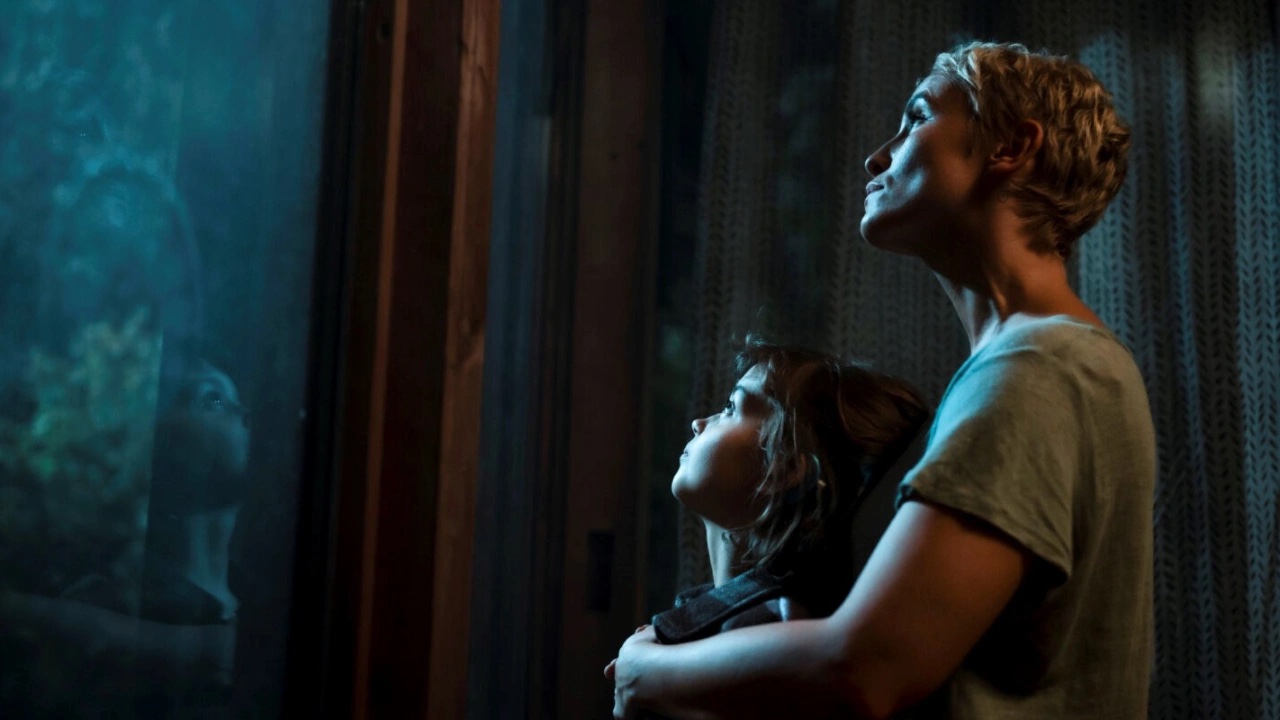
At its core, The Signal is a compelling mystery made even more interesting by its sci-fi elements and tender father-daughter moments. The problem is that it goes on for way too long. This could’ve been a very engaging two-hour film, watchable from start to end, but because of its convoluted storytelling and unnecessarily slow pace, it’s an overlong four-part series. There’s a sense that writer and star Florian David Fitz, who plays Sven, had too much fun with the script’s non-linear and multi-perspective approach, but instead of elevating the material, it drags it down with lulls and entire scenes that could’ve been removed from the final cut. The Signal is not necessarily bad; in fact, for a series, it’s impressive how high its production value is and how trippy its mystery gets. But it would’ve been more impressive if Fitz had trimmed the fat off the story and condensed it into the feature-length film it should’ve been.

With the current deluge of biopics streaming, it’s easy to overlook Clark, Netflix’s fictionalized take on Clark Olofssonm, from whom the term “Stockholm Syndrome” was coined. Bill Skarsgård, Hollywood’s favorite onscreen creep, returns to his native Sweden and plays the titular criminal with such feverish passion that it’s impossible to take your eyes off the screen.
The delirious editing (bordering on excess or camp, depending on your taste) also makes it quite the standout among all the sober real-life adaptations. Clark will surely be hit-or-miss for most people, but its riskiness alone is enough reason to watch.
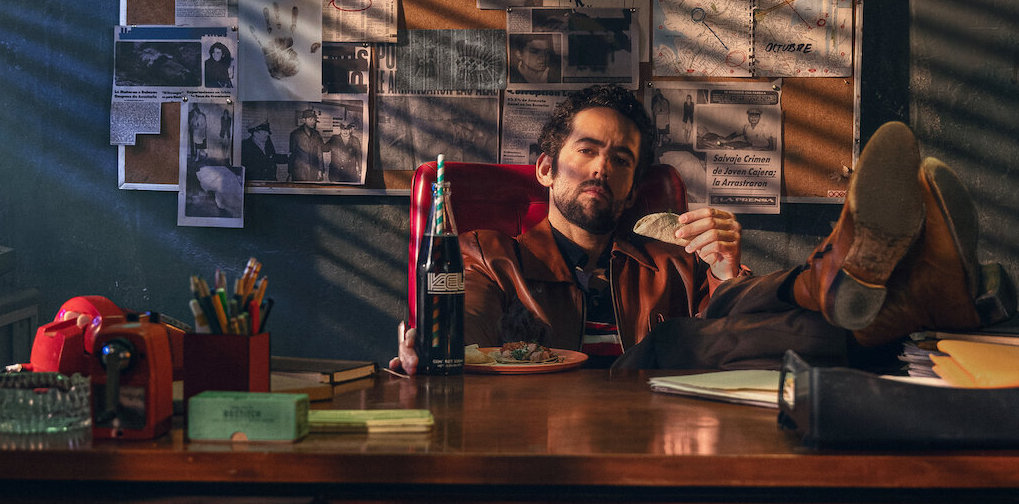
Mexico City, 1970. Héctor Belascoarán leaves his stable office job and beautiful (but unhappy) marriage to pursue the adrenaline-filled life of a private detective. The police are useless, Héctor points out, not to mention corrupt and often in on the crime, so it’s up to him to tackle the many unsolved cases that haunt the city he loves.
Because he thinks himself a hero, Héctor narrates each episode in that nostalgic noir way, but the catch is that he is, in fact, no slick savior. Hector is still a rookie, prone to blunders and miscalculations, but his perseverance saves the day. In this way Belascoarán, PI is both a tribute and a sendup of detective films of yore; it references the genre in style and substance, but it isn’t above joking about it either. It’s proof that you can challenge viewers without sacrificing the laughs, and vice versa.
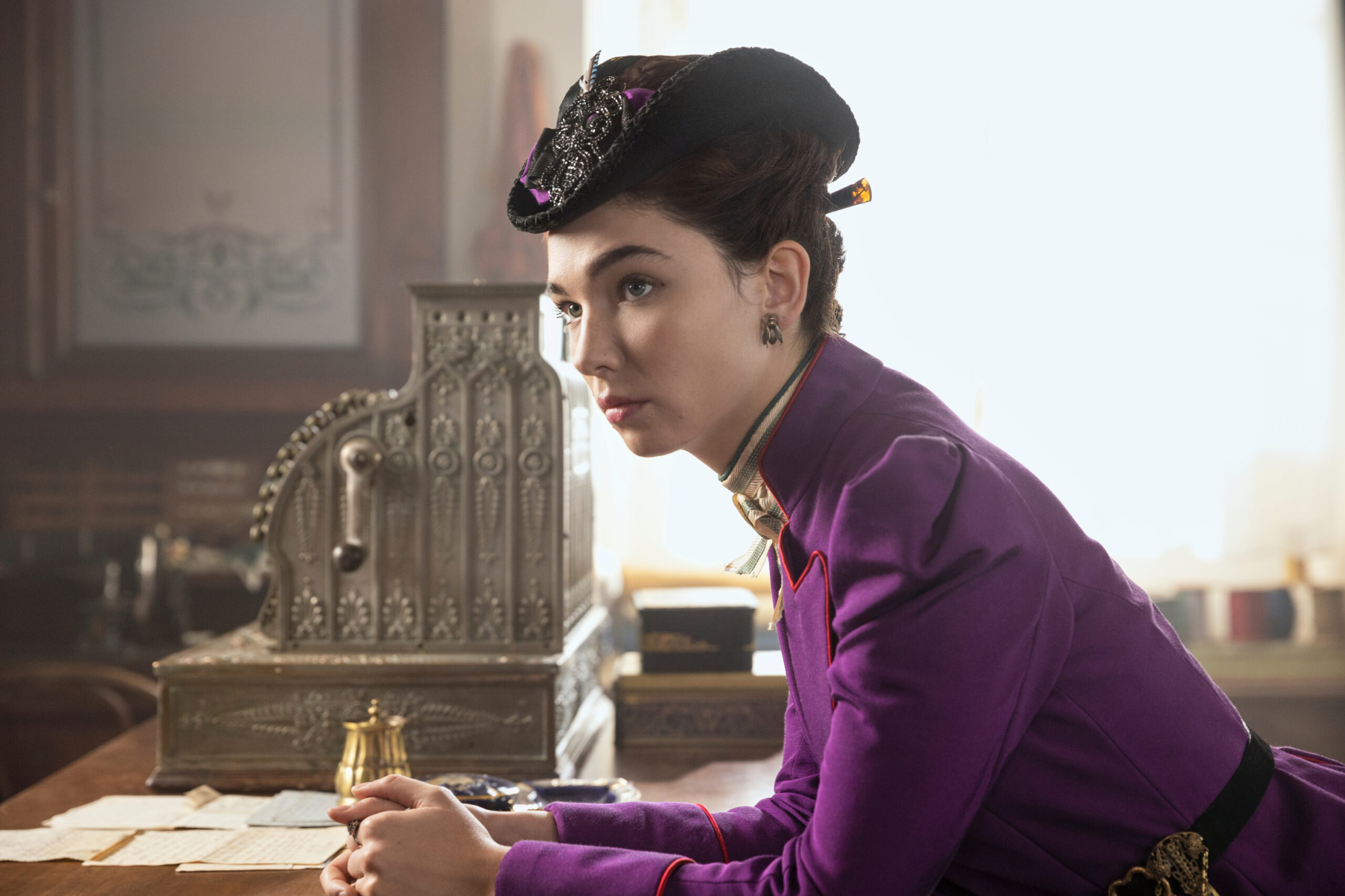
This six-episode whodunit isn’t breaking any new ground, but it’s entertaining and engaging, especially with the rebellious Lidia Poët (Matilda De Angelis) as the lead. She’s smart and determined but not wholly immune to weaknesses—a sort of Enola Holmes for the more mature crowd. Her story is also a timeless reminder of the uphill battle women have fought (and are continuing to fight) for visibility and equality.
The familiar setup might also work for classic mystery fans. It’s a treat to dive into each episode knowing a new case is to be solved and a new lesson to be learned. The ending might be predictable at times, but this is one of those shows where the journey matters more than the destination. Italy in the early 20th century was a surprisingly restrictive and patriarchal society, making Lidia’s successes all the more noteworthy and resonant.
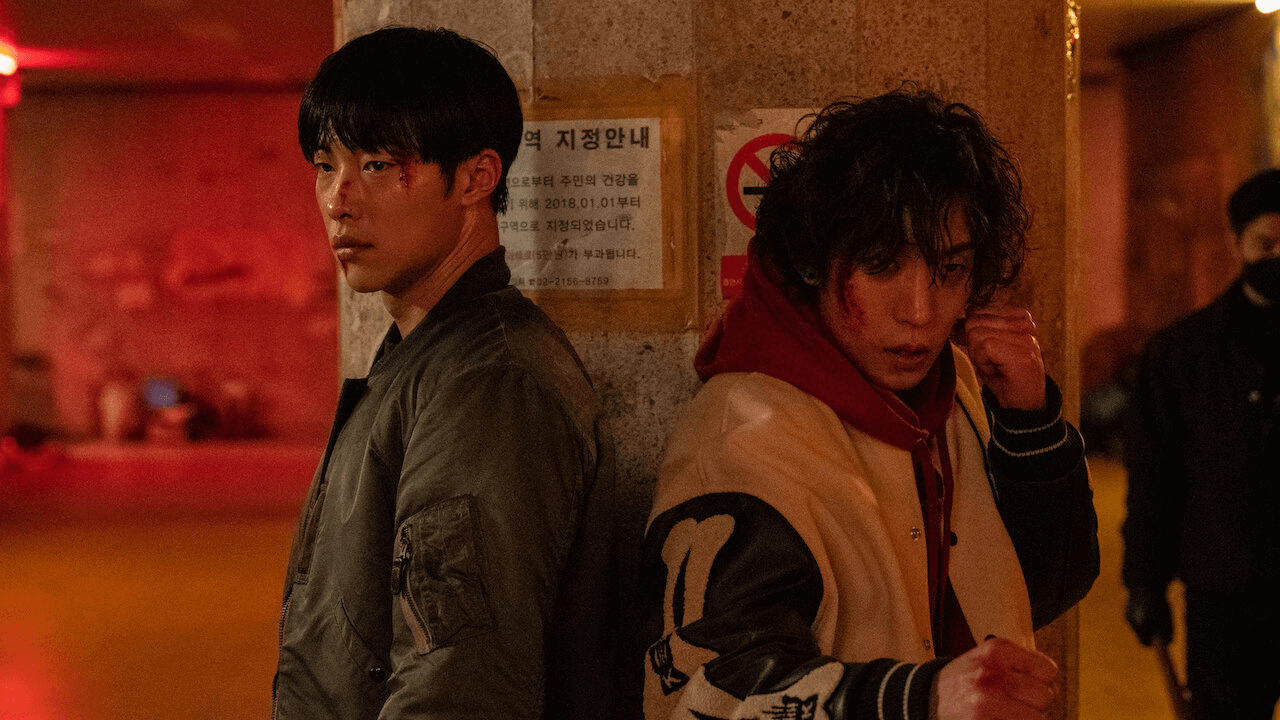
Aspiring boxer Kim Gun-woo (Woo Do-hwan) befriends fellow rookie Hong Woo-jin (Lee Sang-yi) during the heights of Covid-19. After a ruthless loan shark, Kim Myung-gil (Park Sung-woong) cons Gun-woo’s mother into taking a predatory loan, they team up with a moneylender (motivated by his own painful history with Myung-gil) to shut down his schemes for good.
As with many South Korean revenge action thrillers, Bloodhounds sheds light on the economic exploitation of the working class. Standard, to the point of being predictable, the fight for justice feels formulaic and quickly paced due to its oversimplified and convenient plot. With an abundance of zestful action scenes and empathic beats, the series delivers enough on its promised premise.
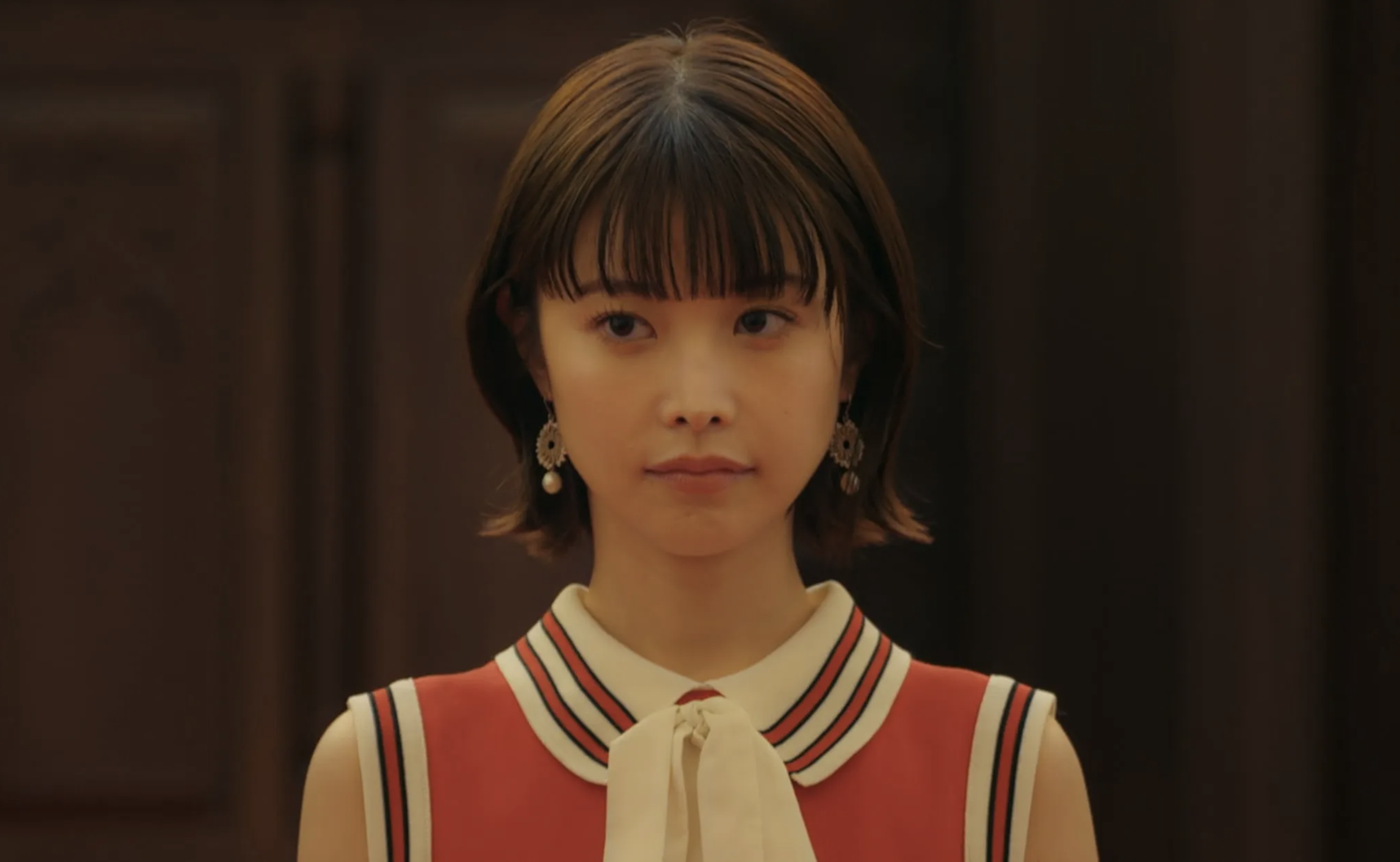
Even within the first two episodes of the Japanese reality series Is She the Wolf? (a spin-off of parent show Who Is the Wolf?), it admittedly isn’t very clear how the premise works. At least one female contestant in this pool of 22- to 32-year-olds—all of whom happen to be performers of some kind—has been told that they ultimately cannot reciprocate when somebody chooses them by the end, though they don’t seem to be told what they win if they comply. And with the reveal of who one wolf is during the first episode, the twist starts to feel more cruel than intended, with the chosen woman feeling genuinely heartbroken about not being able to get closer to the man she’s interested in.
But it sure makes for good TV. With this layer of suspicion and heightened emotional stakes, even watching the supposedly regular contestants becomes more engrossing: are they sincere, or are they using their performance backgrounds to good use? And despite the central twist, there’s still something calming about Is She the Wolf?, as all of the contestants are refreshingly polite and soft-spoken—avoiding the kind of trashy behavior that often makes American dating shows equal parts exciting and irritating. These are just well-adjusted adults with jobs exercising caution as they get to know one another.

Song of the Bandits takes time to gain momentum, but when it does, it crackles like gunpowder. The first few episodes take great pains to explain occupied Korea’s complicated political situation (China, Japan, and a few Western bodies fight over its resources), and unsurprisingly, Song of the Bandits champions the motherland’s cry for independence. It’s a very patriotic show that doesn’t leave a lot of room for other sides, often even bordering on melodrama in its calls for justice, but that should be expected in any war-set story. Once it gets into gear, however, it delivers all the thrills you’d expect from a neo-Western. There’s a lot of gunslinging, backstabbing, espionage, and sure enough, bandits chasing a loaded train on horseback. Depending on where you stand, it also comes as a satisfying revenge thriller, one that distorts history to give this fictional Korean rebel army their due. It’s a bit like Inglorious Basterds in that it follows a paramilitary group comprised of offbeat but vicious characters, but I’d say it’s mostly similar to another Netflix history K-drama, Mr. Sunshine. If you like either (or better, both), then you’ll love Song of the Bandits.
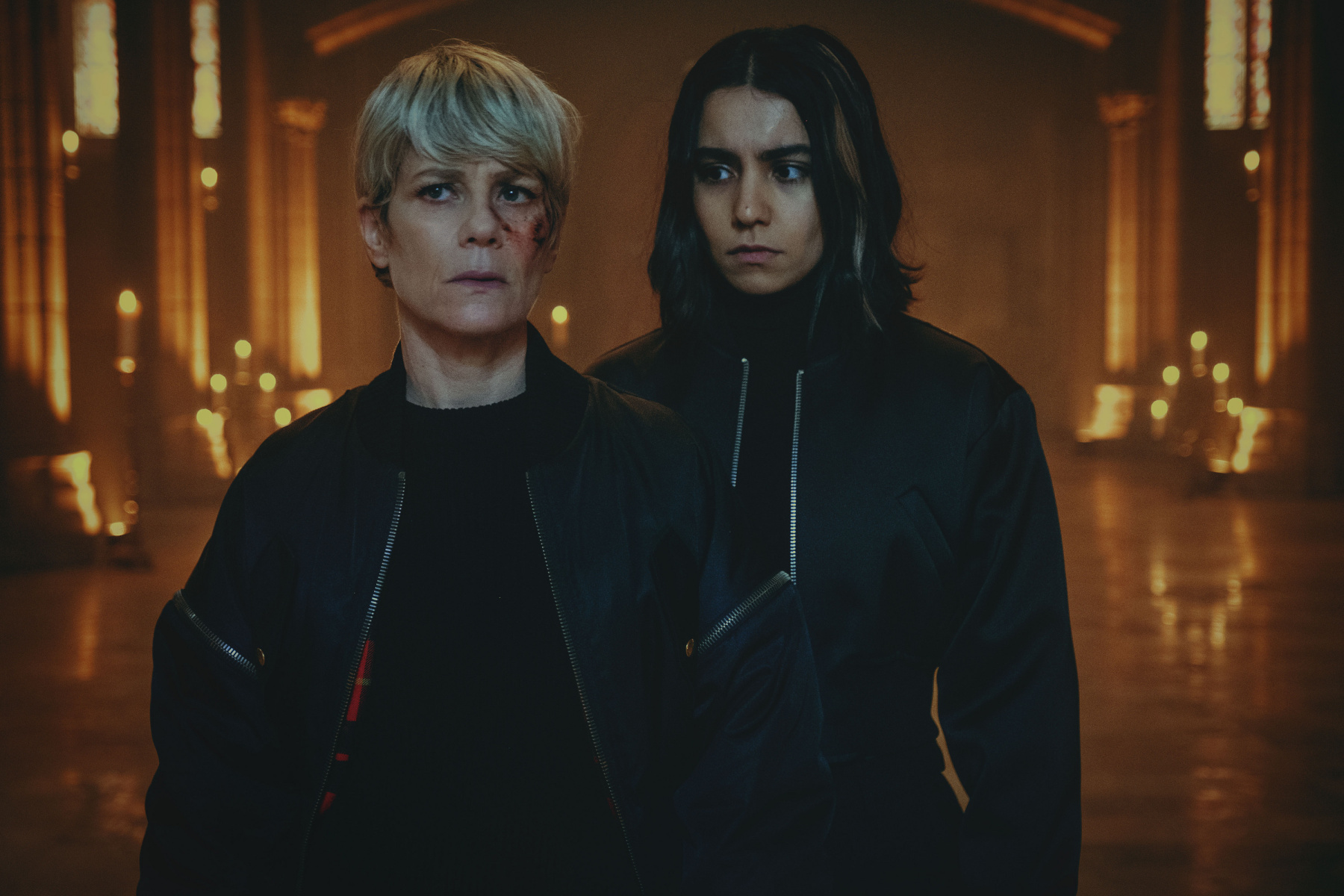
Like John Wick before it, Furies follows a vengeful and near-invincible (albeit rookie) assassin as she infiltrates the criminal underworld and avenges a murdered loved one. There are other similarities too, like the lofty codenames and the intricately choreographed action sequences, but otherwise, Furies is its own solid thing. Owing to its format, it has more melodrama and plot twists, and has a lot more room to flesh out its main character, Lyna. It’s also more of a team effort than a solo show since, as the name suggests, Furies is more of a team, a family even. It can get cliche at times, and my main gripe is that Lyna gets too good at her combat skills too fast, but if you can overlook those details, then Furies is wholly enjoyable: gritty, stylish, fast-paced, and most importantly, action-packed.

Reading the synopsis of this ten-episode comedy series might put you off at first. It follows four male friends who navigate a world where women now seem to have the upper hand, or at least that’s what it looks like from their point of view. Thankfully, that view is increasingly challenged and sometimes even deconstructed throughout the show’s run. Their female partners and counterparts flip the coin to reveal the other side of whatever they’re going through, so without ever feeling too preachy, Alpha Males presents the Battle of the Sexes in a surprisingly fair, insightful, and lighthearted way.
Raunchy without being too offensive (for the most part), Alpha Males is proof that you can still tackle sensitive topics without sacrificing comic fun and good humor.
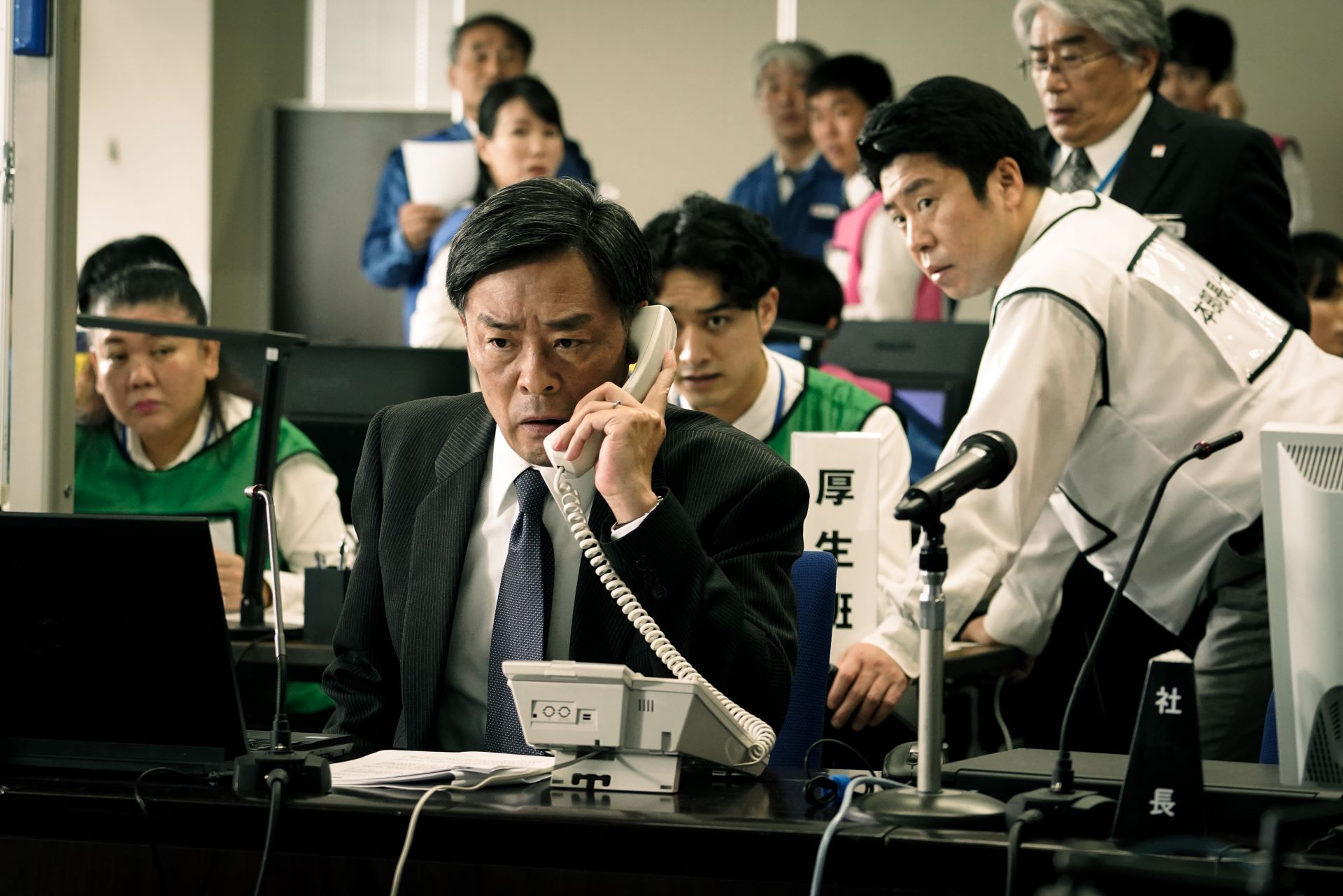
The series follows three perspectives: a government official, a Tokyo Electric Power Company employee, and a worker at the Fukushima Daiichi Nuclear Power Plant, each with their respective teams tackling the aftermath of the March 11, 2001 earthquake and tsunami. From the reporting updates to the public to the dedication of first responders, ‘The Days’ excels at piecing together the macro- and micro-decisions that went into saving the residents of Fukushima. The series deepens the narrative to be more than a mere recollection with its scenes of the families of the victims and the residents as they evacuate their homes. Its steady pace, emotional close-ups, and suspenseful score capture the harrowing atmosphere of Japan’s worst natural disaster.
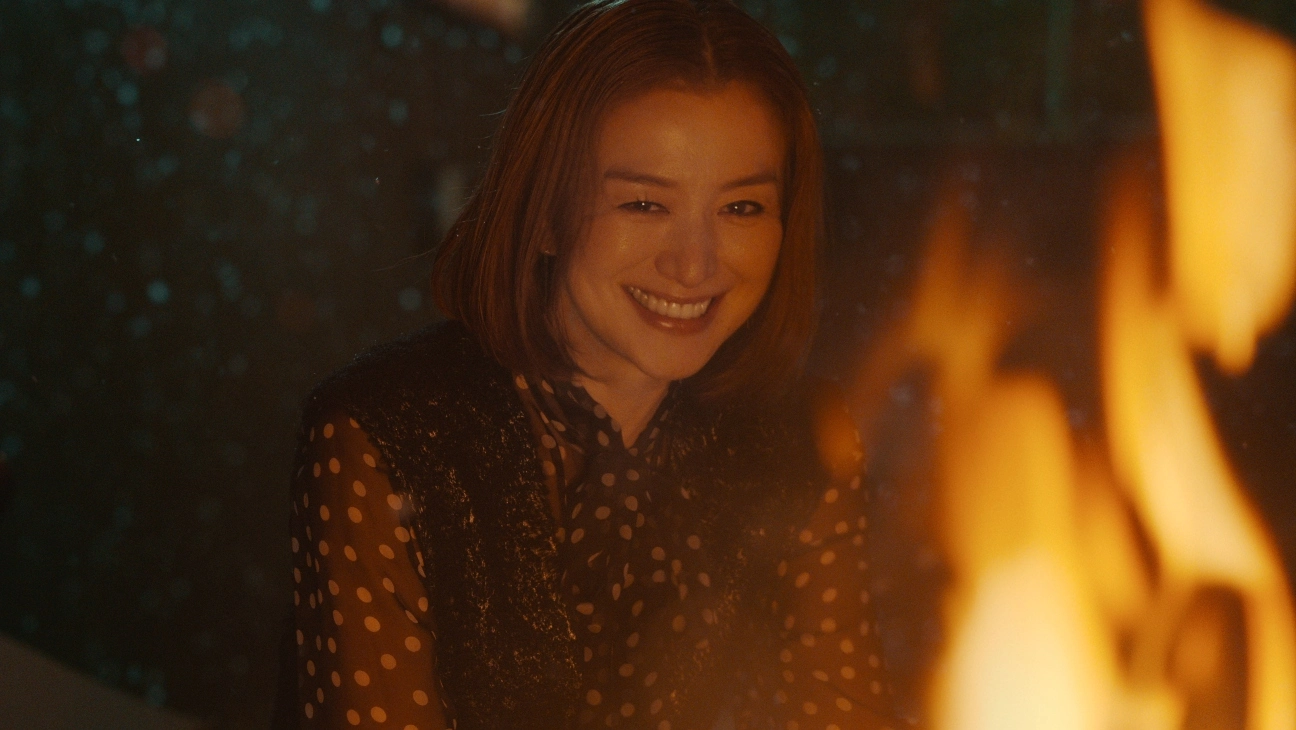
Not fully a mystery and not entirely a thriller, yet on the cusp of both, the initial setup of Burn the House Down promises a definite answer and dismantles it in every episode. Sure that her mother was framed, Anzu infiltrates Makiko’s new lavish life to prove that the fire set to her home thirteen years ago was no accident. She knows the culprit but lacks evidence, but when she’s reacquainted with Makiko’s eldest son, his reclusive demeanour takes a sinister turn. The premise is straightforward, yet it’s hard to look away from Anzu skulking around as she finds remnants of her mother’s old life and sweet-talking the family that destroyed hers. Trying to piece together that fateful night isn’t simple but feels worth the unexpected detours three episodes in.
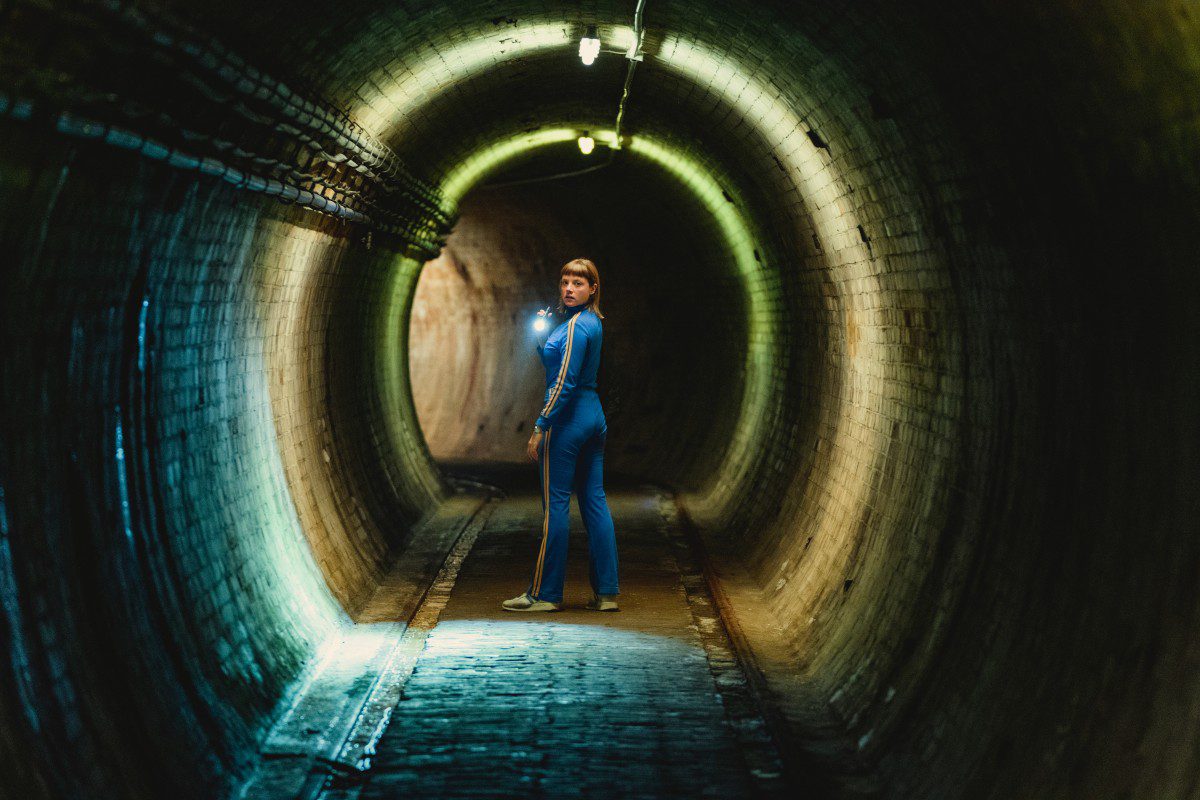
Revenge stories are always fun, especially if you have someone like Jella Haase (who plays the titular spy Kleo) to helm them. Haase switches from scorned to spritely with such ease, making the otherwise formulaic plot of the show a breeze to watch. The disguises, the getaways, the killings, and the chase are all expected but nonetheless enjoyable in this show.
If you’re looking for the next Killing Eve, this just might be it. Aside from the leads’ cheerfully deadly ways, the two shows also share the similarity of having enemies obsessing with each other, resulting in a cat-and-mouse chase that’s hard to peel your eyes off from.
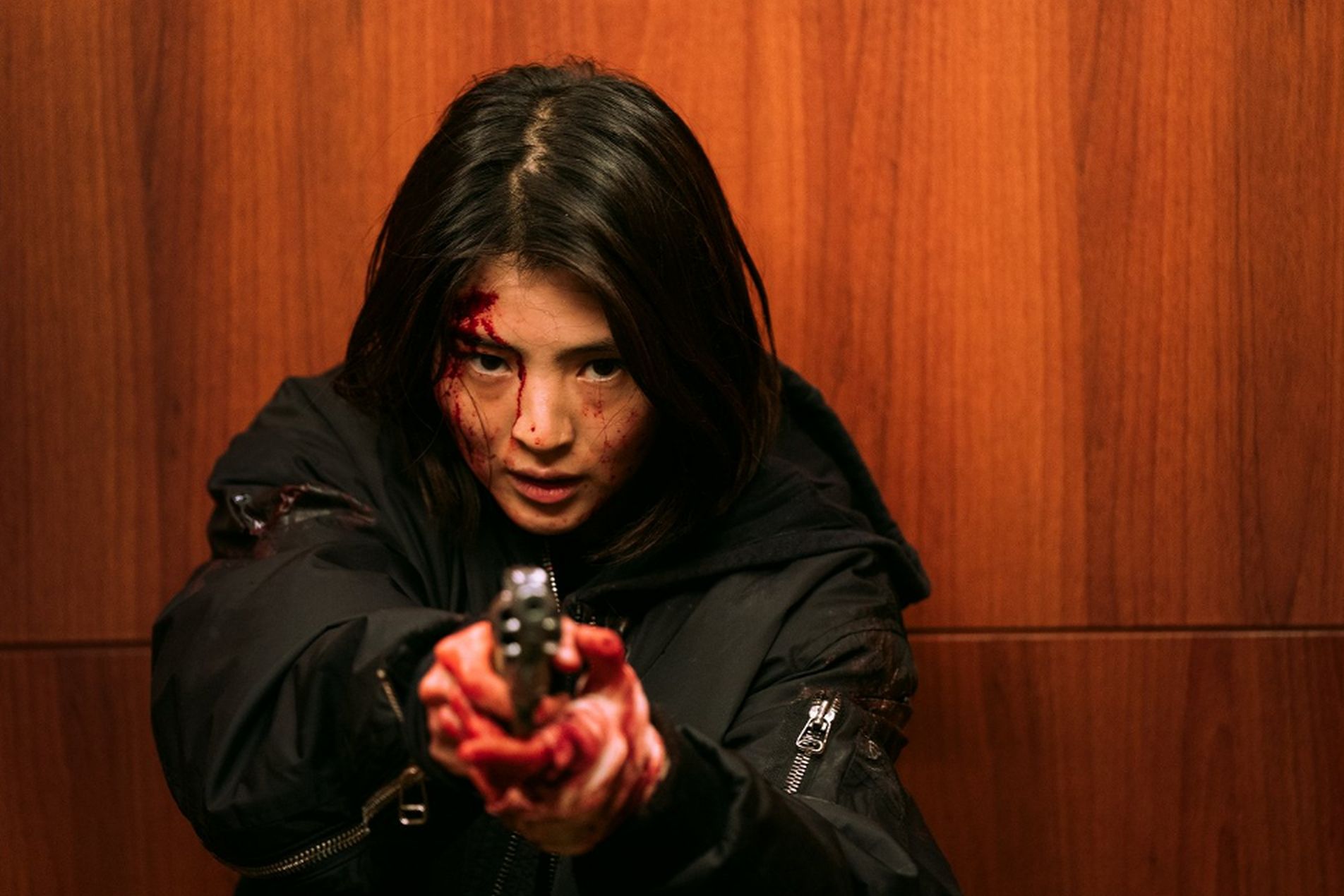
If there’s one thing South Korea has a lock on, it’s great revenge stories. This thrilling and intense series follows the journey of a determined woman turning to a powerful crime ring to help her seek revenge for her father’s death. With a fast-paced storyline and expertly executed action sequences, the show keeps you on the edge of your seat from start to finish within a neat eight episodes.
Supported by Han So-Hee’s strong performances, a tight script, and the unrelenting bloody fights, My Name delivers a satisfying blend of suspense and drama making it a must-watch for fans of crime thrillers.

Making a bucket list at the height of a zombie outbreak seems ridiculous, yet totally reasonable when you’ve spent the last three years overworked and undervalued. In real life, our workforce already feels zombified as higher-ups enslave the working class to high production and insufficient pay, so it’s nice to see Zom 100 exemplify that notion. Zom 100 also immediately captures that essential reminder to “live now,” which has become especially relevant as the Covid-19 pandemic found most people rekindling old hobbies and discovering new ones as death and sickness felt ever near.
Though there isn’t a lot of character-building in episode one, the titular 100-item bucket list promises an eye-opening, personal journey with our protagonist Akira. Thankfully, the opening didn’t shy away from the gore and electrifying tension of the zombie attacks, making this an interesting horror/slice-of-life/coming-of-age/drama to keep an eye on.
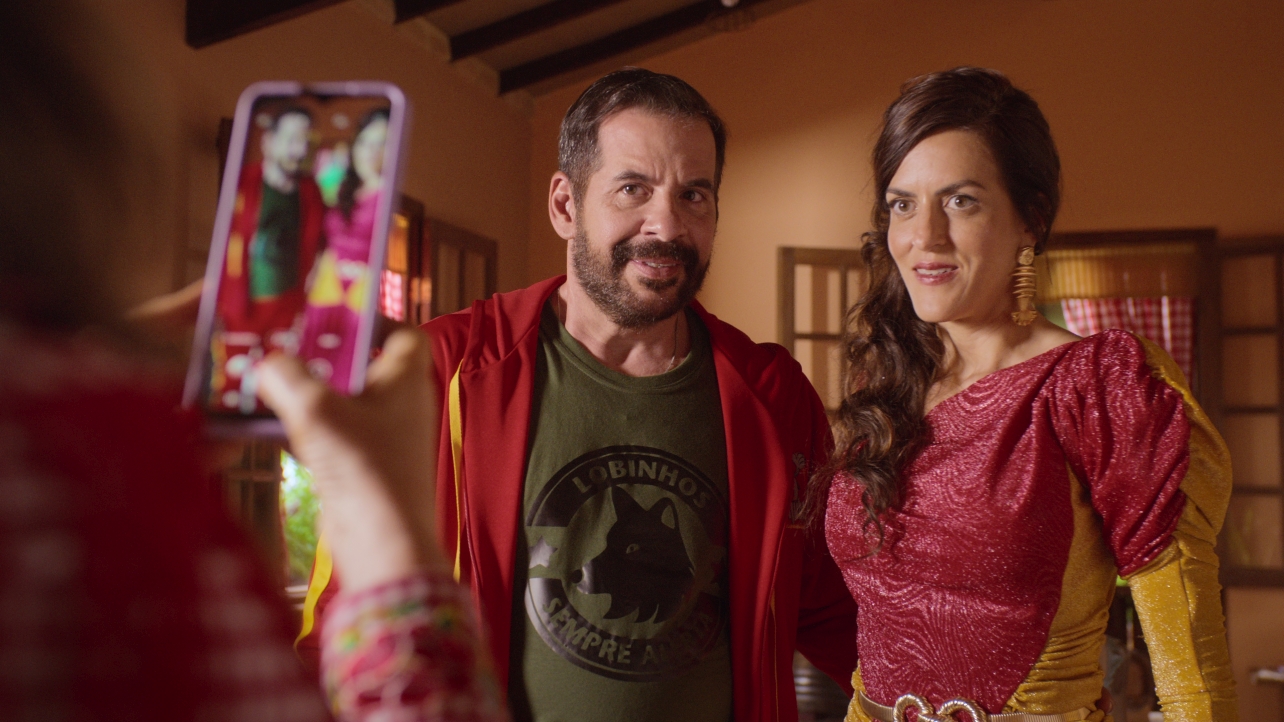
Reporting for Duty is a delightfully chaotic workplace comedy that seeks nothing more than to entertain, and it fulfills this mission by packing each of its 30-minute episodes with lovable characters and silly plotlines. This alone makes it worth the watch, but it has layers to it that give it more heart and nuance than you’d initially expect. For instance, both the show and the precinct are led by the soft-hearted Suzano (Leandro Hassum), who proves to his team that you don’t always have to be tough and violent to get results. His presence also inspires the precinct to adopt a wider perspective and appreciate life outside the grind-and-hustle culture expected of them. To be sure, Reporting for Duty is a breezy, lighthearted watch, but I appreciate the underlying ideas that fortify its comedy.

Fear and paranoia are the hallmarks of plenty of thriller series, but Who Were We Running From? takes this paranoia on a whole other level. Based on a 2007 novel, the Turkish mystery series is centered around a mother-daughter duo with a codependent relationship. Flitting from hotel to hotel, what’s normal for Bambi is an unhealthy bond with her mother, to the point where they personally believe that it’s them against the world. Yet, on some level, as they attract scrutiny, this paranoia feels almost justified. Through cinematic visuals, contrasts between them and everyone else, and near silence from the mother’s perspective, Who Were We Running From? creates a compelling mystery that stands out from other crime series available on the platform.
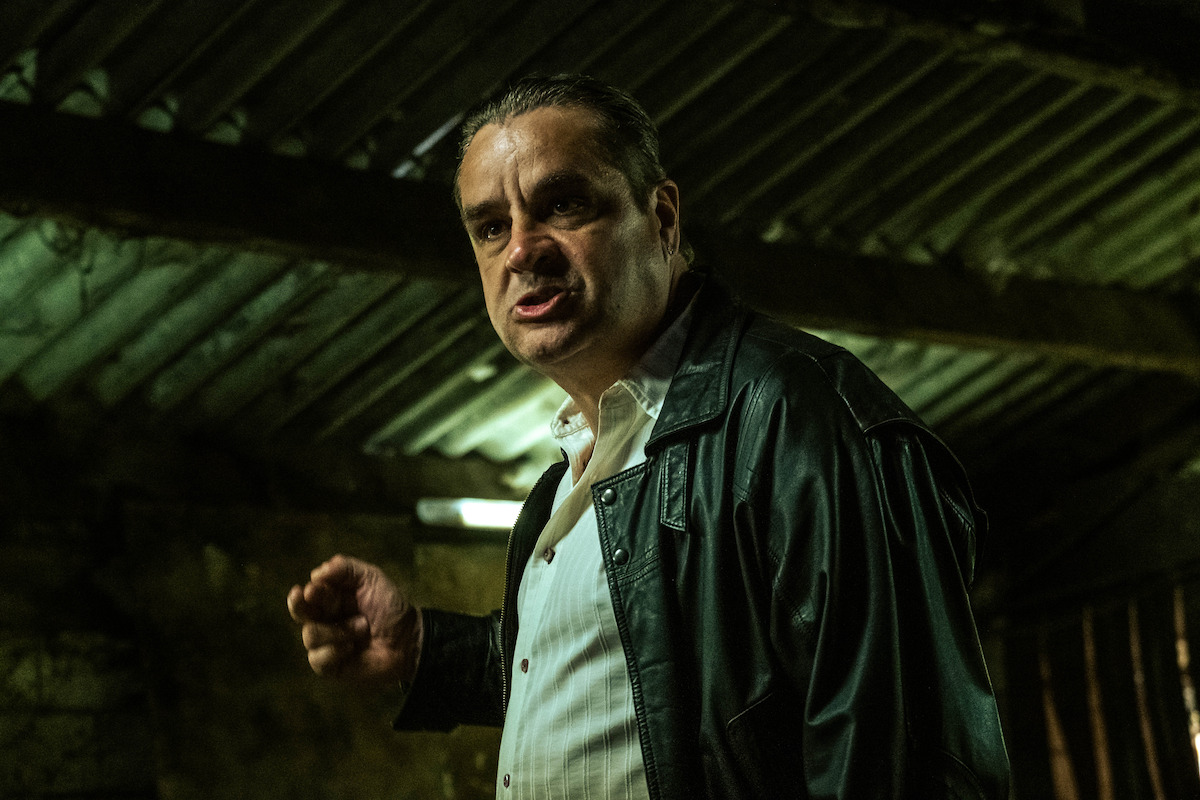
Continuing on the 2021 film, which in turn, was the prequel to the Belgian-Dutch series Undercover, Ferry: the Series now delves into the titular mob boss’ start of his ecstasy empire. While the drug lord was suitably menacing in Undercover, Bouman in his beginnings is broke, trying to create bigger deals that would allow him to continue sustaining his small-scale drug pushing, and personally bumping with the cops in some botched buyings. As the future kingpin deals with day-to-day mishaps, there’s an old-school, lightly comedic tone as Bouman tries to gain the same respect he’ll get in Undercover. It makes for a goofier and less serious side on the all-too-familiar organized crime plotlines, and makes it a fun series to watch.
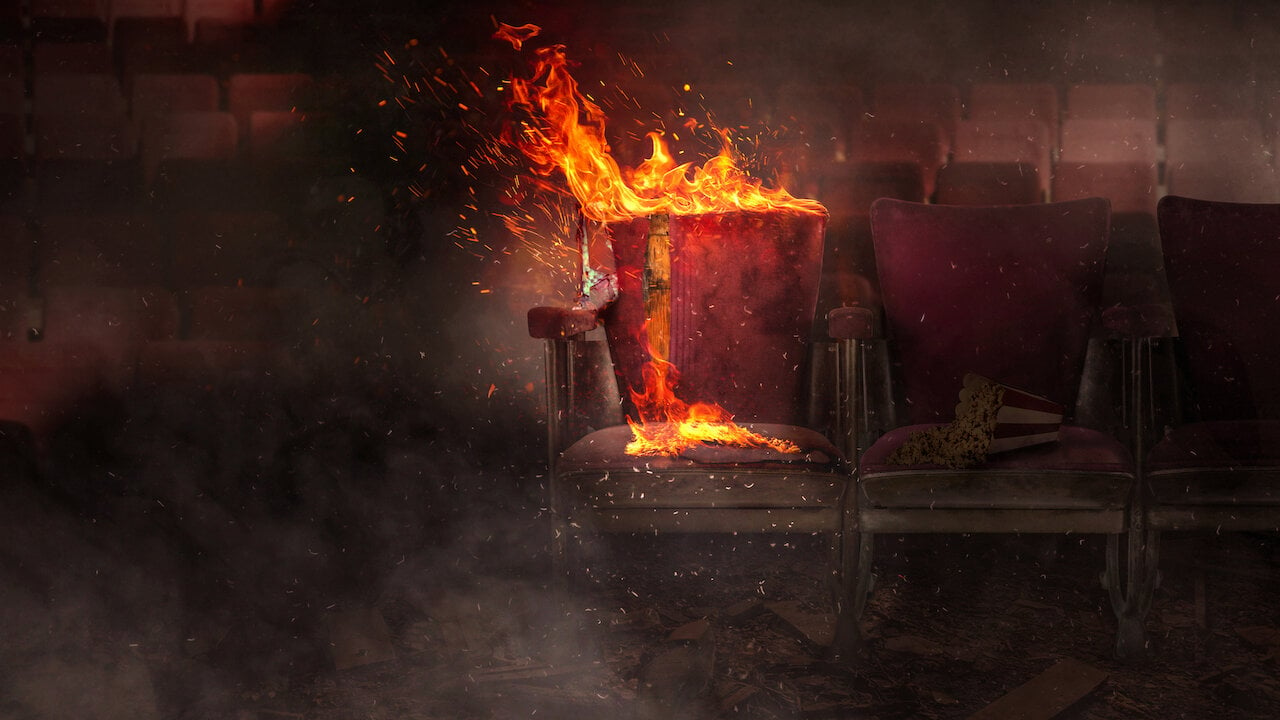
Tragedy can strike at any time, but some instances are preventable, and rare is the instance where people do seek justice for it. After all, after losing so much, it would be awful to fight and lose again. But these instances do still exist, and one such incident is the Uphaar cinema fire. Trial by Fire depicts this tragedy, but rather than focusing on the fire itself, it focuses on the fight the victims’ families took in order to seek justice. The show doesn’t play out as a courtroom drama, it takes an intimate look into their day-to-day actions, faithfully portrayed by the excellent Rajshri Deshpande and Abhay Deol. And while the industrial giants depicted tried to file an injunction against this show’s screening, thankfully, Trial by Fire is still able to make its stand. It’s solemn and grim, but it’s a potent reminder of the power we hold as a collective.

Any parent would defend their kid in court, though, sometimes it depends on the case. A Nearly Normal Family brings one such Swedish family through a case, as their nineteen year old daughter is accused of murdering a man, four years after the family decides not to prosecute their daughter’s rapist without evidence. The thriller series unfolds into a compelling murder mystery, as the show plays with the family members’ different perspectives that expands and continues the show’s intrigue, even if you think you have it all figured out. And as the investigation continues, the family’s secrets slowly get unveiled, threatening to break the Sandells apart, with their conflicting morals and unresolved trauma. While some viewers might not appreciate the slow burn, it’s an interesting crime thriller-family drama mix that questions how far we’re willing to go for our loved ones.

Viewers are familiar with cuisines around the world such as the food from France, Italy and Japan, but now it’s Filipino cuisine that takes the spotlight. Replacing Chef Chico portrays different Filipino dishes in each of its eight episodes, but these meals are great side dishes to sous chef Ella’s journey in managing the Hain fine dining restaurant. Alongside this journey of self-discovery comes heartwarming stories from the Hain restaurant’s customers, the receptionist’s cheeky commentary, and sweet tracks from Leanne & Naara. They all mix into a lighthearted, if a tad bit familiar, cooking drama series, and it does so with the breezy and calm attitude of lead character sous chef Ella.
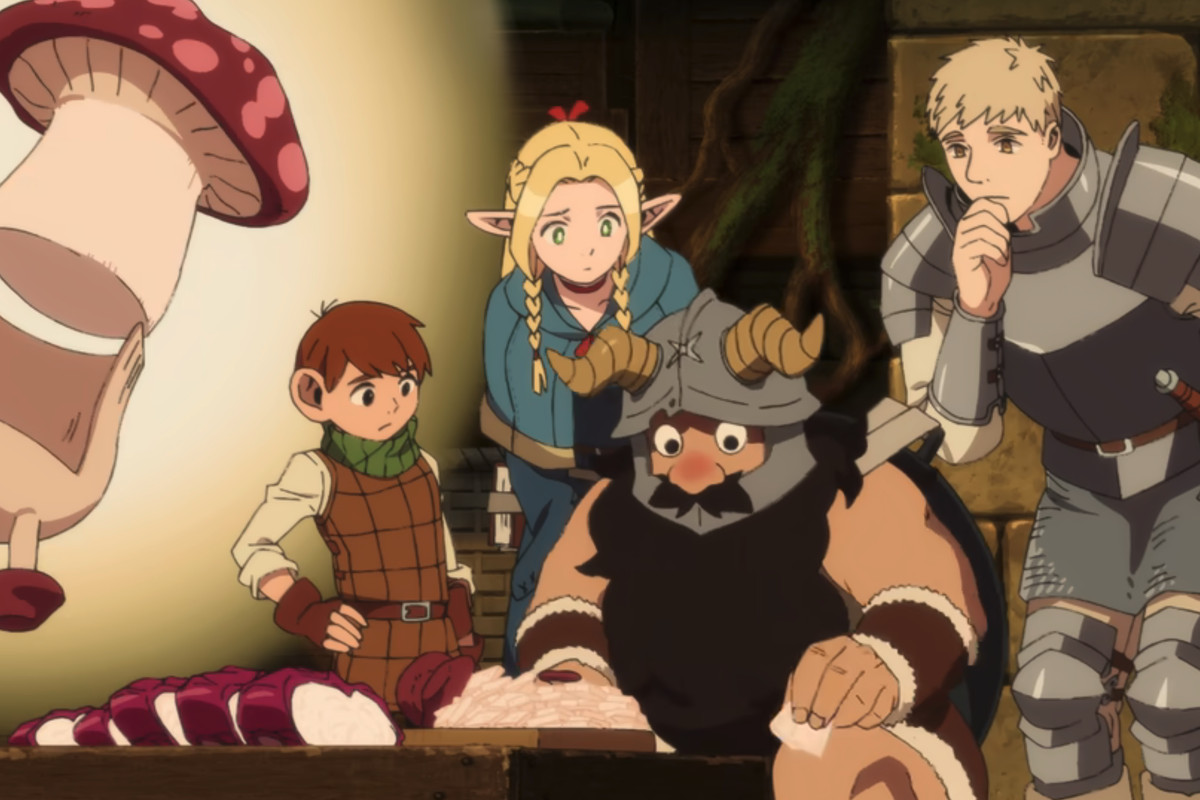
When watching fantasy anime, there’s a wonderfully whimsical world that viewers can fully explore. Spectacular magic, brave warriors, and strange creatures are all expected, but every exploring troop needs supplies. Money, weapons, and of course, food are needed to survive the wondrous yet perilous adventures they set out to embark on. Delicious in Dungeon recognizes these practicalities, and creates a whole episodic adventure that focuses more on the possible food ecosystems of a fantasy world rather than the seemingly serious quests they embark upon. It makes for a slightly silly approach poking fun at the fantasy genre, but it’s definitely something unique, especially when it brings about mouthwatering exotic dishes made from monsters.
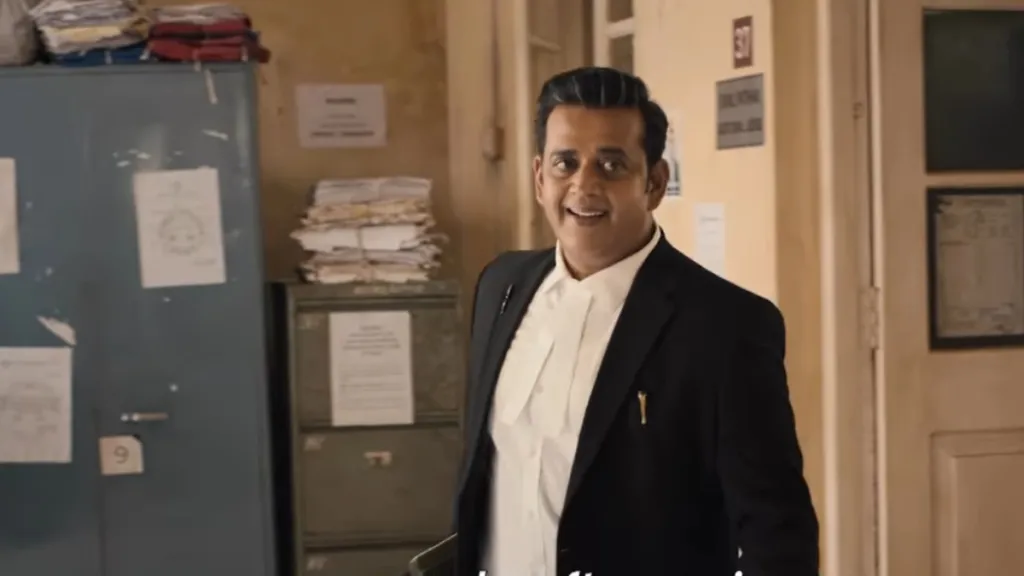
With the stakes involved in plenty of cases, legal dramas tend to be more serious and dramatic. However, sometimes, ludicrous events can happen in these courts, and they have, in real life. Maamla Legal Hai may not be 100% factual, but the way they mix and match real life legal headlines gets into unexpected, hilarious ways, poking fun at how ridiculous the Indian legal system can be. It might shy away from the serious cases, but Maamla Legal Hai smartly depicts the legal ecosystem, from the wily higher ups, to the idealistic newcomers, with unique charm and witty humor.
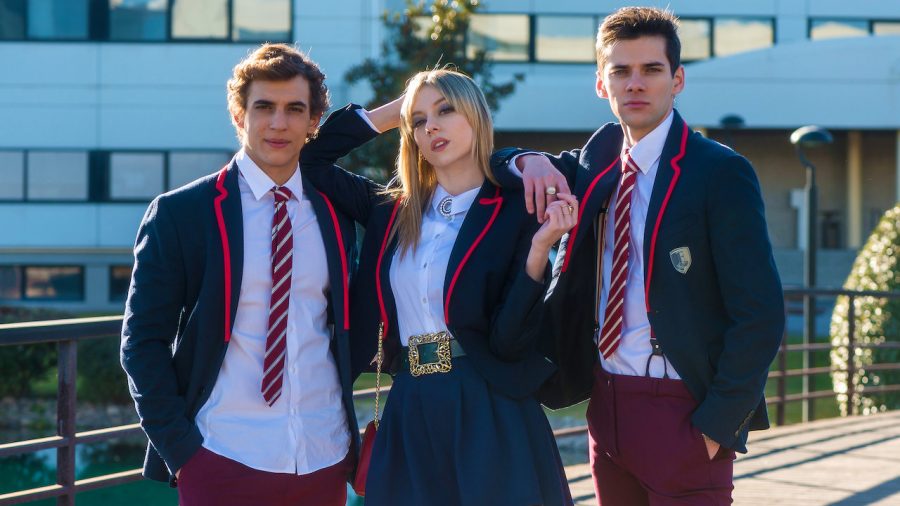
Three kids from a poor neighborhood win scholarships to the best high-school in Spain and later find themselves at the center of a murder. There is a lot that comes to the surface from the working-class kids clashing with the wealthy. Themes of money, power, religion, and even sexuality make this show so compelling that I never felt like I needed a murder to keep watching.
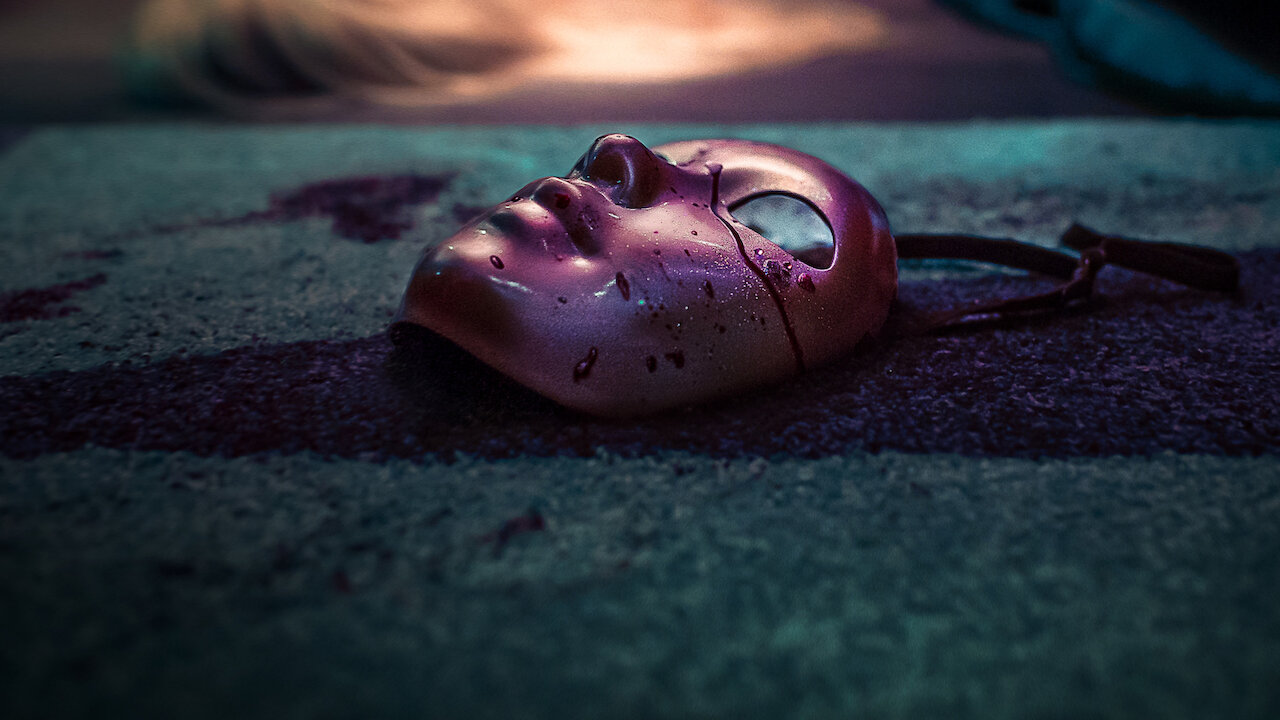
Mask Girl is a dark comedic thriller that follows people on the fringes of beauty norms trying to live with their pain and shame. Low self-esteem and a desire for attention are at the center of the drama, making it relatable and easy to empathize with even when everything goes awry. Although Mo-mi, the titular Mask Girl, is at the forefront of the narrative, subsequent episodes switch to new perspectives, allowing us to interact with Mo-mi in different ways. And with each new character’s POV, we witness how other ostracized people find comfort in and hurt each other when there’s no one else to turn to. The first three episodes are intense and surprisingly violent, but ultimately seeing the extremes of the discrimination that beauty standards perpetuate makes the story worthwhile.
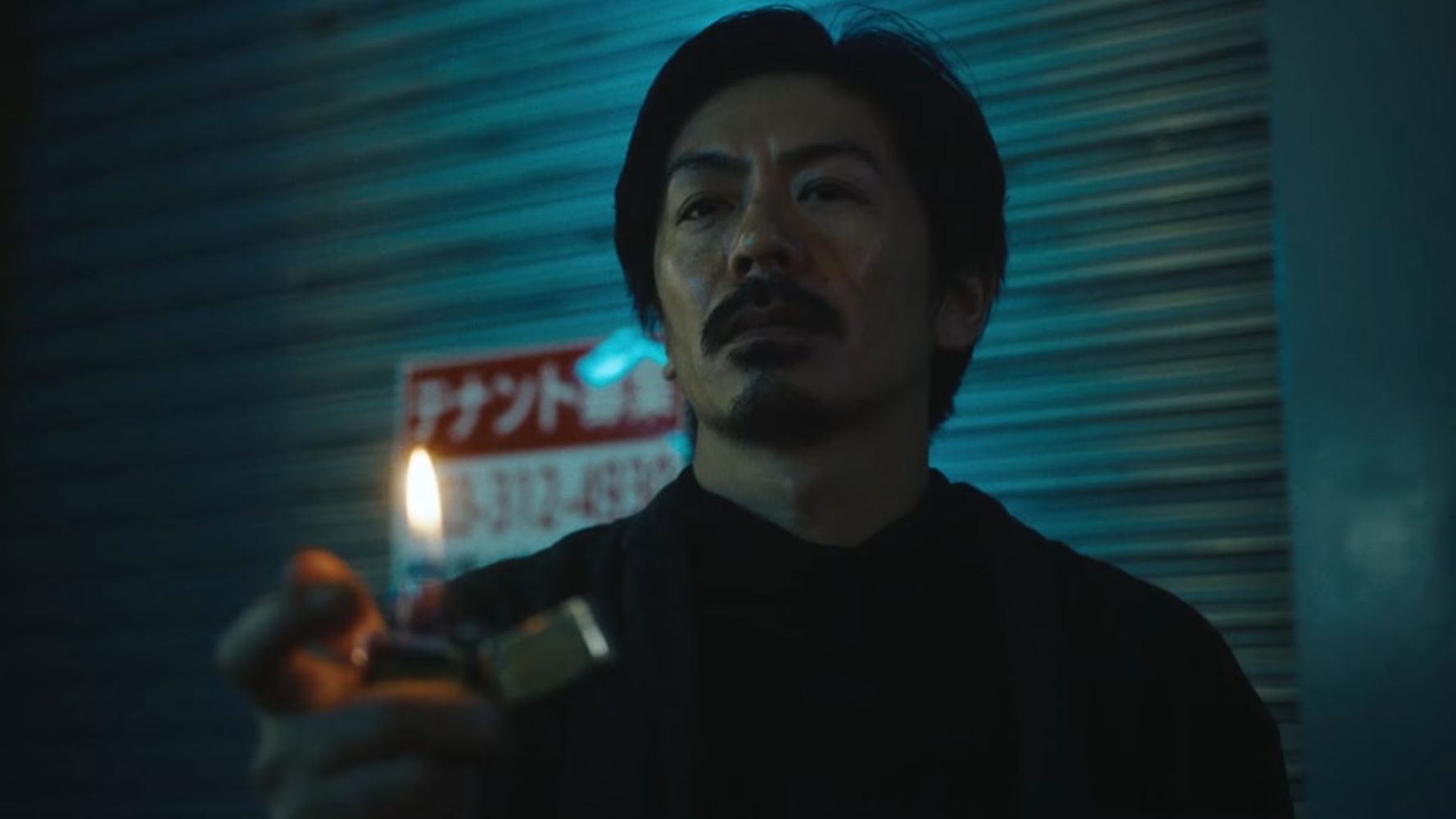
Informa is a thrilling and fun look into the world of yakuza informants. As the titular character Keijiro Kihara takes new writer Kanji Mishima around town to show him the ropes, the series plays with a buddy cop dynamic without the restrictions that police have. Fresh-faced Mishima remains wide-eyed, as Kihara brings him to yakuza hotspots, sometimes intentionally provoking situations with the yakuza through taunting words, but walking away without harm. The series sometimes makes weird shifts, with the first episode halving a serious torture sequence of one gang, and inserting a more lighthearted sequence with Mishima’s crew in between. However, the strange edits don’t distract from the overall mystery and vibe of the series. Informa feels as intriguing but as chaotic as its titular protagonist.

In Love All Over Again has many of the romance tropes fans of the genre would enjoy. The star-crossed lovers, the gay best friend, the absent-minded but well-meaning parent, and the classic romance drama jobs are present in the series. However, unlike other series, the show literally starts off with a bang. The main couple don’t get separated because of toxic dynamics or tragedy, but literally because of the 2004 Madrid train bombings. But this isn’t just a one-off event, it’s the event that shifts Irene’s life forever, as she tries to heal and process the event as best as she can. Some of the series’ plot points may not be new, but it’s sincere in examining how that event affected people’s lives, without being overly dramatic. The resulting series is sweet and it captures the Y2K nostalgia that’s currently en vogue.
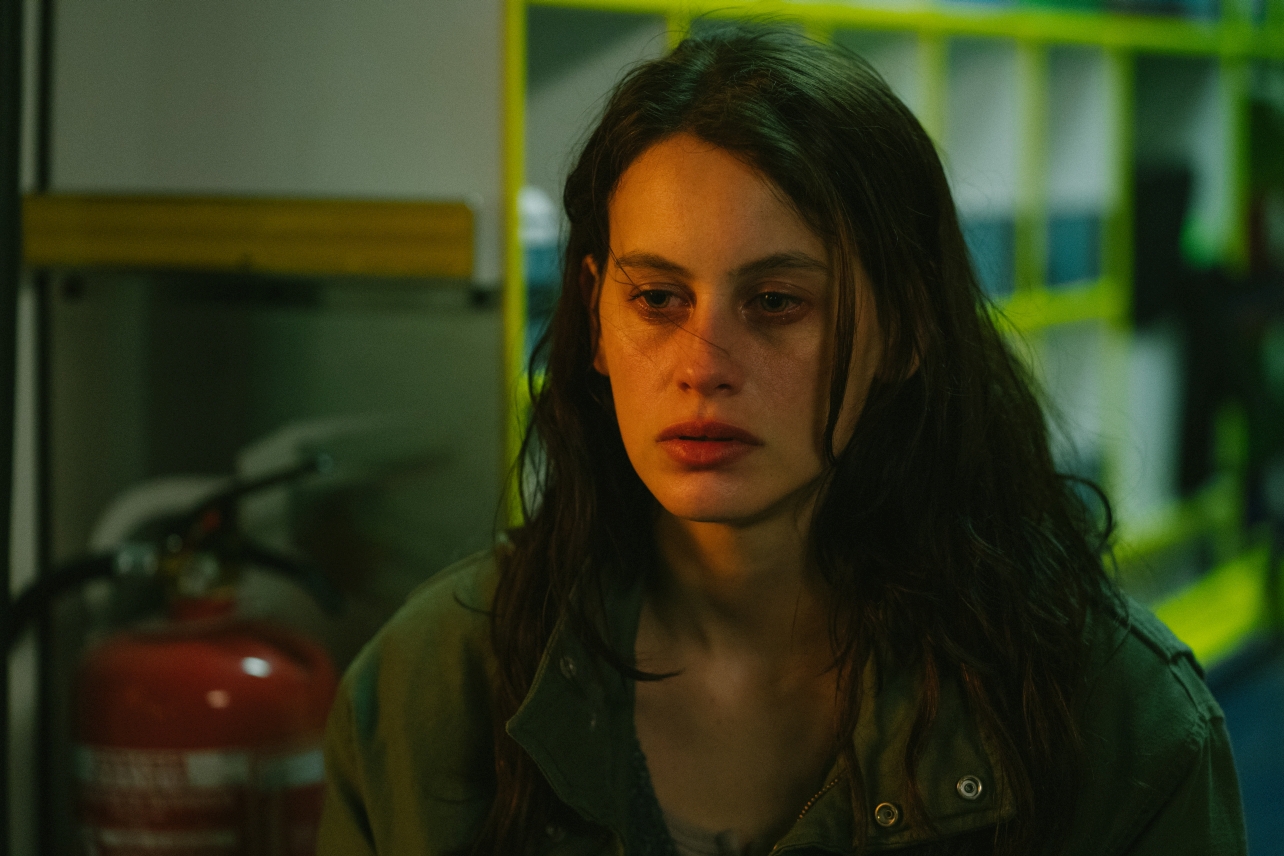
Child kidnapping is any parent’s nightmare, and it’s the nightmare that drives the events of Spanish crime thriller The Snow Girl. Based on the 2020 novel of the same name, the limited series takes a unique double-pronged approach to the case at hand. The show goes through the regular police investigations we’ve seen previously, but it also comes mainly from the perspective of journalist Miren Rojo, whose previous trauma understandably limits her trust with the authorities. As the show moves the story from New York to Malaga, and switches between perspectives, and timelines, The Snow Girl adeptly maintains the novel’s original suspense, without over sensationalizing the crime at hand.
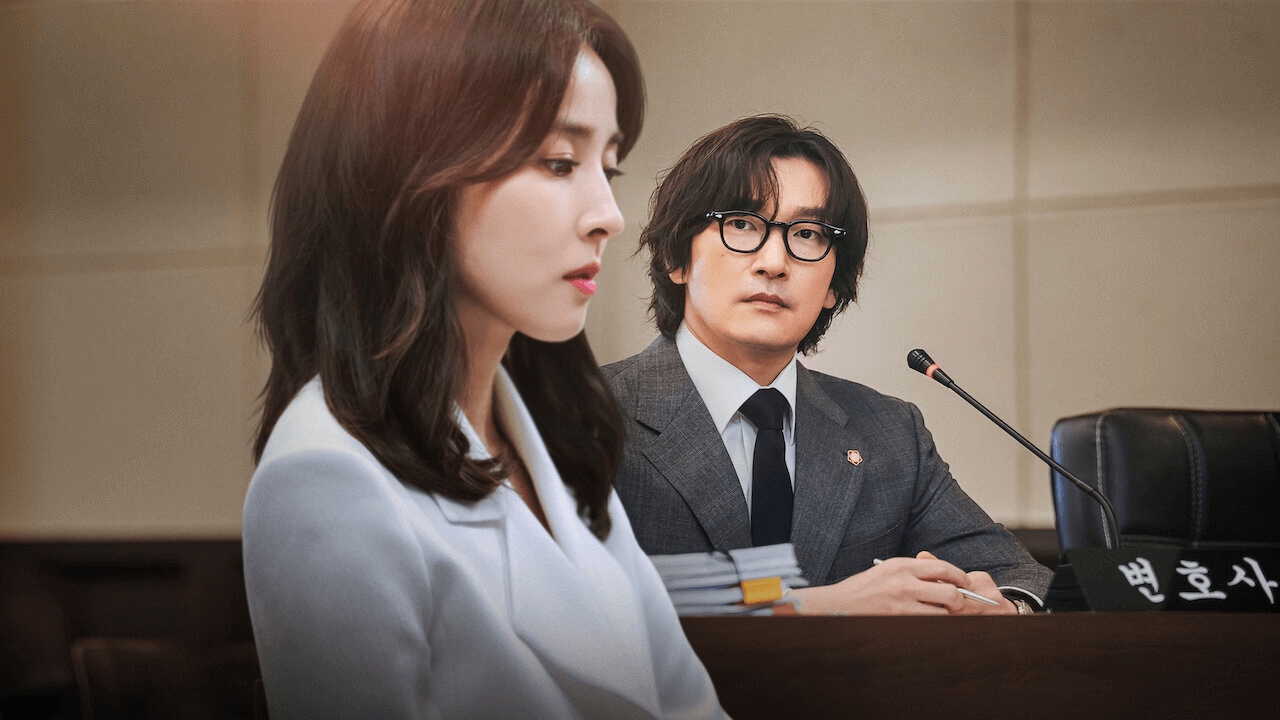
There are plenty of divorce-related Korean dramas, but Divorce Attorney Shin is a gem among them. Based on the webtoon with the same name, the show is centered on an eccentric lawyer, whose trot-dancing ways and unconventional handling of clients doesn’t detract from his winning cases. Instead of the ruthless and collected attorneys we’ve seen previously, Shin Sung-han has a human side, a side that enables him to empathize with his clients. And like the lawyer, the show does the same, handling multiple cases, without discarding them by the end of the episode, and embracing its nuances in a well-rounded way.
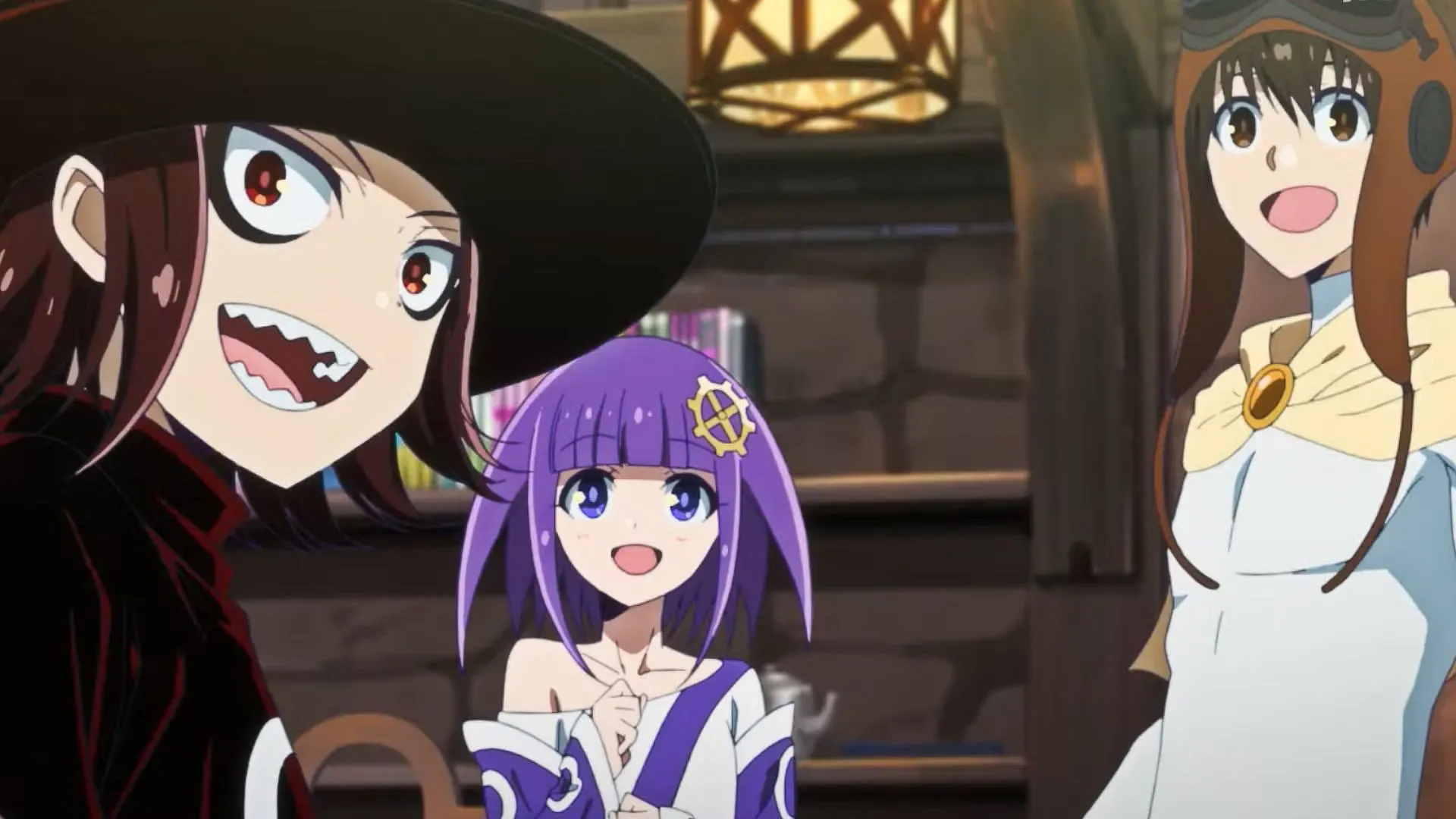
With games creating whole virtual worlds, with stunning landscapes, powers, and storylines, it’s easy to escape into the fictional simulations, to the point of being addicted. Good Night World reimagines this idea in the present as a family drama, where video game addict Tachiro Arima struggles to relate with his family because of his addiction. As the show progresses, the game integrates with the real world, with real life-threatening consequences, but the show slowly uncovers how this game unraveled the Arimas’ family bonds, through neglect, depression, and shared trauma. It’s an interesting series about connection and video games, if you can get into the world of the series.
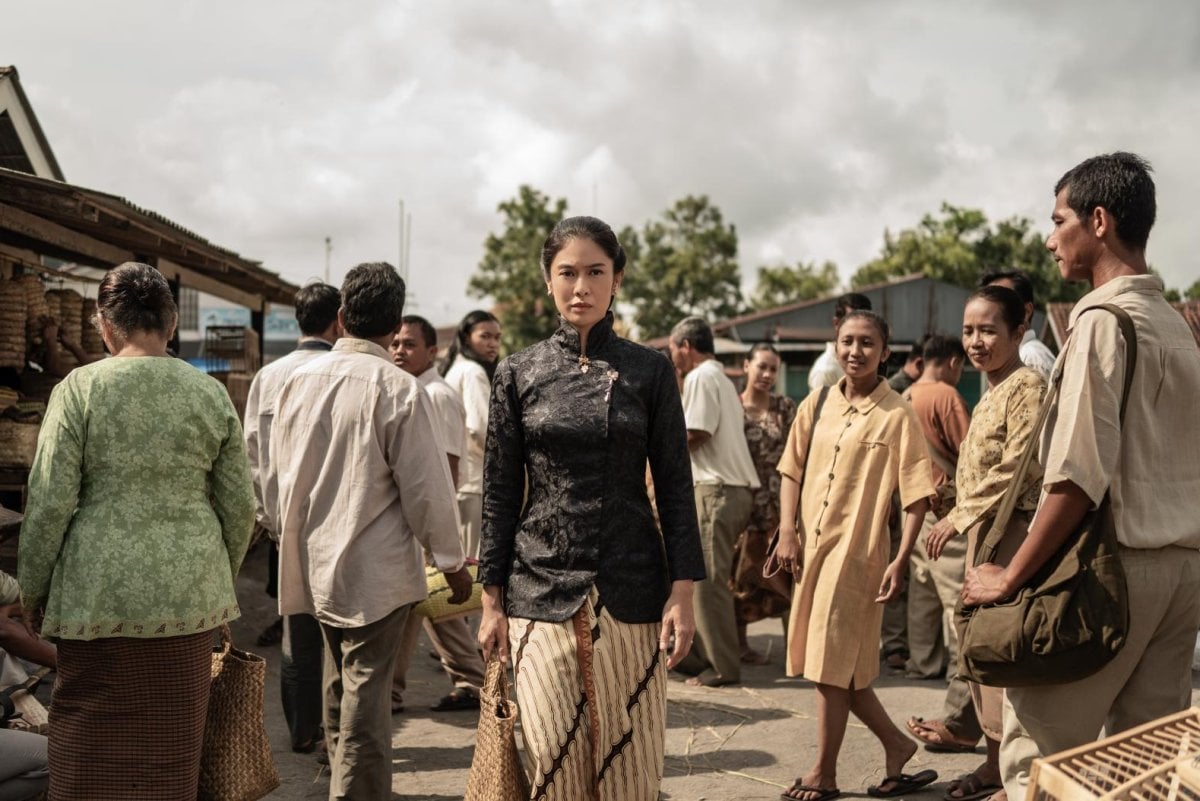
Netflix is no stranger to adapting novels, nor to period dramas – Cigarette Girl is one of many, but it’s one from Indonesia that stands out due to its unique premise and excellent execution. Based on the novel by Ratih Kumala, the show is a slow-burn, smoldering period romance set amidst Indonesia’s kretek cigarette industry, booming in the 1960s, but it’s framed within the 2000s, where the man’s family uncovers his lost love before he dies. The alternating timelines keep the mystery fresh, as each new revelation uncovers what really happened between the two, as well as what would happen with the fate of their families. This intriguing structure, along with excellent writing, and stunning sets and costumes, make Cigarette Girl a compelling show to watch.

Do we need to convince you about the spectacle of half naked, handsome, buff men wrestling? Like Flowers in Sand has plenty of that, with Jang Dong-yoon at the helm, but it’s more than just eye candy. It’s a warm, down-to-earth sports drama celebrating Korea’s traditional wrestling, set in the county that is known for ssireum. It has an intricate web of relationships that realistically depict the small town friend groups of childhood. And the cast is excellent, making each ordinary slice-of-life moment still feel compelling. Like Flowers in Sand may not have the crazy fantastical premises other K-dramas are known for, but it still feels unique with its straightforward passion of ssireum.

A Round of Applause is just so darn weird. We’ve seen stories about people remembering their past lives, but we’ve never seen them able to recall and yearn for their life as pulp in an orange, of all things. We’ve seen fetuses as characters, but we’ve never seen them as a neurotic chainsmoker, tugging at the umbilical cord in complaint. These strange, existential ideas get to amusingly absurd paths, leading to punchlines that aren’t expected but pulls out unexpected laughter while making us contemplate the lives we’re currently living. Even if the offbeat humor isn’t to your taste, A Round of Applause just feels so original that it’s worth a look.
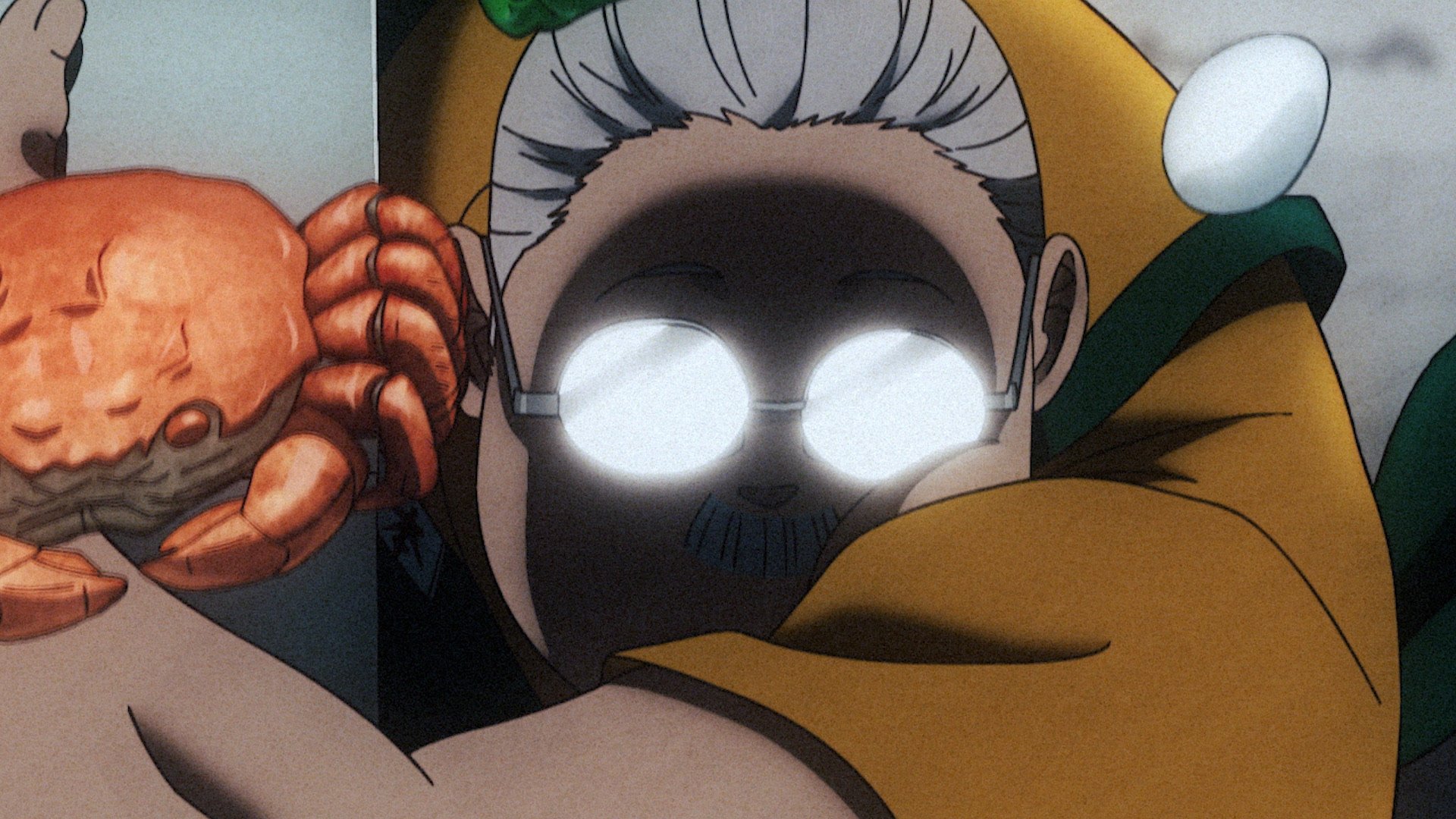
Hitmen are just cool. But rather than bring us the same fists and bullets that we usually see with these killers, Sakamoto of Sakamoto Days does his best to keep to his normal humdrum life, rather than jump back into the bloodshed. It’s an interesting twist to the gangster thriller. Rather than try to surpass any choreographed fights, or bring up the angst by killing everyone dear, the series humorously contrasts the over-the-top drama these assassins have over the straightforward ordinary life, which, as Shin realizes, is actually great. Sakamoto Days celebrates ordinary life as something worth protecting, and it’s pretty fun to see the crew do so.
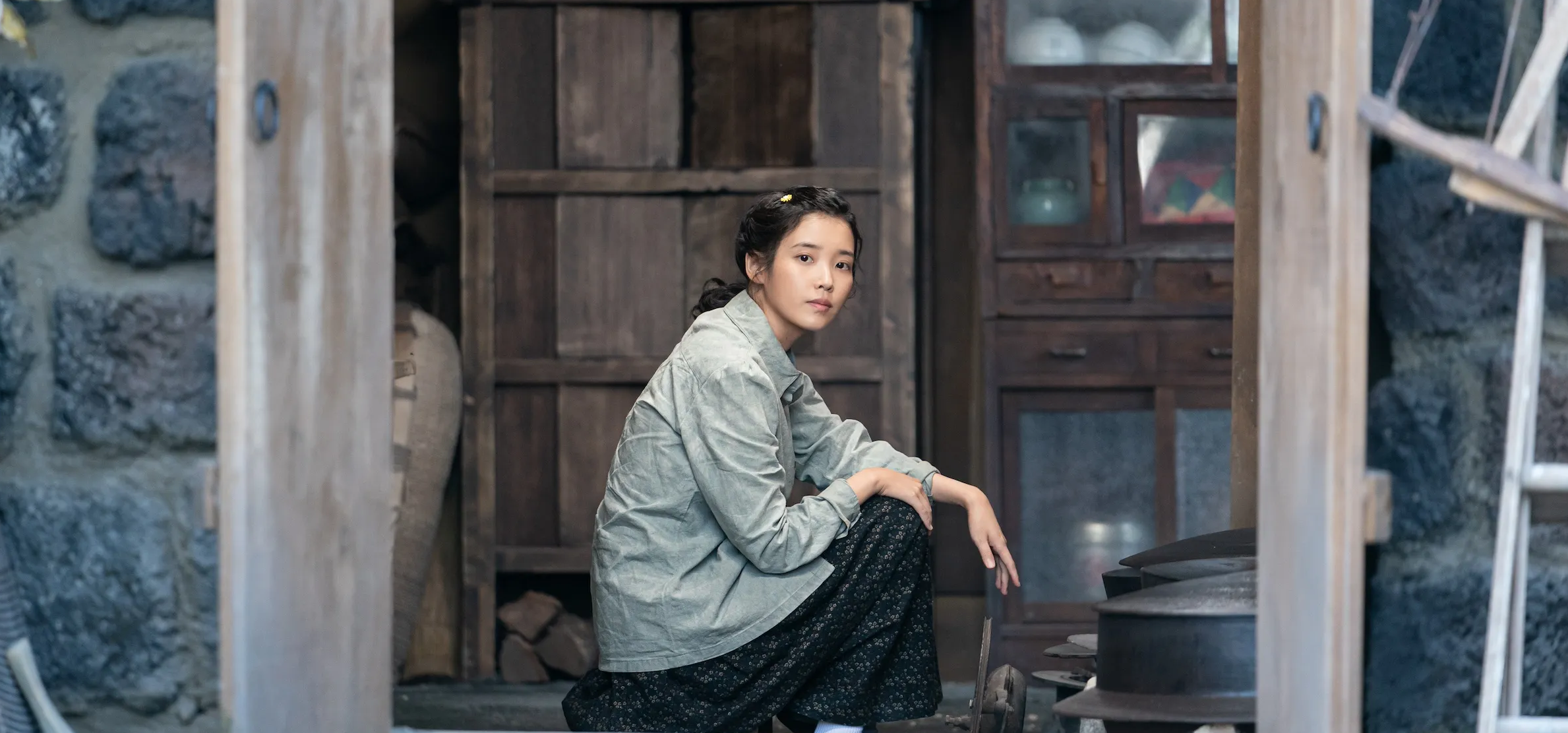
A more cynical viewer might be put off by the pity party that happens in the first hour of When Live Gives You Tangerines (although as far as K-dramas go, this one is pretty mild). There is plenty of crying, especially by the child actors who seem forced to do the act. But it’s worth sitting through; the events that follow are lovely and moving. Set in the countryside of post-war South Korea, the series follows a young couple as they elope and raise a family with little means. It gets cheesy at times but leads IU and Park Bo-gum nail their characters to the ground, always keeping them relatable, likable, and true to times. The immersive production design and the clever time jumps pull you in and keep you longing for the next episode.
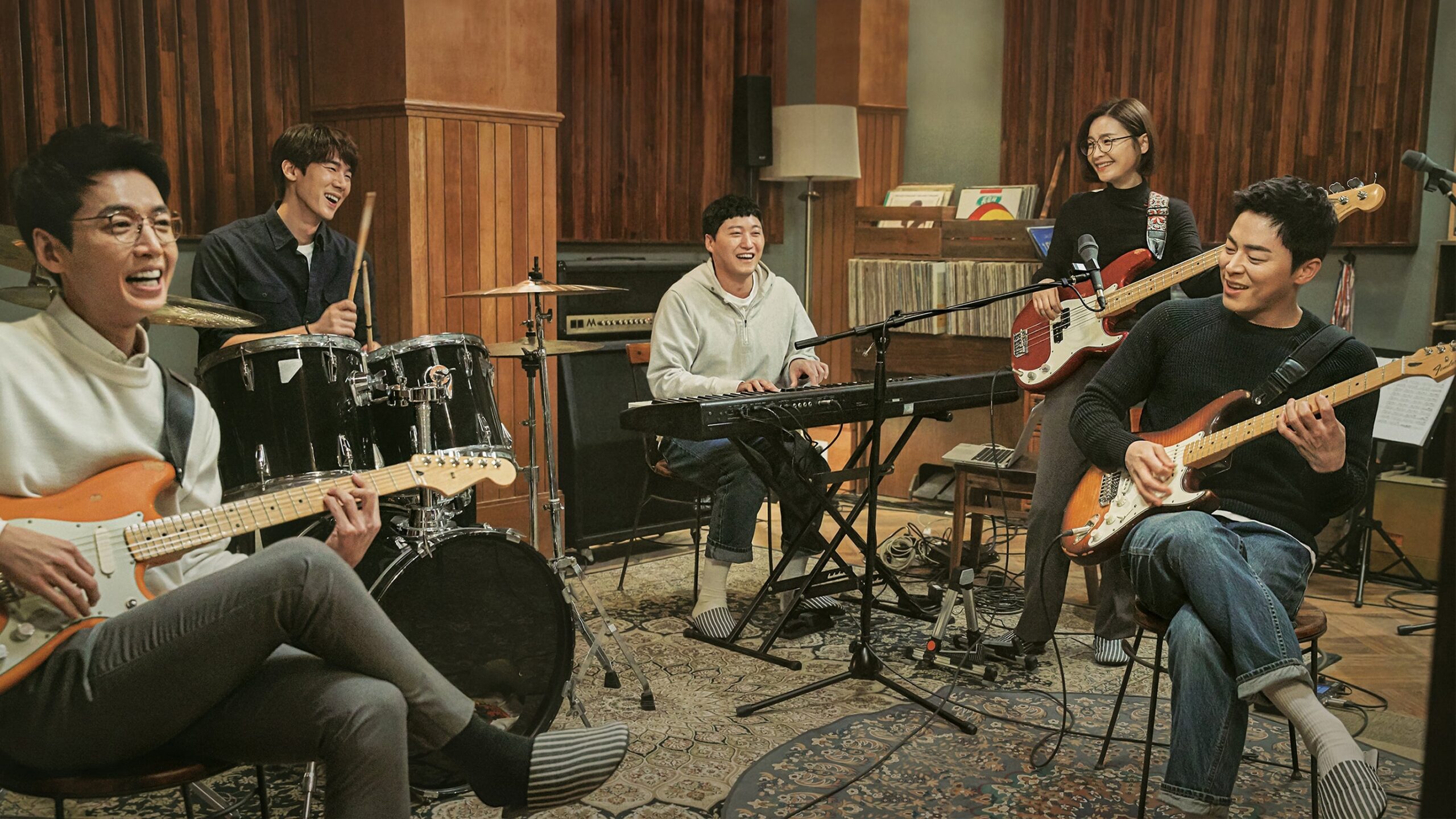
Hospital Playlist is a heartwarming and engaging South Korean series that follows the lives and friendships of five doctors who work at the same hospital. With its perfect blend of drama, humor, and genuine moments, the show offers an intimate and realistic portrayal of the challenges and joys faced by medical professionals. The characters are beautifully developed, and their personal stories are both relatable and deeply moving. The series strikes a balance between medical cases and the characters’ personal lives, creating a captivating narrative that keeps you invested from beginning to end. A must-watch for its heartfelt storytelling and compelling ensemble cast.

A delightful blend of romance, humor, and intrigue (as expected of many historical K-Dramas), this series takes us on a whimsical journey as Crown Prince Lee Yul, suffering from amnesia, is convinced to wed the headstrong Hong Sim due to his own decree. The drama plays into the comedic potential of his lost memory as he maintains his air of nobility—rendering him useless at daily chores and acts of labour to everyone’s dismay. As the effects of political secrets and conspiracies affect the poor of the kingdom, Yul begins to use his intelligence, martial arts skills, and literacy to help people learn and protect themselves. Doh Kyung-soo and Nam Ji-Hyun beautifully perform a fun enemies-to-lovers dynamic of a foolish prince and a justice-oriented woman. 100 Days My Prince delivers ornate kingdoms, cherry blossom-filled sets, and secret coups, all in a comfortable watch.
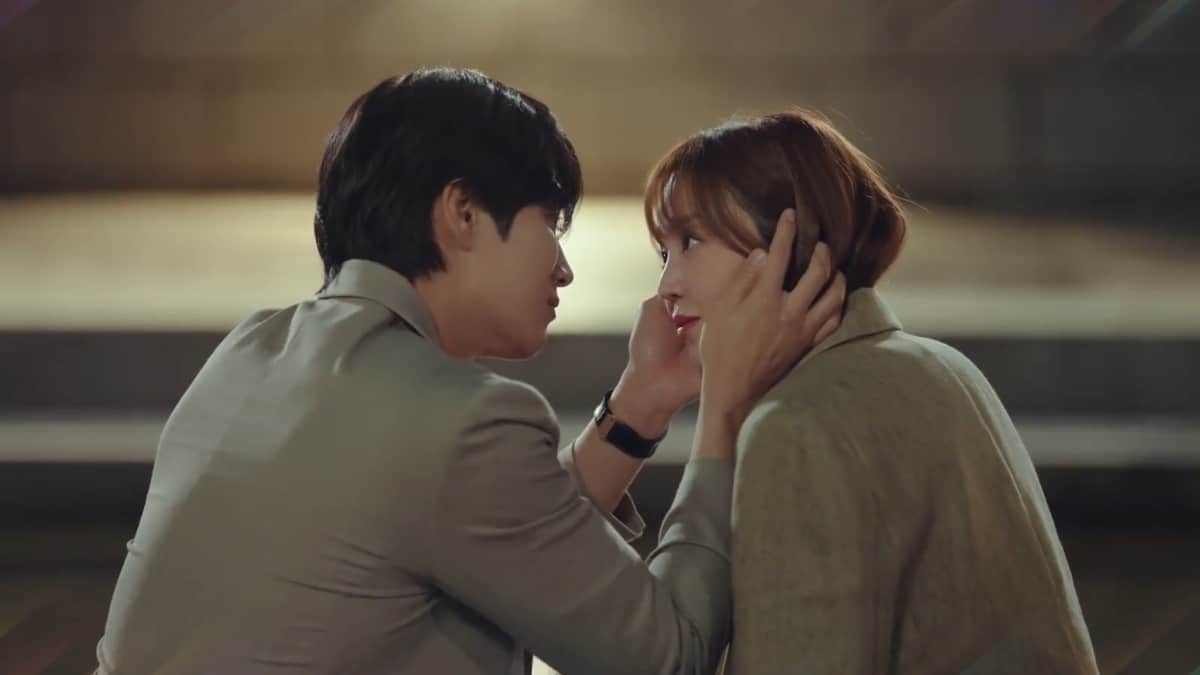
See You In My 19th Life is a stunning adaptation based on the latest webcomic from Lee Hye. Unlike other South Korean reincarnation shows, this one stays more grounded in everyday life. The memory of Ban Ji-eum’s (Shin Hye-sun) previous lives is the only fantasy element (so far!). The show is centered on Ban’s relationship with rich heir Moon Seo-ha (Ahn Bo-hyun), who she met in her 18th life, and the people around him. While this show has the trappings of a standard Korean fantasy romance, director Lee Na-jung and screenwriter Choi Young-lim skillfully mixes in history in order to fill in the blanks of Ban’s previous lives. At the same time, the show shifts between timelines seamlessly, only revealing information when needed. As such, See You In My 19th Life is a unique reincarnation story with insights on growth, connection, and love.
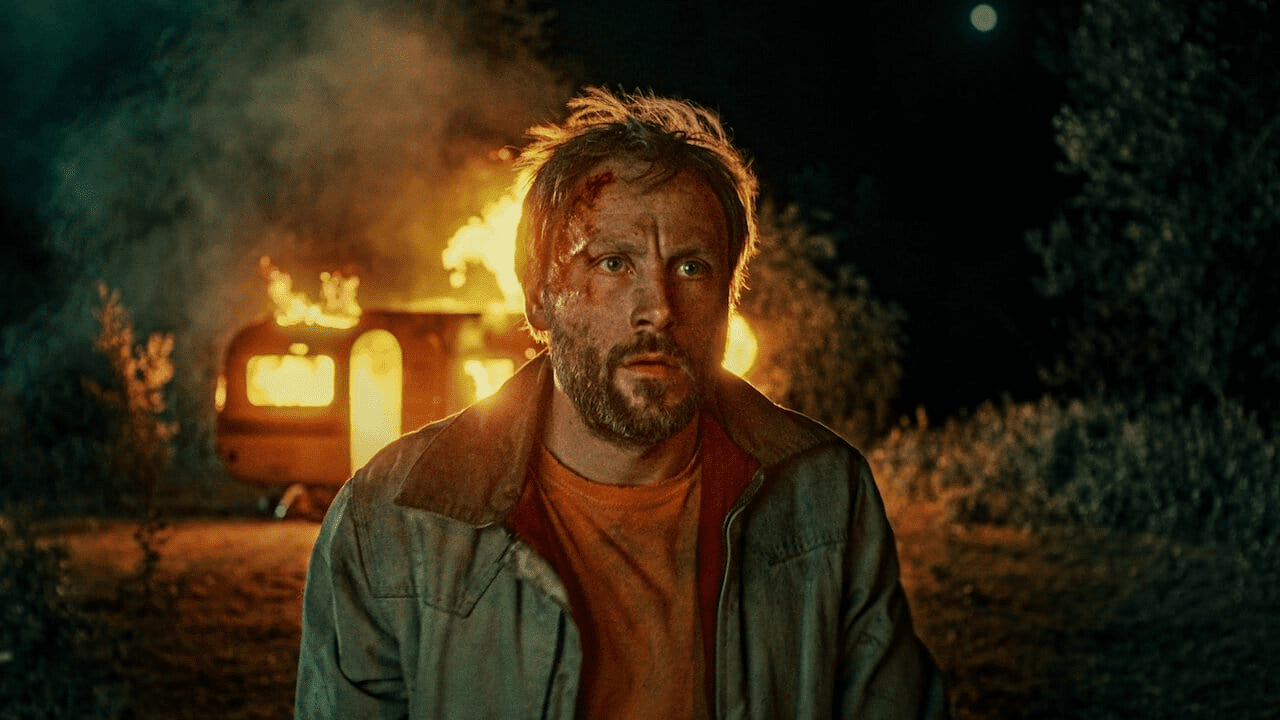
Mike Atlas is a former police detective now living on the streets as he reopens a supposedly solved murder case with a rookie prosecutor living in her mother’s shadow. As they dig deeper, they uncover a sinister conspiracy that reaches deep into the core of the police and justice system. The series is well-acted, with Max Riemelt giving an outstanding performance of a troubled detective suffering from trauma, guilt, and regret. Now homeless, with gaps in his memories, Atlas uses his dormant detective skills to discover the truth from eight months ago and protect his now-estranged family. There’s never a dull moment as mysteries unfold from multiple angles and pieces fall into place as theories fall apart. Sleeping Dog is an addictive guessing game until the end.

From poaching elephants and smuggling sandalwood to killing people in the most ruthless manner possible, Koose Munisamy Veerappan’s crimes are manifold, and they engulfed all of Southern India. The first half of this four-part series chronicles his early life and the escalation of his criminal affairs through talking heads and archival footage. The documentary balances the perspective of the authorities with that of Veerappan’s gang in interesting ways; where officials saw him as cunning, people close to him, like his wife Muthulakshmi, praised his desire to create wealth for his people, regardless of caste. By the end of the pilot, you’re sure to be at the edge of your seat as the series raises the stakes and promises to be as challenging and compelling as the first episode.

Best known for its cute characters, Sanrio has partnered with Netflix to deliver a children’s adventure mini-series centered on their laziest egg yolk Gudetama. If you’d like to know how an egg like Gudetama can exist, this show conceives of a world where once out of their shells, all eggs have sentience, from regular chicken eggs, to eggs of other species, and to various forms of egg dishes like omelets and flans. While it’s slightly horrific to imagine eating these kawaii creatures, the show embraces the absurdity of its premise, depending heavily on food-based puns, as well as contemplating the purpose of raw eggs. This show may not be to everyone’s taste, but it’s certainly one of a kind, and short and sweet enough to swallow.
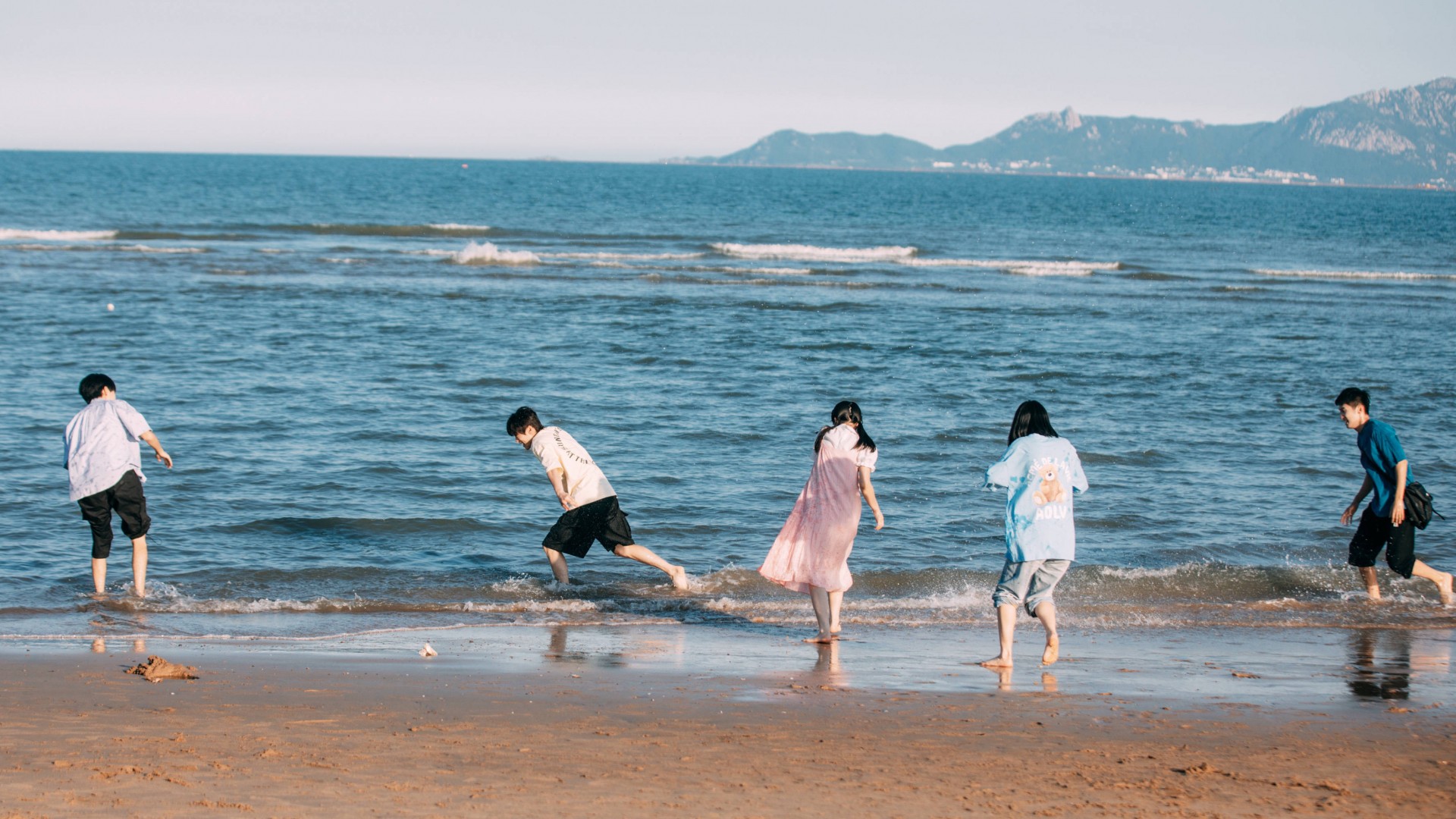
Meeting a cute boy at the corner store, sneaking snacks into camp, leaving gifts at your crush’s desk… These are things that got lost for high schoolers who had to take online classes during the pandemic. Because of this, When I Fly Towards You is a timely blast from the past as schools get back on-site. This show captures the classroom experience before it went online, in such a cute and nostalgic manner. With moments that have to be ripped straight from someone’s high school diary, it’s easy to root for the sometimes cringy but mostly charming main characters in this series. The funny misunderstandings and assumptions between them feel all the more sweet as they try to make it up to each other.
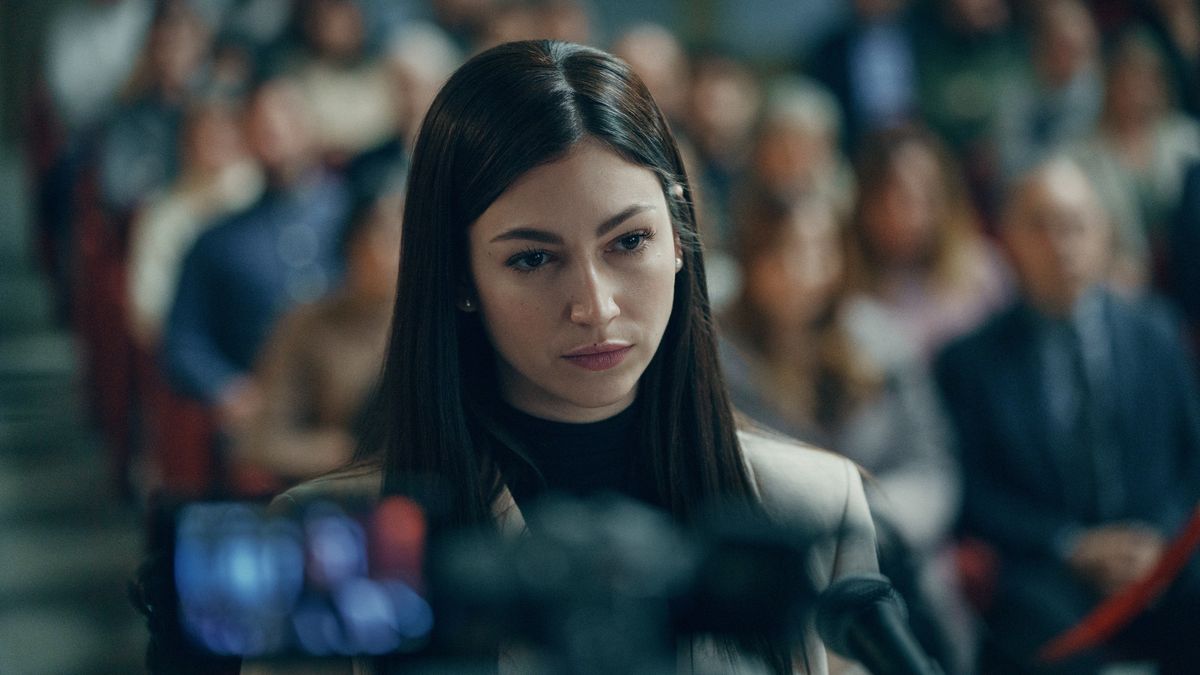
Releasing a documentary and a mini-series on the same case on the same day, Netflix understands how compelling Rosa Peral’s story is. Burning Body dramatizes the case’s events, but it does so in a way that questions the police as an institution. With the case, it’s clear that the ones assigned to protect citizens from crimes are trained enough to hide their own. However, the series also underscores the blatant sexism in their ranks, from higher ups taking advantage of new recruits, to spreading revenge porn on their fellow colleagues. With Money Heist’s Úrsula Corberó on the helm, Burning Body paints a double sided look of a multifaceted woman.
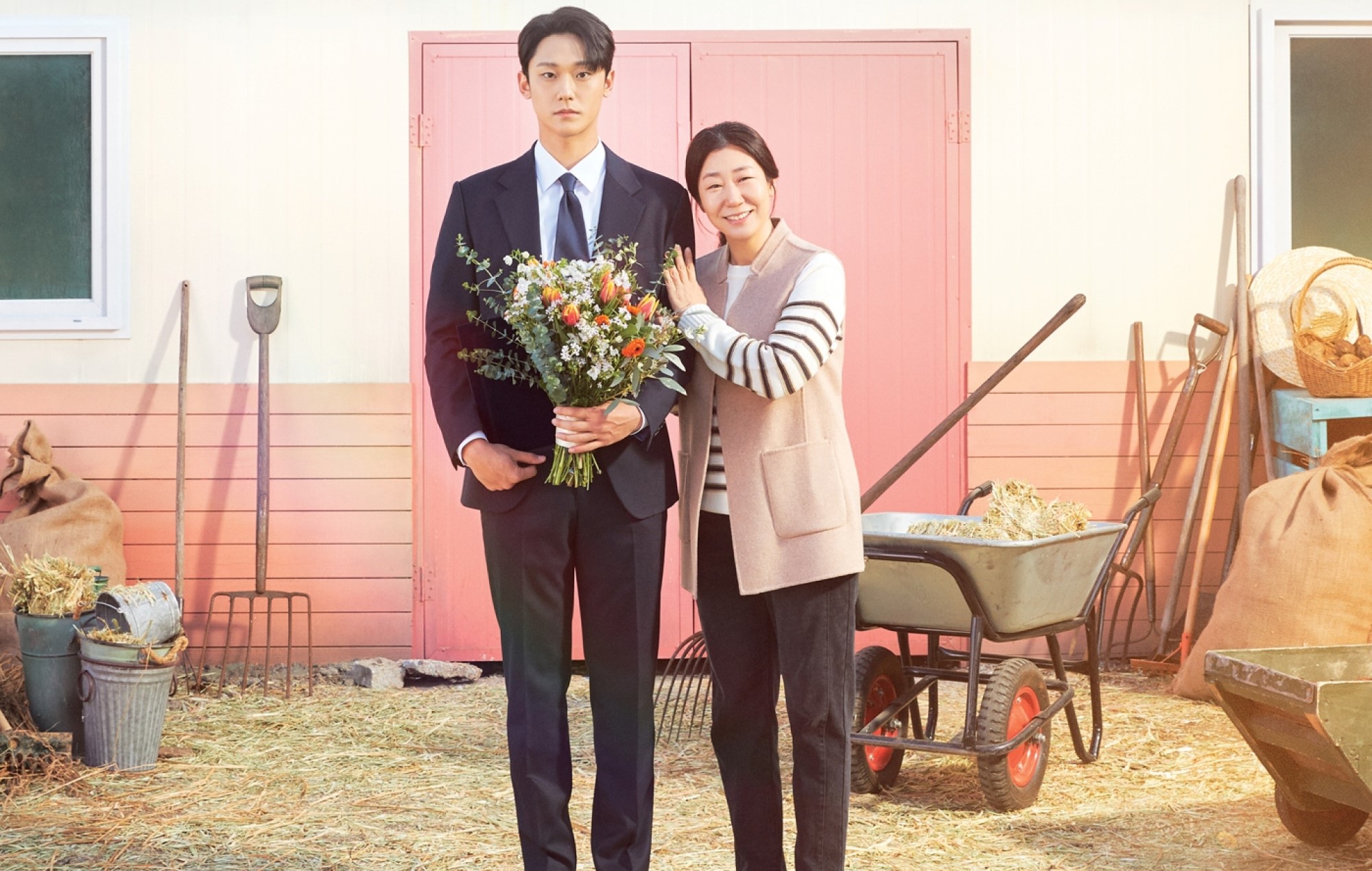
Life never goes the way we expect, especially for those who don’t have plenty of options. Because of this, parents strive to create a path for their kids to the best possible future they can manage, even if it causes some resentment. The Good Bad Mother portrays this, with some melodramatic flair, but the way the series tells its story is complex, layered, but totally compelling – as Jin Young-soon tries to reconnect with her son while also seeking justice for her husband, and Choi Kang-ho looks for family in any way he can. And it’s balanced with lighthearted humor and slice-of-life sequences that celebrate the lives of the ordinary people.
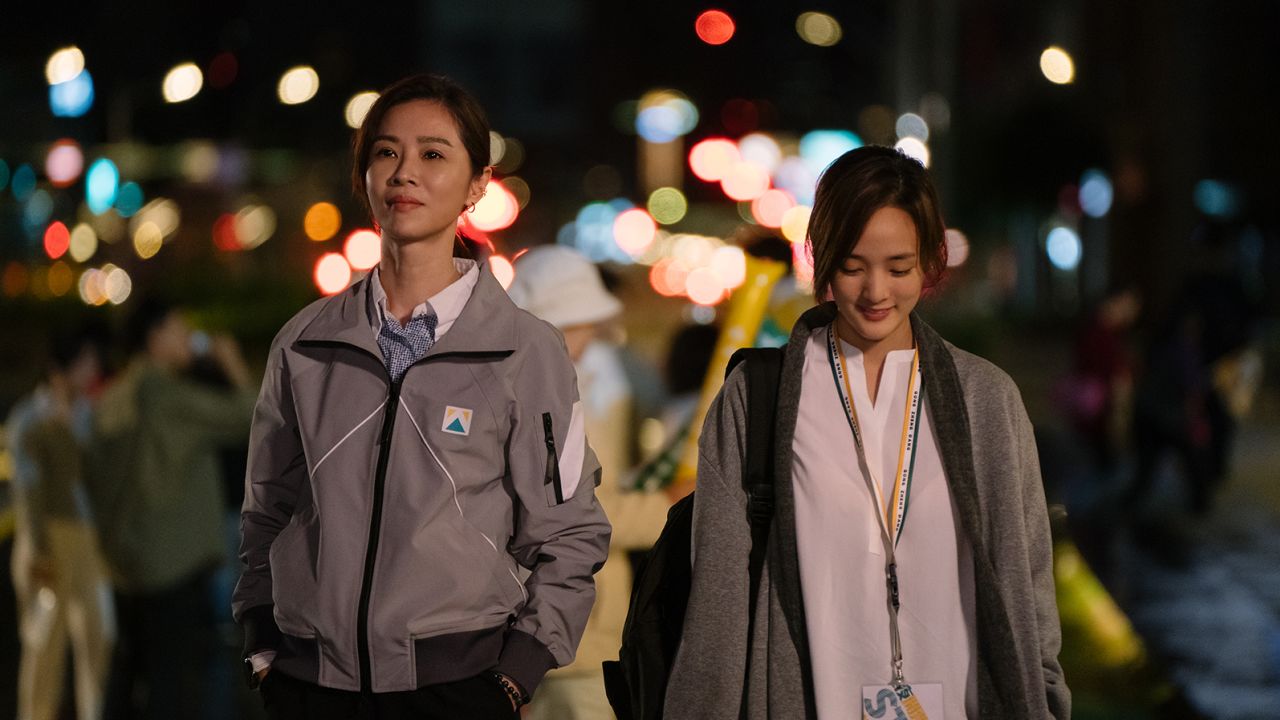
Capturing the craziness of a political campaign, Wave Makers portrays a behind-the-scenes look of a fictional campaign team as they work to get their party elected. While branded as a political drama, the Taiwanese Netflix series focuses on the dynamics of its team members, starting with their day-to-day work – how they deal with on-the-spot PR issues, budget cuts, and negotiations – and ending the first episode with the personal issues that affect them, such as work-life balance, career growth, and personal revenge. Focusing on the team makes for an interesting approach in portraying how the personal affects the political, and the show easily balances these two through its well-written sequences and careful direction. It’s no wonder it’s already inspired a #MeToo wave in Taiwan.
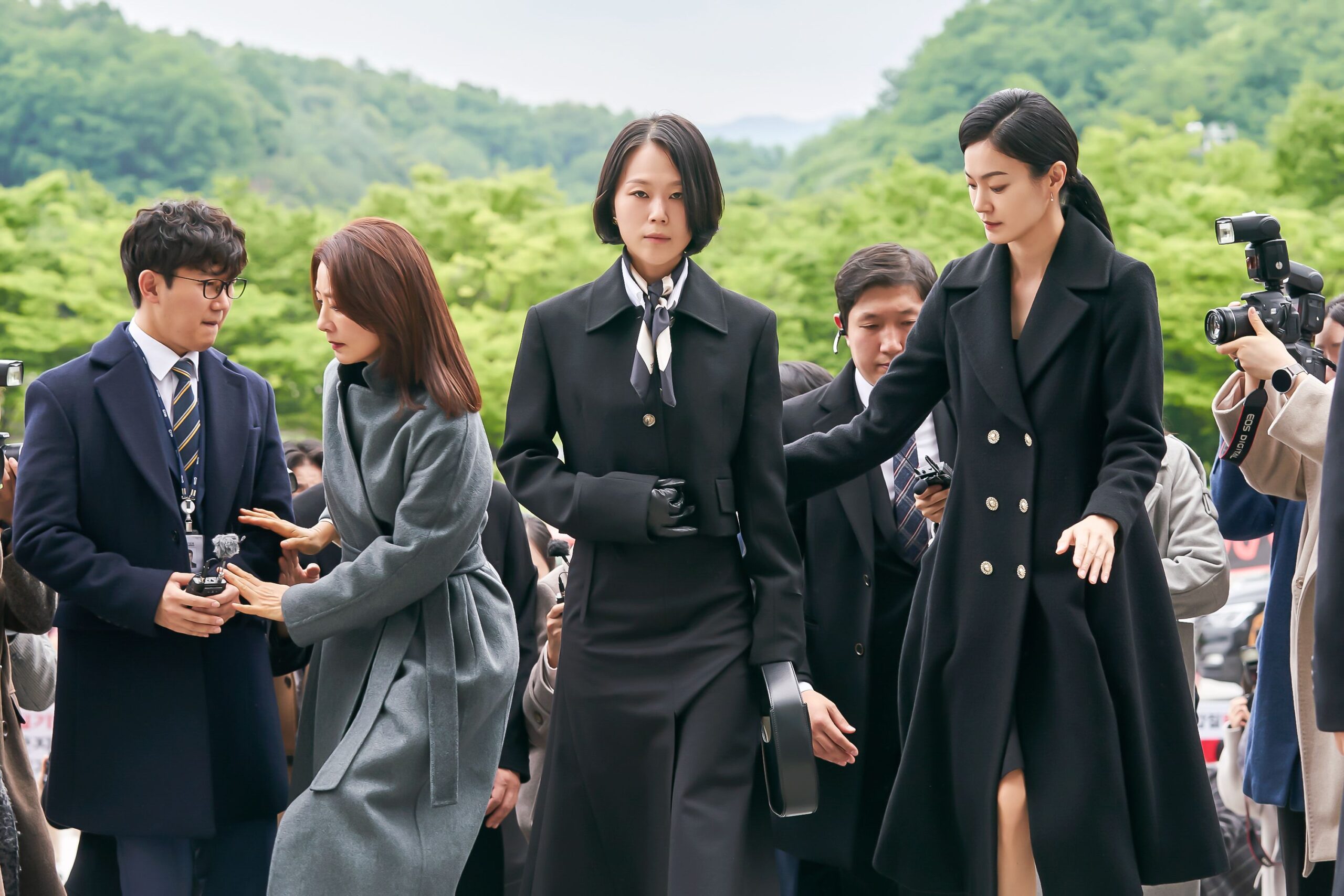
Full of twists and turns, Queenmaker is a corporate turned political K-drama where a corporate fixer plays campaign chess against her former employers and retail conglomerate the Eunsung Group. Centered on her and the earnest human rights lawyer she’s trying to get elected, the show has Do-hee mentoring Kyung-sook in the art of PR, this time for the good. Even as the show reuses the genre’s classic tropes, the series’ plot points are entertaining, with each new twist naturally occurring as each side tries to dig dirt on the other and use it for political clout. It’s one of the most intriguing K-dramas we’ve seen this year.
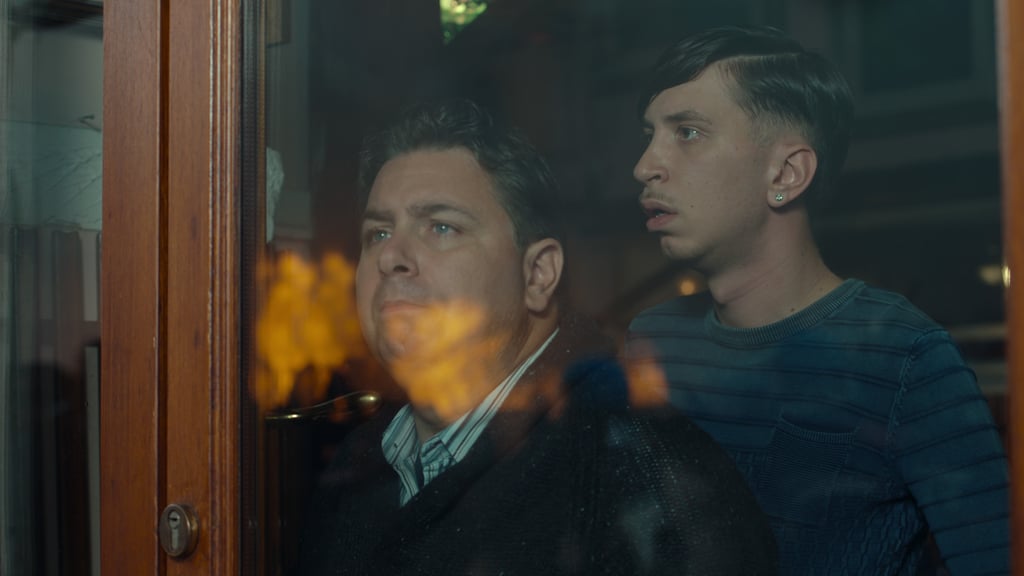
After the ending of the show Suburra: Blood on Rome, it had seemed like there was nowhere else for the franchise to go, with plenty of the main cast dead. But after three years, the world of Suburra is back on Netflix in Suburræterna, and despite the chaos that reigns in Rome, there are still opportunistic survivors circling over remaining scraps of control. One survivor is Spadino Anacleti, who, after he had left for a more tolerant Berlin, is now forced to return home, with no other suitable heir for the family. While new viewers might be lost with the names referencing previous characters, fans of the franchise would enjoy the way Suburræterna unfolds, as the Suburra story, inspired by the real life Mafia Capitale, takes on a life of its own.

Even before the worldwide pandemic, the field of medicine isn’t anymore the straightforward profession it used to be. It’s still a respected position, that’s attached with a certain status, but the demands have risen for those with the title. Doctors don’t only have to be good at their jobs– there’s a certain push for doctors to be also good at publication, lectures, in-office politics, the business, and for some, social media influencing and politics– it’s no wonder that medical workers today are burned out. Doctor Slump explores these themes with the usual K-drama flair, but in doing so, becomes a refreshing and cathartic romance to watch.
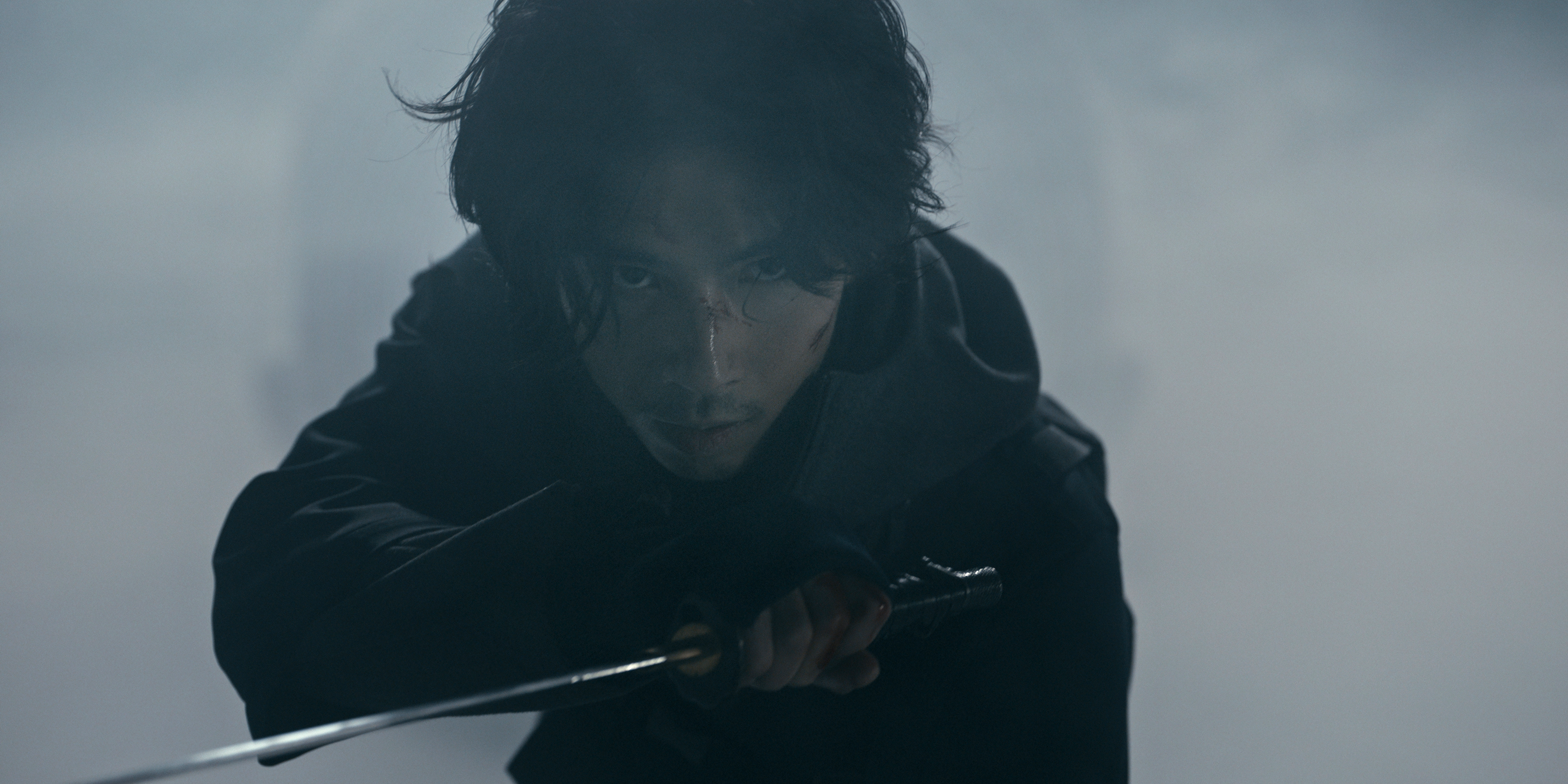
From the fantasy-powered folktales to superhero-like depictions, ninjas have captivated the world, but seem to be a relic of the past, with modern day warfare and weaponry turning them obsolete. House of Ninjas imagines a world where ninjas still exist, centering a clan stuck between wanting to abandon the old ways but also having skills that seem wasted in contemporary life. Because of this, the show at first seems boring– the family is severely demotivated, with some members acting out through petty theft, and with out-of-place jazzy musical tracks that undercut the action of the first few episodes. However, House of Ninjas gets better as the Tawara clan gets its act together, revealing the hidden heart each of them has for each other, one that’s been hidden because of the grief that struck the family. The show may be less action-packed than expected, but House of Ninjas comes across as an off-kilter family drama with just enough heart to work.

In fantasy worlds, races with different lifespans are a given, but rarely does a work actually contemplate how these variations would affect relationships between them. Frieren: Beyond Journey’s End starts after a great war, at the moment of peace, and to the titular elf, her shared journey with the human Himmel and their party feels like a blip in her life, their ten years of friendship blurred amongst her thousand years… until Himmel dies, which shifts her perspective on mortality. Frieren won’t have that much extravaganza we’re used to in other fantasy shows, but the way Frieren tries to reconnect with her former comrades, and the way she remembers their memory through flashbacks, all become a gentle and moving meditation on purpose, meaning, and connection, all paired with outstanding art and some of the best worldbuilding we’ve seen in anime.
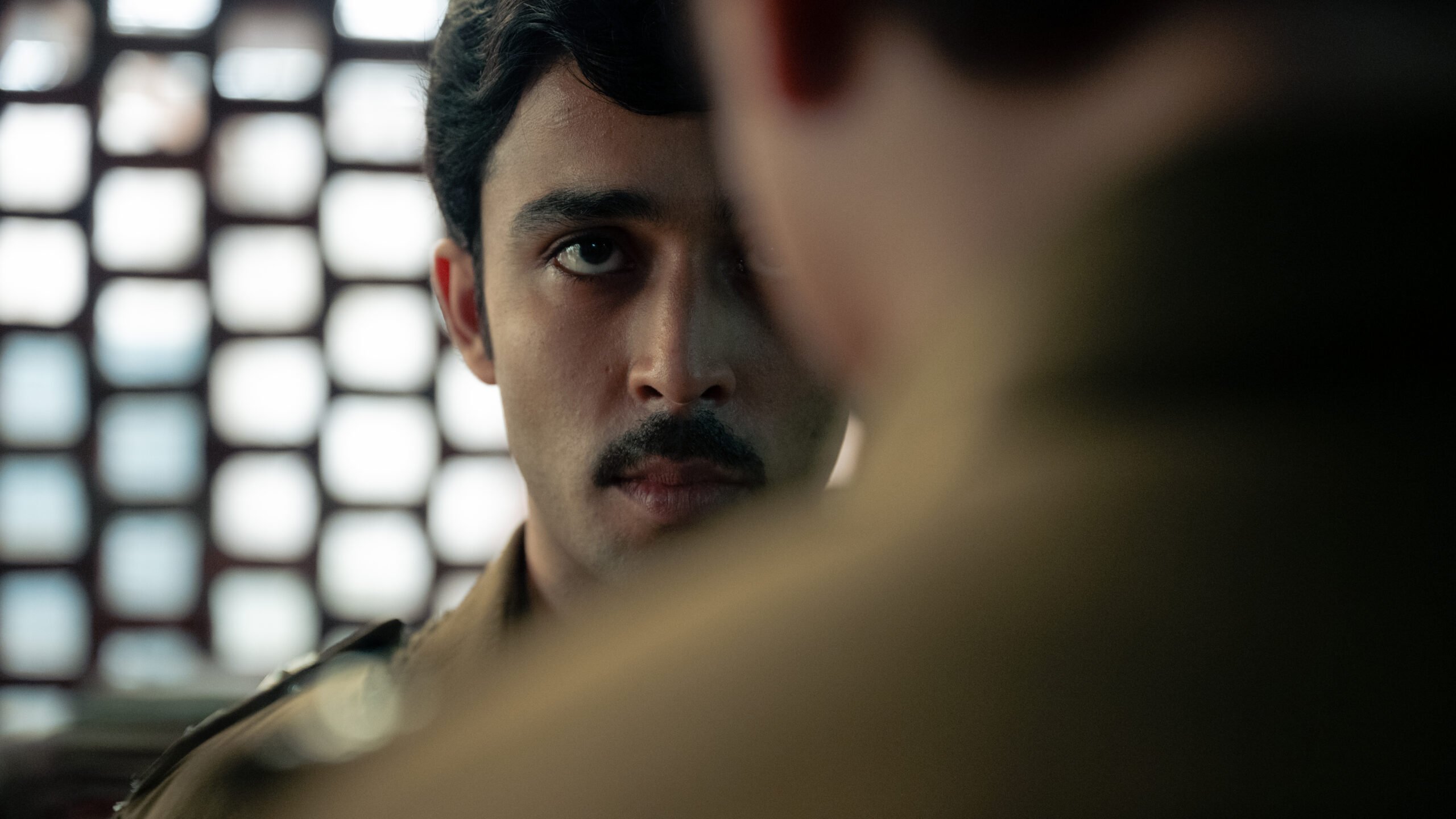
With the fresh-faced cast and the sleek camerawork, Black Warrant, at first, didn’t seem to be the gritty adaptation of the exposé outlining the systemic corruption of the Tihar Jail in the 1980s. But, aesthetic aside, that’s precisely what Black Warrant is. Opening to Zahan Kapoor as Sunil Gupta being interviewed for the job as jailer, the show takes him and the audience to the tour of the notorious prison, and it’s a gripping one not because of the usual prisoner shenanigans, but because of the way the officers themselves happen to be in on the drugs and alcohol trade inside– and they’re ready to pin it all on Gupta if things go down. Showrunner Vikramaditya Motwane pulls it all together with excellent performances from the cast, an eerie score, and the real life headlines of some of India’s notorious prisoners.
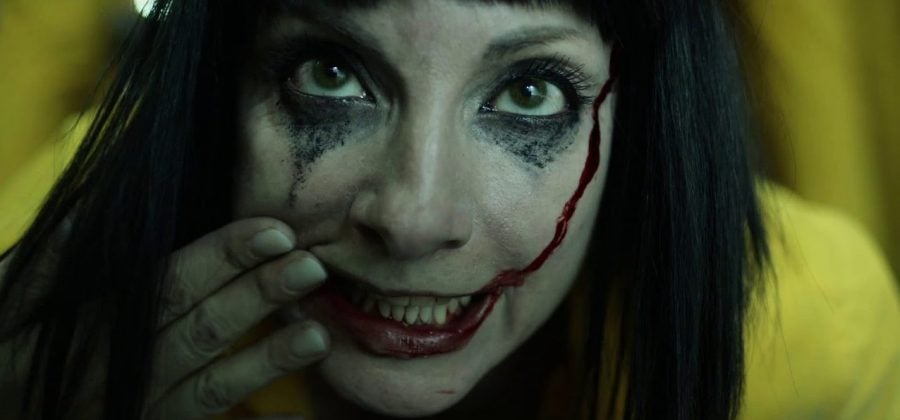
TV nerds know that Orange is the New Black, as much as it’s hailed in the U.S. for being ‘crazy’, doesn’t deserve that title. It’s only a mellow take on the women prison genre that was perfected outside the States. The Australian show Wentworth is one example and Vis a Vis (or Locked Up) is another. The show starts with an inmate being boiled alive.
Macarena Ferreiro is set up by her boss/lover and ends up in prison for tax crimes. First naive and used to luxury, she has to adapt to harsh prison conditions, and harsher inmates. On the outside, her parents try to secure a large sum to pay her bail.
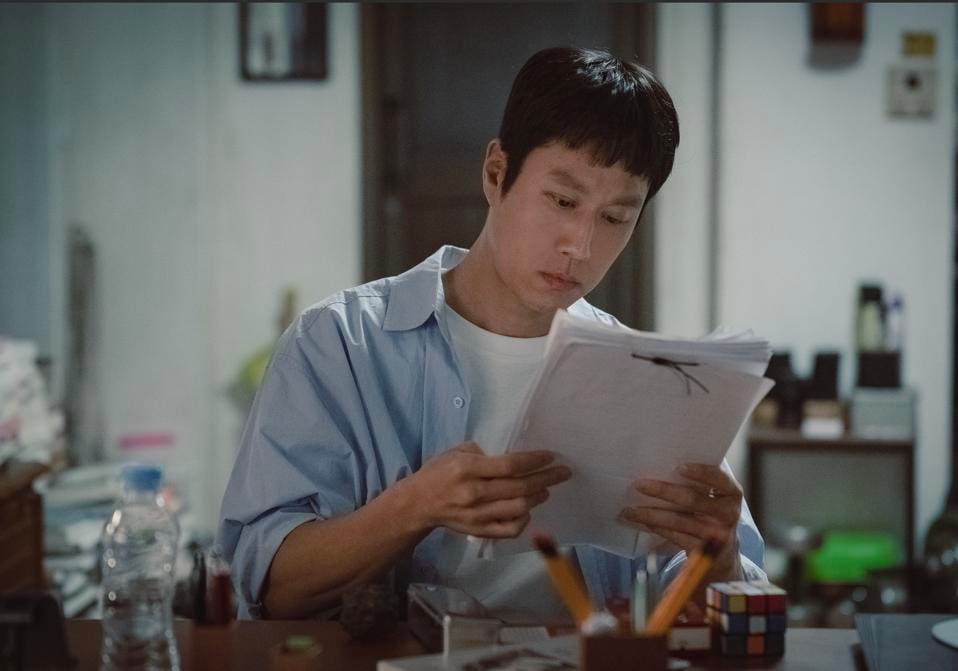
In their ninth drama collaboration, director Park Chan-hong and writer Kim Ji-woo partner again to deliver a murder mystery in Miraculous Brothers. The first few episodes juggle multiple plotlines between the novelist, the amnesiac boy he crashes into, and the serial murders, and at first, it seems unclear what links all of them. However, as the series successfully maintains its suspense for the two driving mysteries, it also makes it easy to root for the main characters – the superpowered empath and the reluctant writer – as they seek justice for crimes committed long before. The series shines best when the two become closer, and when the developing dynamic pushes Yuk Dong-joo closer to admitting the truth.

Also known as Rabo de Peixe, after the real town where the series is based, Turn of the Tide follows a group of four friends, who dream of a life outside their hometown, where nothing ever happens. Except, something does finally happen, and it’s whole packs of cocaine washing up on the island’s shores. It’s a wild series, one where the show’s teen underdogs take advantage of sailing expertise and knowledge of the town in order to sell out one third of the stash from the mainland Italian mafia. And it’s one that is endlessly entertaining, as we hope for the four teenagers to succeed in their plan, and to escape for another life.

There’s a lot happening in Netflix’s first Hindi survival thriller series Kaala Paani. The main plot follows the discovery of a new disease with inky rashes that confounds scientists and policymakers, which would remind viewers of the botched response towards COVID-19, but there are multiple subplots including a love story with a traumatized former nurse, a family drama between separated parents and children, and the ecological commentary on the indigenous population that survived the disease once before. But Kaala Paani is able to balance these plots, tweaking the series’ disease to visually carry the show’s science in order to dedicate more weight to each subplot. It allows showrunner Sameer Saxena to play with more philosophical themes, and allows his compelling cast to play with more complex and dynamic roles.
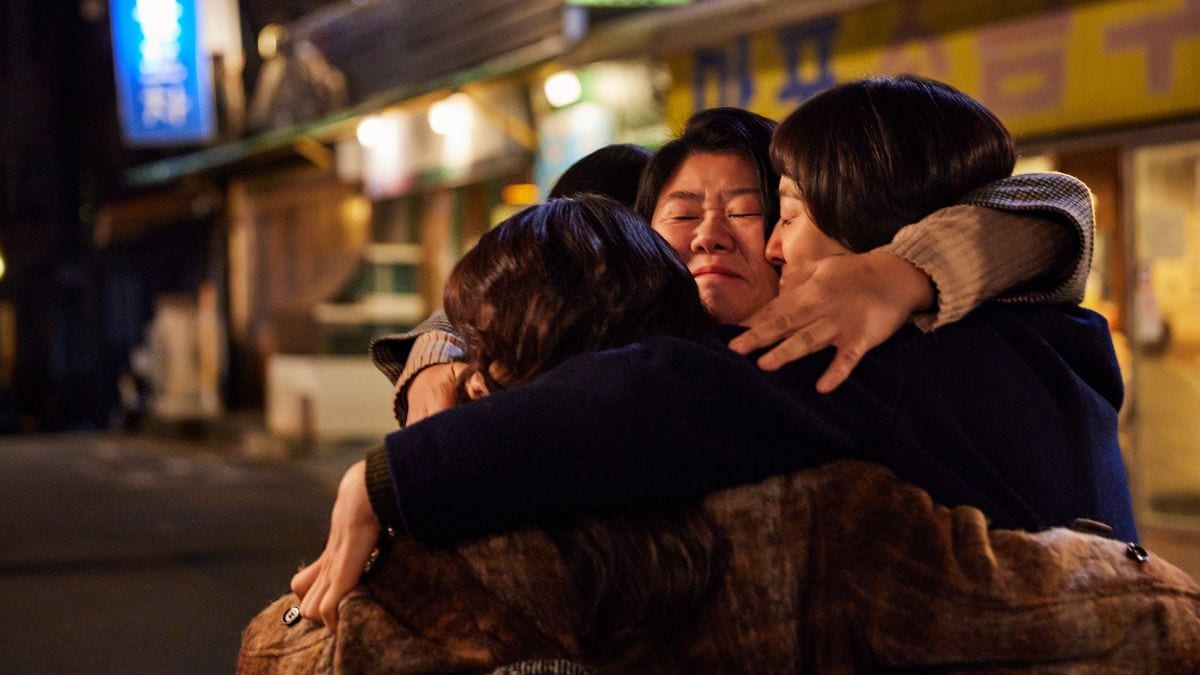
Like plenty of medical dramas, Daily Dose of Sunshine portrays the day-to-day dynamics of a hospital department, this time in the department of mental health in a country that has one of the highest suicide rates in the world. Based on the webtoon from a former nurse, the series might have some laughs from the department’s dynamics, but never at the expense of their patients. In fact, the show takes great care in depicting mental illness, taking care to visualize the patient’s episodes, as well as the way Da-eun tries to fit into her new department. It’s sweet and earnest, but not too cloying, and as substantial as the mugwort rice cakes Da-eun brings for her co-workers.
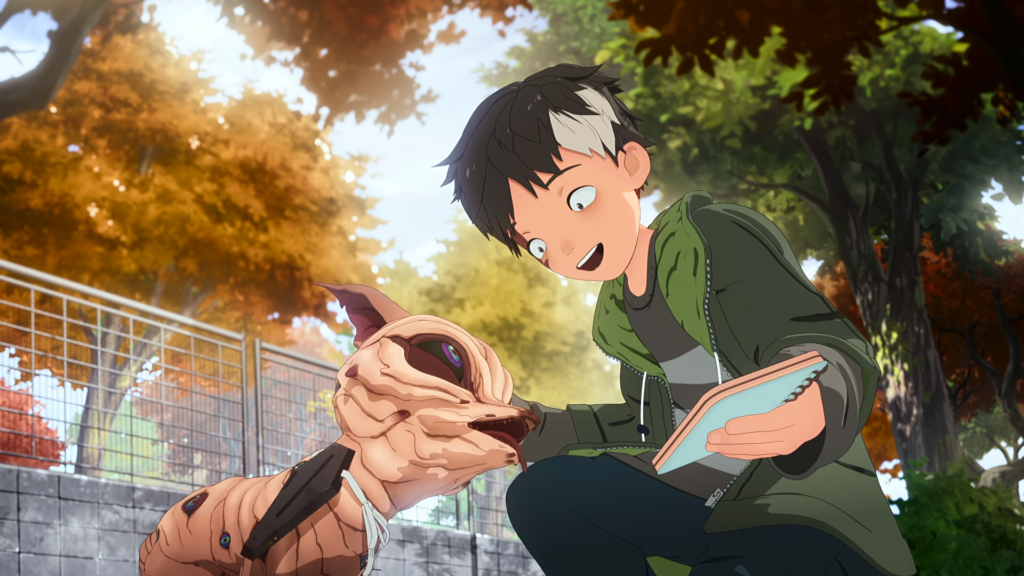
You know how How to Train Your Dragon has a town terrified of dragons, but it turns out they’re actually cute? My Daemon has a similar situation, except this happens after a nuclear explosion, plenty of these monsters are still murderously terrifying, and even the cute ones are fairly creepy. But that doesn’t keep elementary schoolkid Kento Tachibana from adopting one, even as they get hunted down by bounty hunters. The bond between boy and his daemon is a heartwarming one, but the treatment between the various monsters questions the different ways we treat different animals, and whether or not we can successfully live alongside them. With its unique art style, it’s a totally stunning adventure, though with some creepy crawlies along the way.
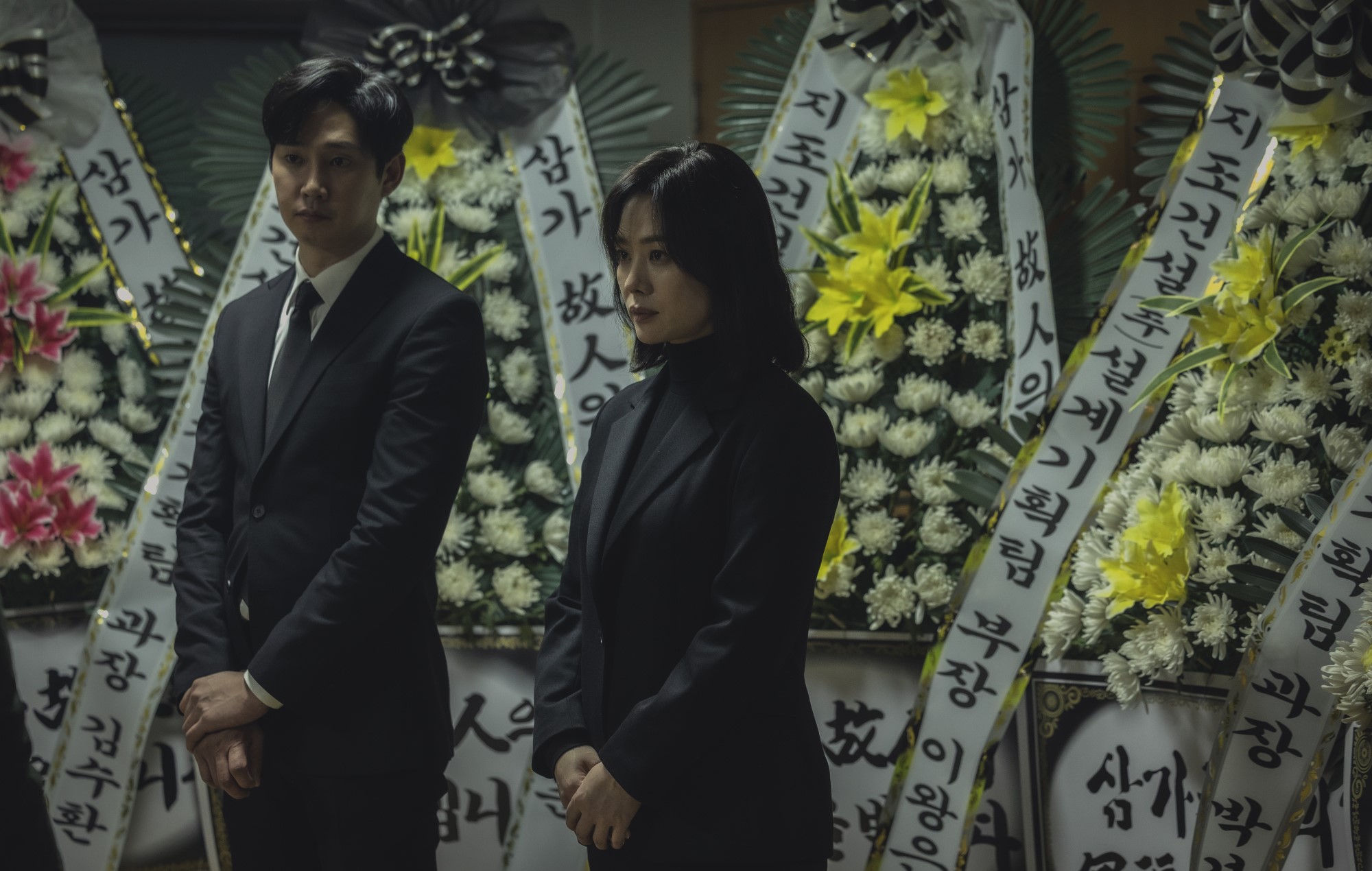
Succession, whether that be of family assets or of job titles, is always a tricky situation to navigate– often, those choosing a successor would have to check in with the possible choices next in line in order to make sure there are no resentment, otherwise, it could drive the hillside horror present in The Bequeathed. From passive-aggressive co-workers to mourning relatives, Yoon Seo-ha is having a terrible time dealing with the succession situation, both being resented by a superstitious half-brother for the land and resentful of a co-worker who got promoted before her. It’s so easy to suspect potential rivals, especially when murder strikes those around you, but The Bequeathed also recognizes something scarier– the fear of what you could do with that resentment.

When a show is focused on a kid and their sport, chances are, the main character holds a passion for the sport itself. They saw it, they thought it was cool, and they tried it out. Blue Box, however, takes an unconventionally depicted, but no less honest, motivation– the energizing power of having a crush. The way Taiki goes about it feels reminiscent of that first childhood crush, with the excitement, the determination, and the pure mortification each time he perceives to have jumped the gun, but it’s all made endearing with the characterization, writing, and the beautiful render, and it’s easily driven by the familiar device of having to share the same residence. Blue Box is just so darn cute.
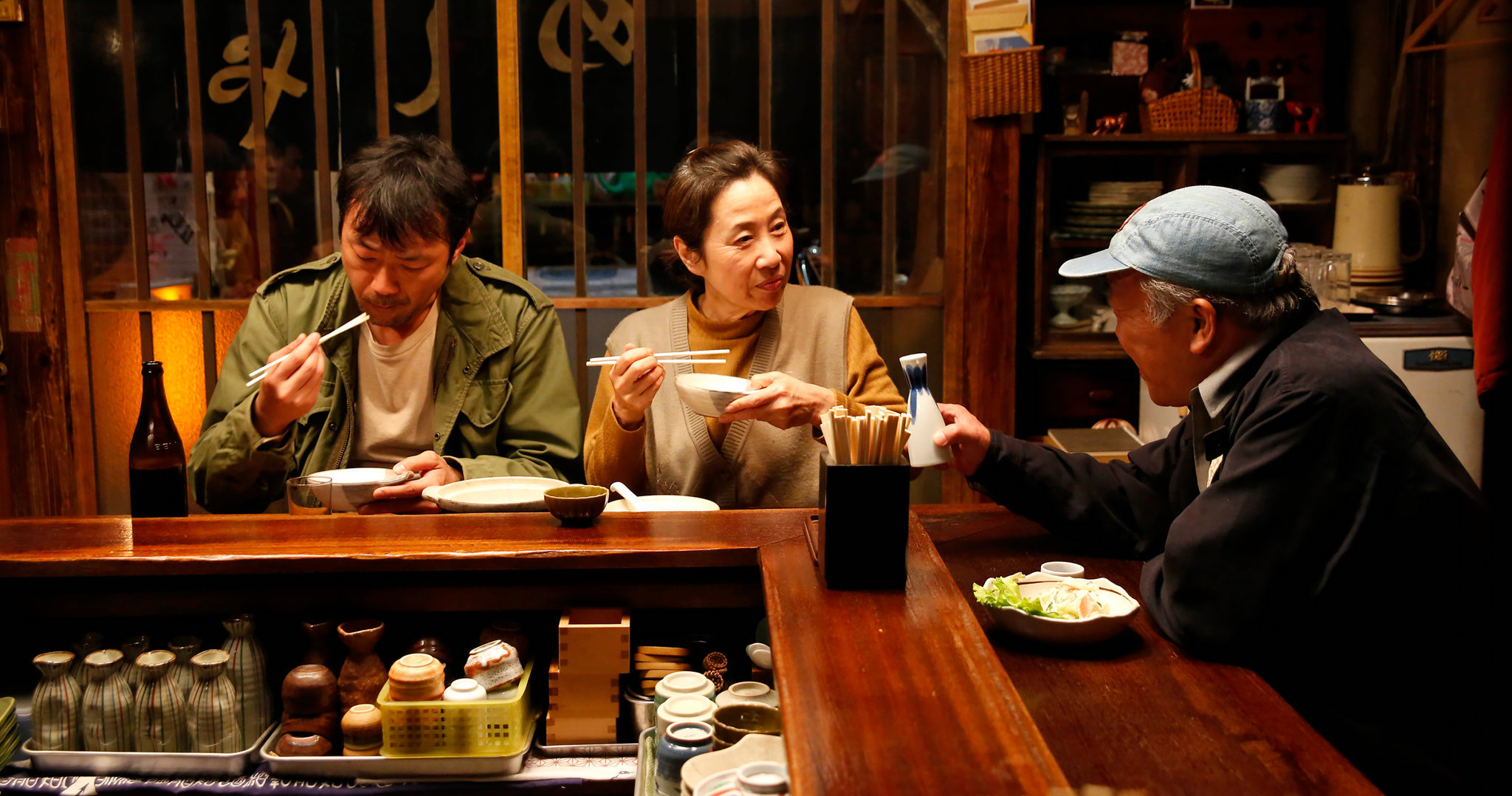
The episodes of Midnight Diner are just as heartwarming and assorted as the dishes the restauranteur known only as Master prepares for his customers. Much like short stories, they each have their standalone arc and specific conflict, but they all share the same connection: they take place in this diner, which is open only from midnight until early morning, and they follow the lives of everyday Tokyo citizens. There’s a broadcaster who seeks the warmth of tan-men after a busy day of work, a has-been comedian who steals his rival comic’s corndog, and a realtor who orders pork cutlets to win over lovers. They are mundane and relatable stories told with gentleness and depth, and ingeniously, they all go back to the dish of the day served at Master’s diner. For his part, Master helps these characters figure out more than just their orders by doling out advice in his own stoic yet sage way.
It’s sort of like miso soup for the soul in that way; heartwarming and comforting, best served on a cold night.

Saints used to be given divine messages, but in the modern age, what if God, or any higher power, communicated to us through social media? Kübra explores this idea in serious contemplation, with fewer intelligence agencies than Netflix’s 2020 Messiah, and more interest in the chosen messenger himself. The show is surprisingly more meditative than thrilling, as the lost ex-militaryman Gokhan and his loved ones quibble over the messages possibly from Allah, through the titular screen name. Of course, they point out that the very idea is ludicrous. At worst, it could be a delusion influenced by a stranger that wants to manipulate a war veteran for nefarious purposes. But the journey and the excellent performances allow us to ponder how prophets came to be– how faith and purpose are intertwined, and how much life’s difficulties can push us to hope for a miracle.
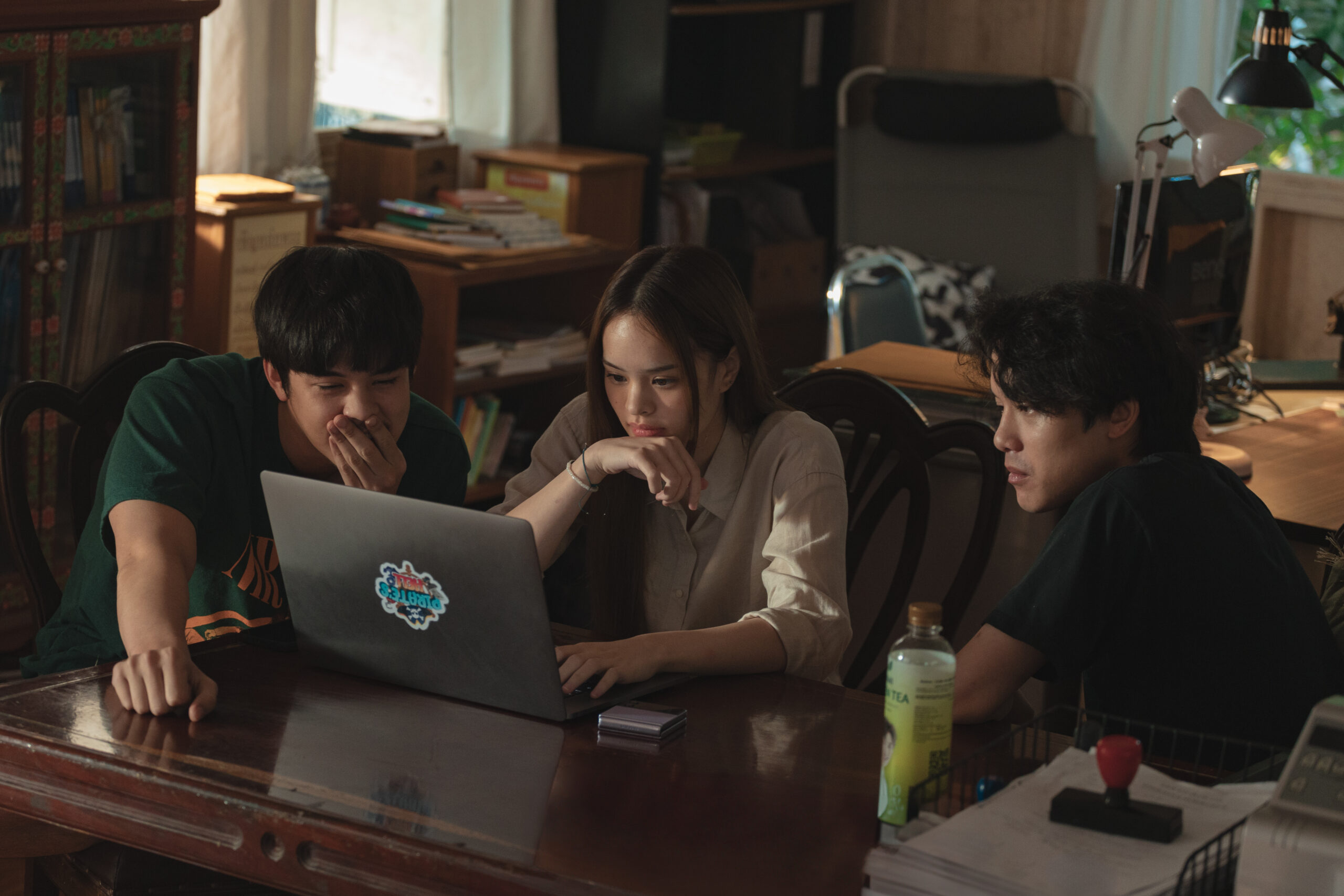
When people donate to temples, they rarely contemplate the way these donations are used for its upkeep and renovation, and they would never think to imagine the possibility of profit. Netflix Thai drama The Believers centers on three young entrepreneurs, who, due to debt, decide to partner up with an abandoned temple as a money making scheme. It’s an audacious scheme, one that, of course, terribly exploits its devotees. But the show also examines the ways these schemes help draw genuine devotees towards the religion, creating a mutualistic relationship between the temple and profiteers that can’t be easily undone. With the recent fraud investigations around Thai temples leading to controversial imprisonments a few years ago, The Believers is a timely examination of a rarely examined issue.
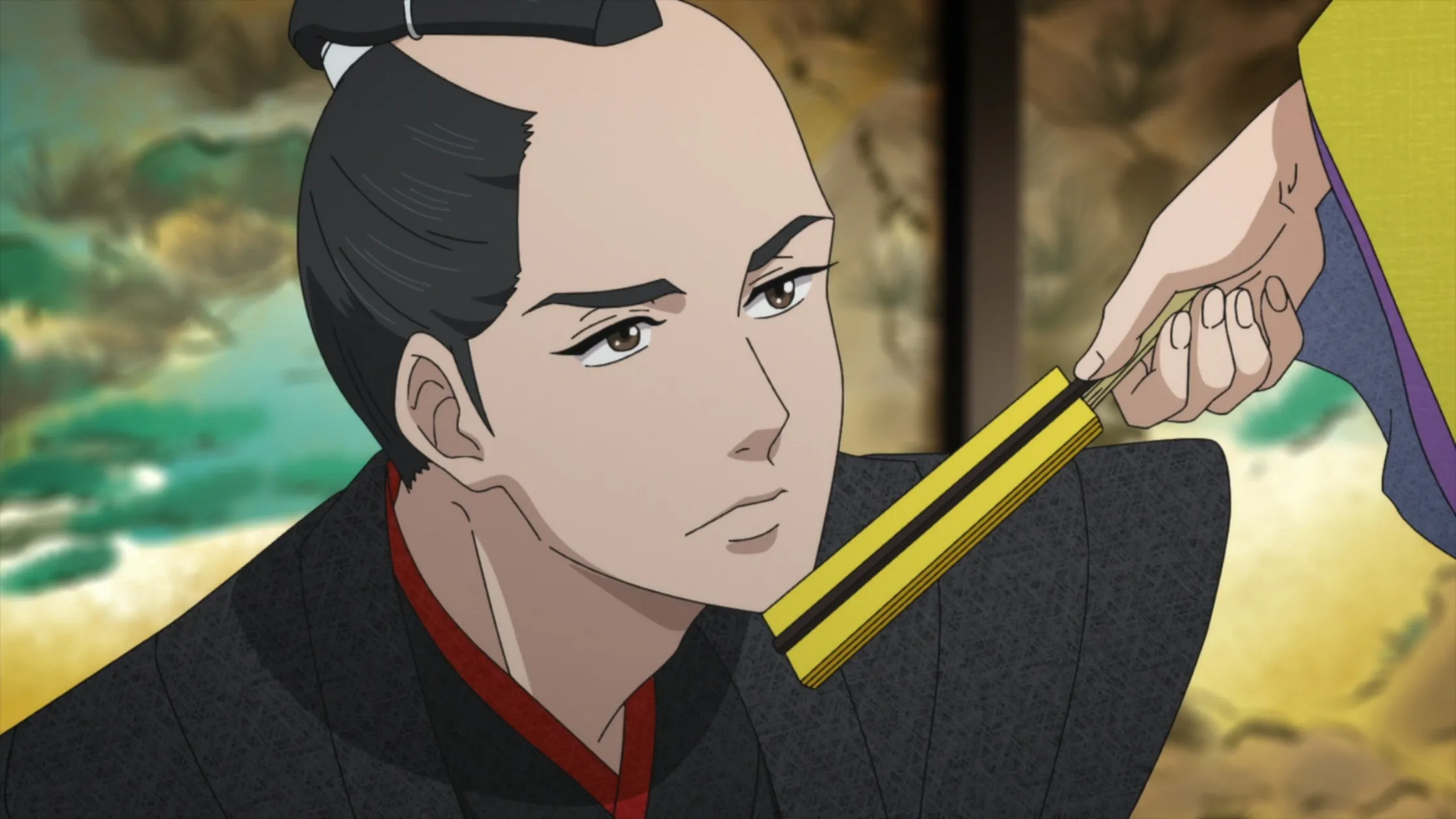
Set in a fictionalized version of Japan’s Edo period, where a deadly disease affecting only men has led to women taking traditionally-male roles, Ōoku is steeped in social commentary on gender and sexuality. The concept is well-established in its 70+ minute first episode, allowing the story to set a foundation for a fascinating progression in this world. By centering the powerful warlord figure, the Shogun, it illuminates the shadows women occupy to support a country with little to no recognition. With a political throughline and an inherently feminist lens, Ooku: The Inner Chambers offers a beautifully-animated series with few gimmicks and lots of depth.
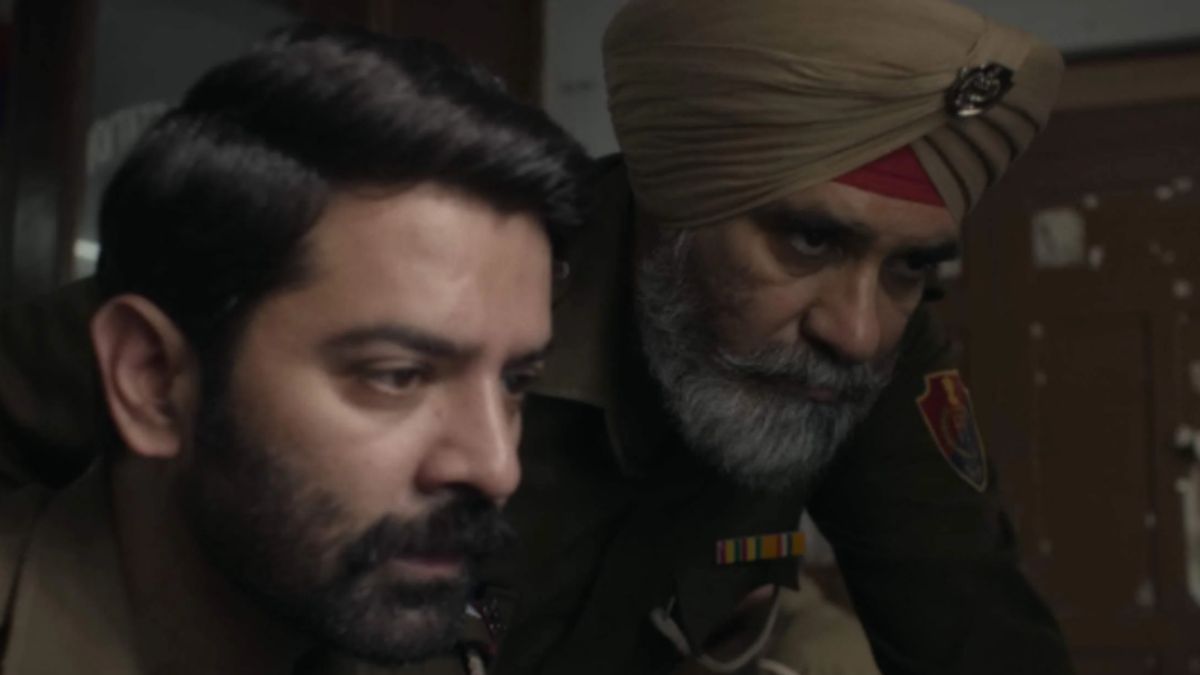
Netflix India has been dominating the police procedural and mystery market, and Kohrra, its latest addition, is one of its better entries. Officer Balbir (Suvinder Vicky) is under pressure to resolve the case of a dead Non-Resident Indian and his missing white friend, but the fear of local backlash and global attention raises the stakes as the show weaves internal and external politics in India. Drugs, lies, and old grudges eventually surface, complicating the quiet pursuit of truth with public spectacle. This makes for a thrilling mystery, but Kohrra also excels as a family drama as we watch Balbir mend his relationship with his daughter, while his partner Garundi (Barun Sobti) deals with the pressure to get married.
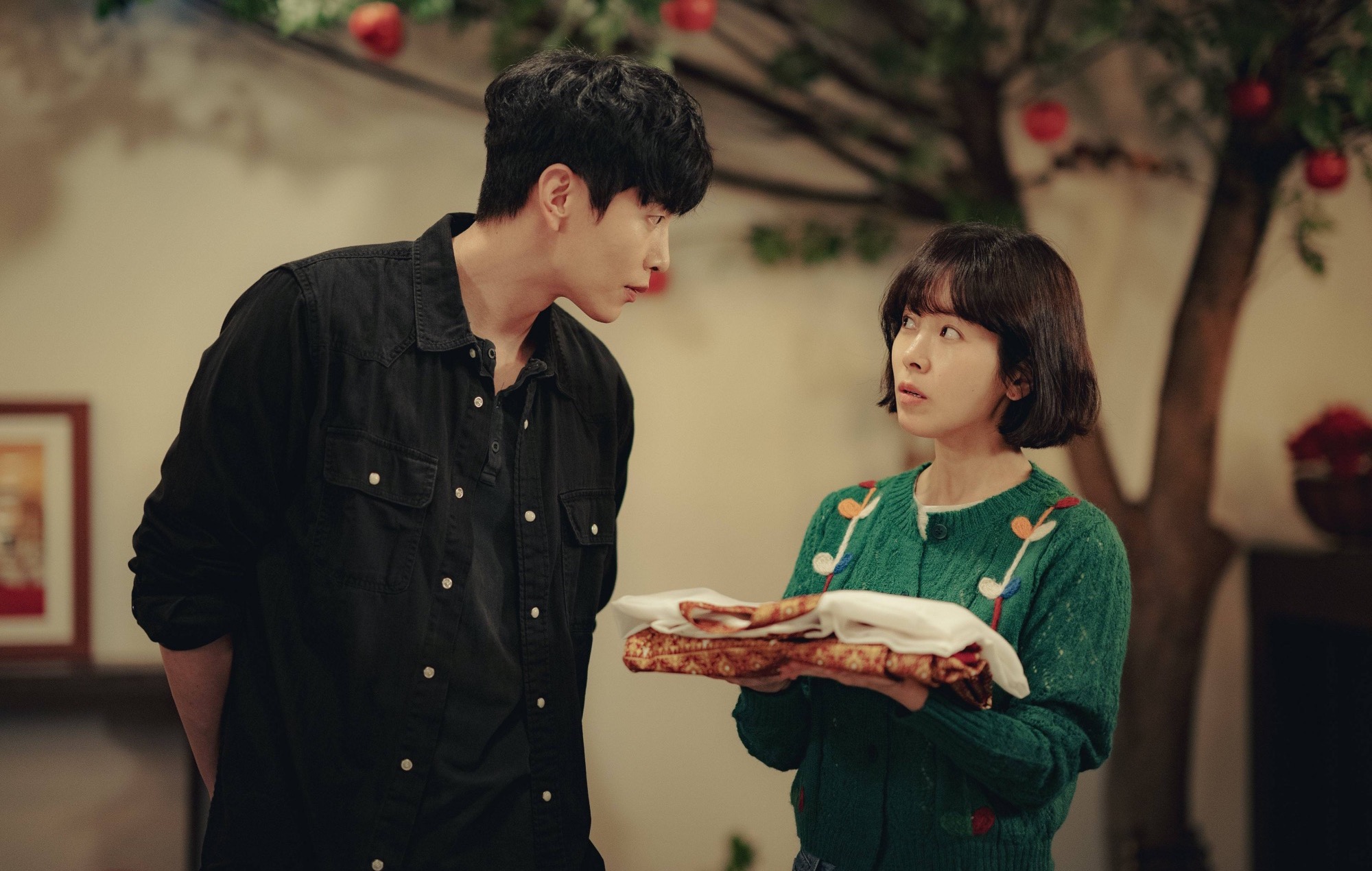
When the psychometric powers of the main character are only activated when she touches a butt, you know that Behind Your Touch will be as silly and hilarious as the show’s powers. The K-drama gets into ridiculous moments, oftentimes inspired by other dramas from the action, horror, and romance genres, but done in exaggeration for comedic effect. And the cast really gets into the action, with Han Ji-min and Lee Min-ki’s excellent chemistry and timing able to deliver the jokes written by the team. As the first season will end soon, it’s hard to say if the ending will be as good as its start, but so far, Behind Your Touch takes interesting comedic twists of the K-Drama tropes we all know and love.
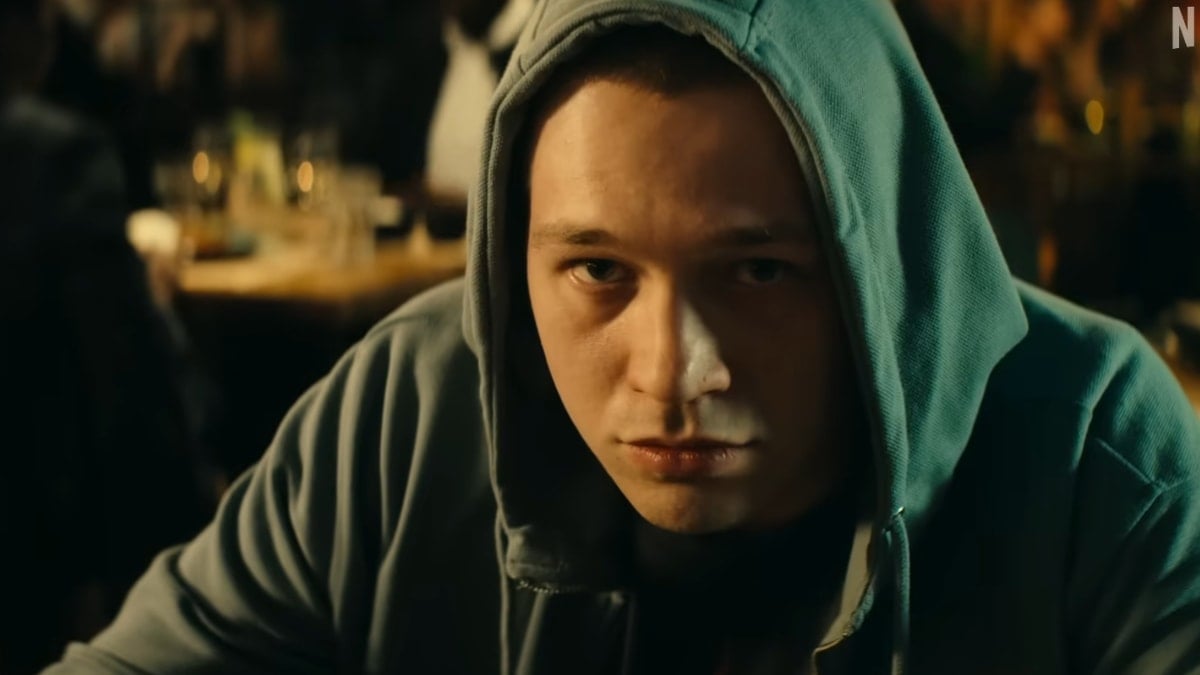
After years of trying to regain sobriety, it’s totally chilling to wake up the next day, with no memory of last night, only aware that you failed to stay in control, again. Feedback follows a washed-up rock star trying hard to figure out what happened last night, but not just because it was an oopsie. Instead, for Marcin Kania, it’s the night his son went missing. With angry spiraling scored by electric guitar, temptations to drink abound, and the demeaning judgment of everyone around him, it’s hard for him to convince the cops to take this case seriously, especially when he only has blurry recollections of last night. But it’s easy to root for this unreliable narrator, who’s trying hard to be his best. He just might find him, but he might also find out what happened to the son he failed to guide properly, and hopefully redemption for how much he’s failed his family.
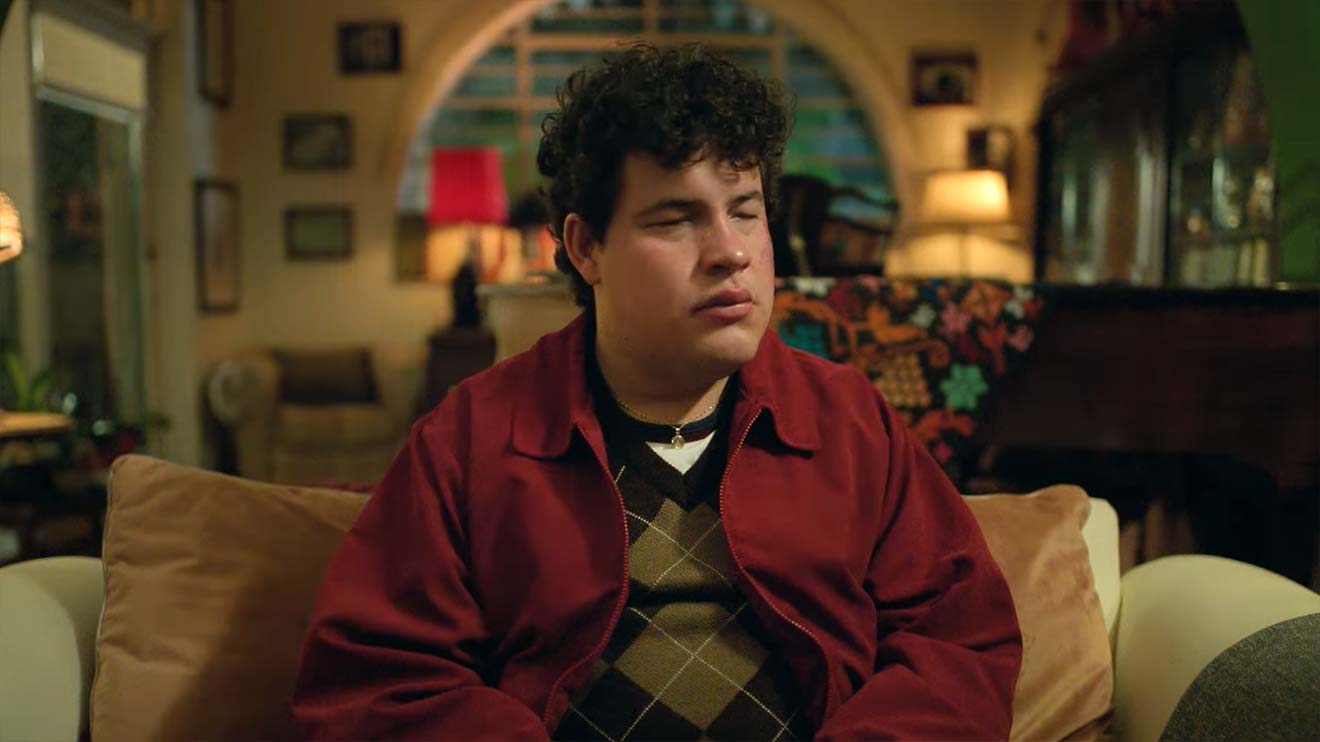
When a comedy is centered around people with disabilities, there’s a worry that the humor would be unfunny or demeaning – there’s a misconception that disabled jokes would surely have to be one or the other. But Nothing to See Here is funny without relying on stereotypes. The humor isn’t based on forced quips or halfhearted improvisations. It’s just part and parcel of a story about chasing dreams, seeking independence, and keeping faith in one’s self despite the limitations imposed by others. And through showrunners Big Drama and Santiago Limon, as well as the well-selected cast, it’s hilarious and heartfelt enough to follow.
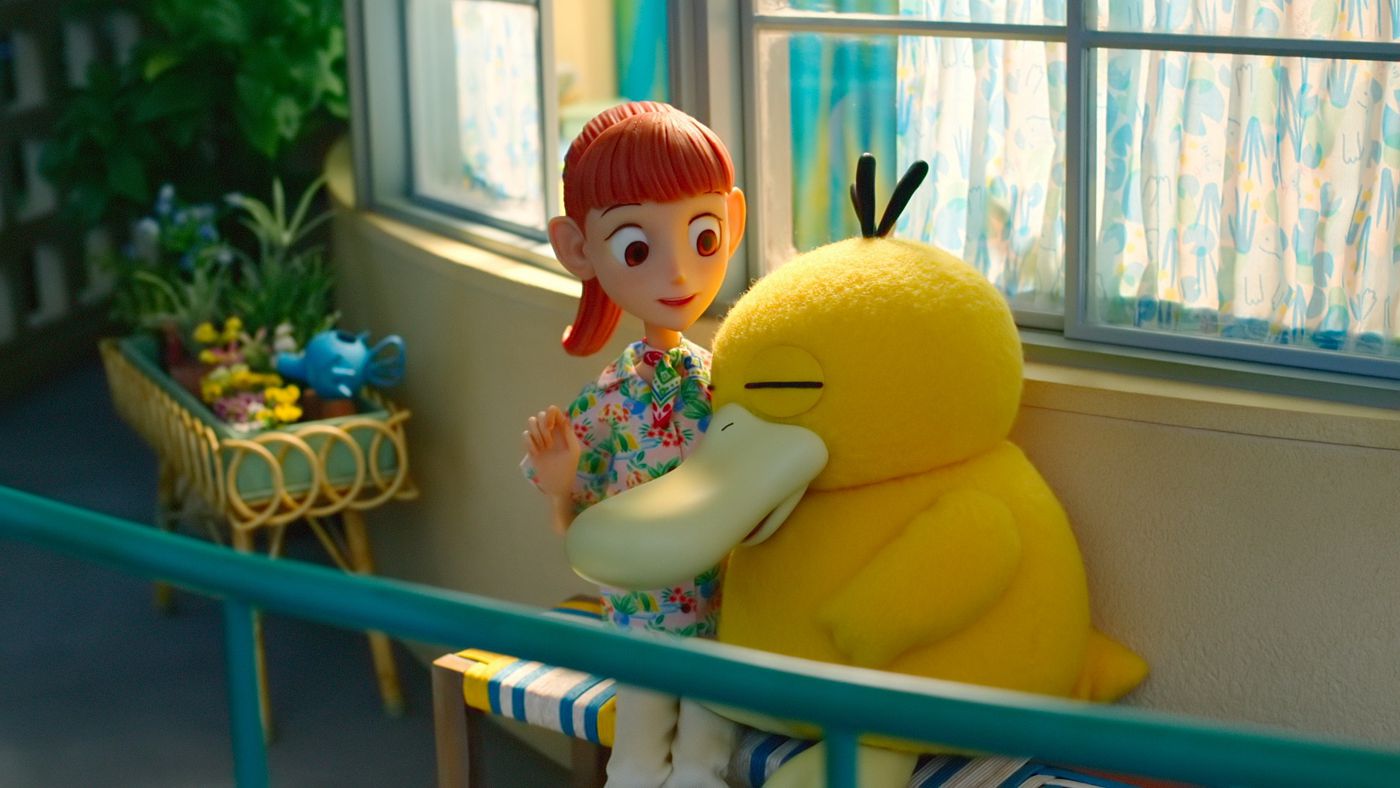
Pokémon is one of the world’s most popular franchises, and it’s mainly centered around the idea of cute, colorful creatures with special powers to be caught, trained, and put into battles. Pokémon Concierge is a different side to the franchise, but instead of the high-octane action and world-ending fights, the four-episode series contemplates the idea that maybe these cuddly creatures need to rest too. As anxious newbie Haru adjusts to the laidback, paradisal resort, and acquaints herself with felt-fabric versions of the familiar cartoon creatures, Pokémon Concierge is an excellent reminder to enjoy yourself once in a while.
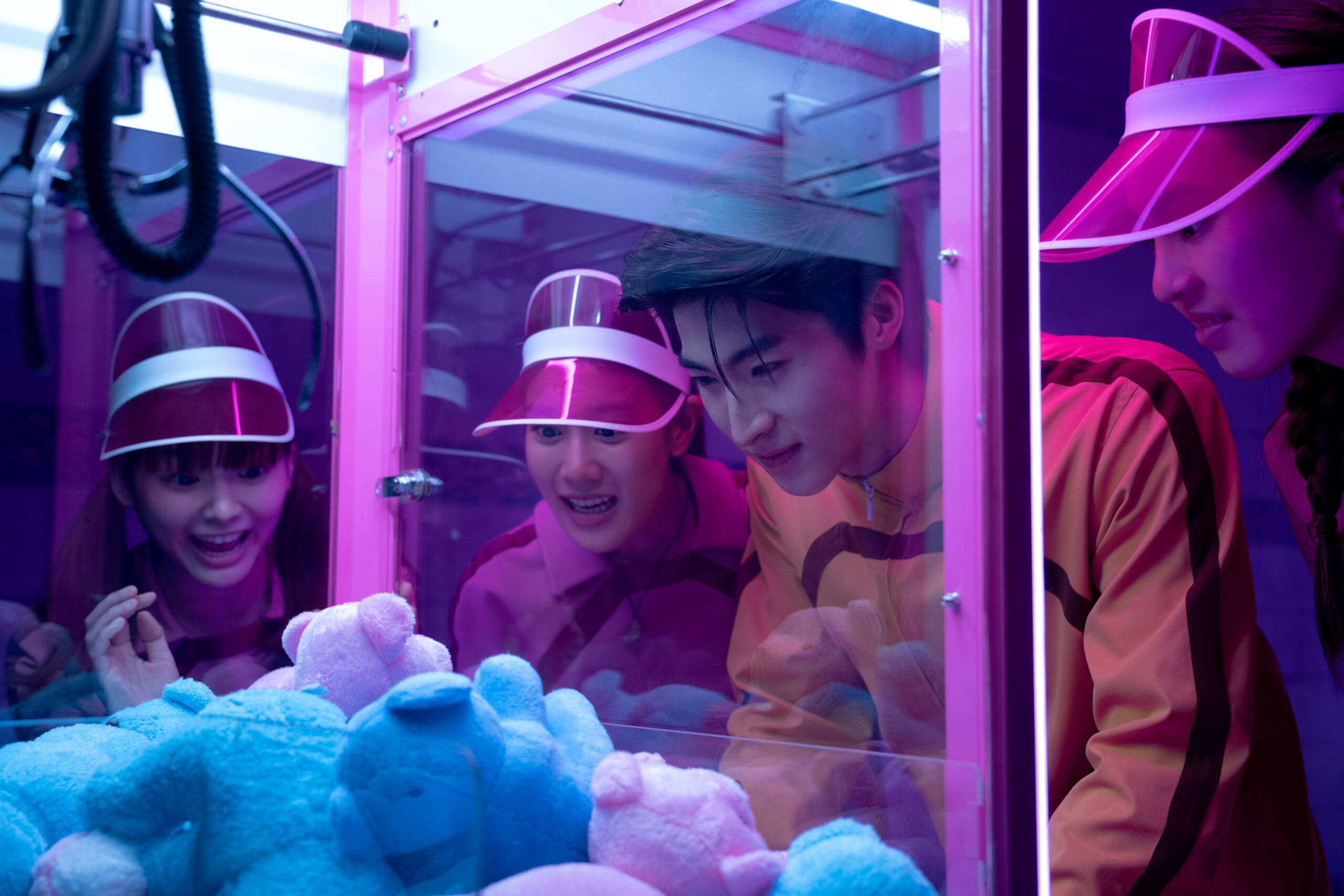
With the success of Squid Game and Black Mirror, the concept of a game show as a makeshift solution to a dystopic world is interesting, but it led Netflix to create reality competitions to capitalize on the hype (Looking at you, Squid Game: The Challenge). This time, however, Thai Netflix takes a more unique approach with Ready, Set, Love. It’s more humorous, as Day fumbles each time she meets Son, and with the reality show being a dating show, there’s surely some romantic mishaps that would happen. But the show doesn’t forget the stakes behind the campy, candy-colored world– with Day doing all she can to secure her chronically ill sister’s healthcare and with Son dissatisfied in the utopic cage that is The Farm. Ready, Set, Love has plenty of the fun shenanigans expected for its romcom approach, but it remembers to empathize with the desperation and hardships that make reality game shows so compelling.
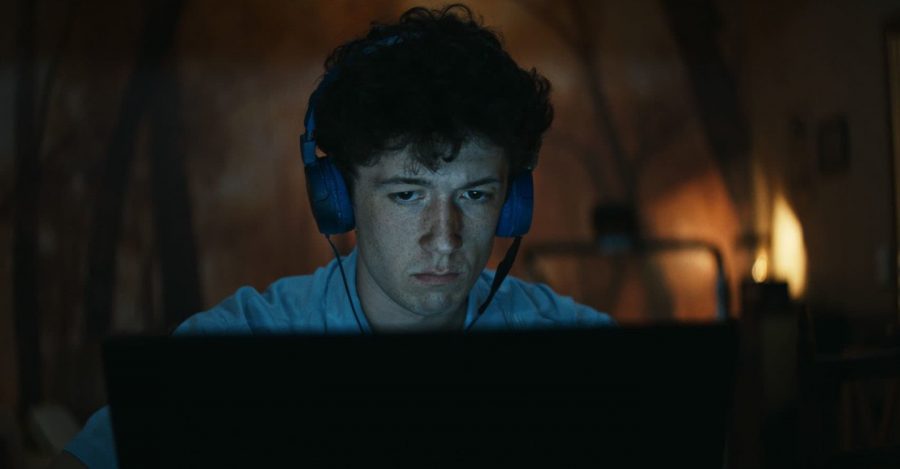
This is Breaking Bad meets The Social Network. Based on a true story that took place in Leipzig, Germany in 2015, this show is about Moritz, a high-schooler who starts Europe’s biggest drug market online. He initially does this to impress his ex-girlfriend, who had just come back from the States with new drug experiences.
The transformation of a nerd into a drug kingpin is fascinating. But because it is based on a true story, there is an important nuance to that transformation. Moritz is rarely portrayed as a hero, and his creepy side is always present. This makes for an interesting and exciting plot-heavy show.
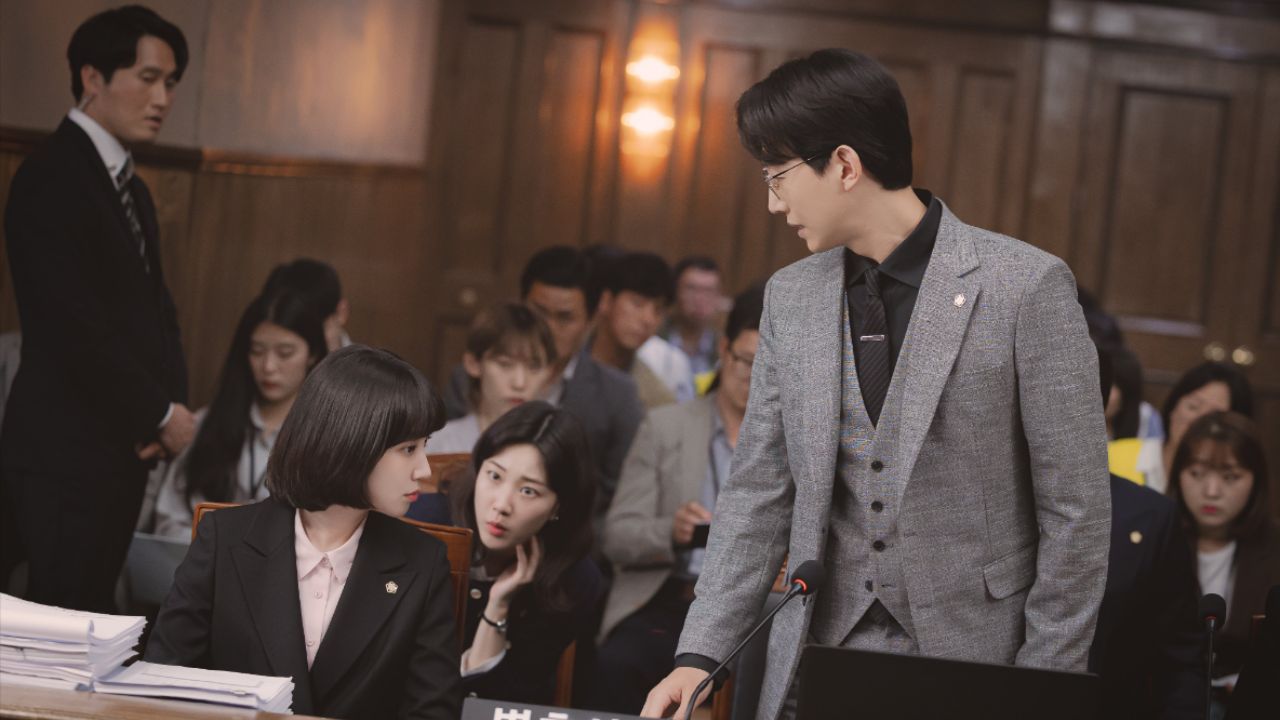
Despite their rising popularity, K-dramas have sustained a reputation for being, at times, too sentimental for their own good. Extraordinary Attorney Woo is not exempt from that tendency, but when it does shoot for schmaltz, it makes sure to aim right at your heart. Thanks to clever twists and moving performances across the board, Extraordinary Attorney Woo is an excellently emotional series. Every romantic encounter will make you swoon, every courtroom scene will have you cheer, and every ending will leave you in tears.
Moreover, it’s not a show that simply happens to be about lawyers. It is a law procedural that deals with each new case with the utmost care. It’s smart and educational, with the proceedings and resolutions blending seamlessly into the characters’ own arcs.
There’s something for everyone in this series, and it’s sure to be an easy favorite for one reason or another.
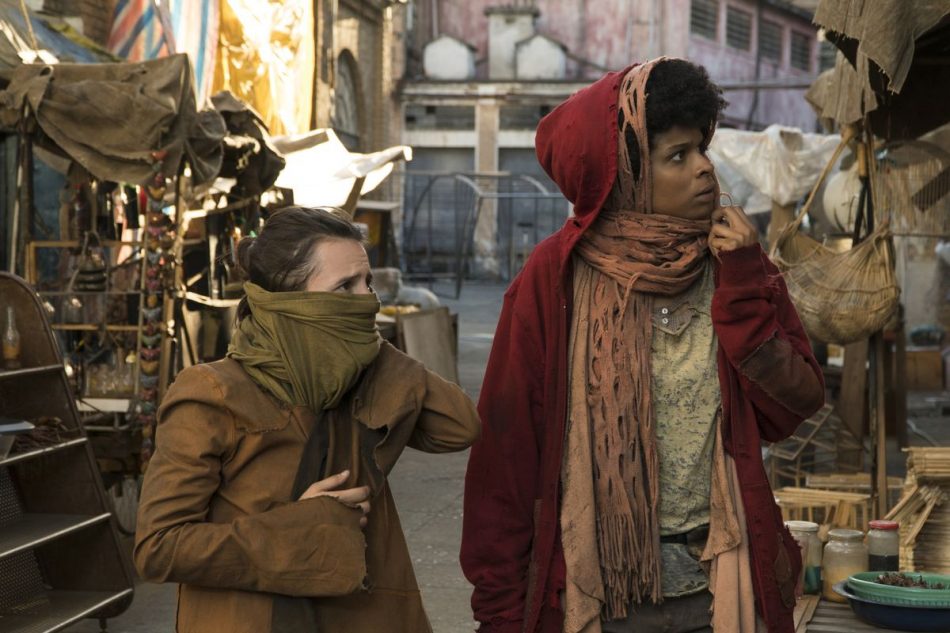
From the Oscar-nominated cinematographer of City of God, this is a Brazilian Netflix TV show that I can only describe as a smarter Hunger Games. In a dystopian society, the majority of the planet’s population lives in extreme poverty while a select 3% (hence the title) live in a heaven-like world called “The Offshore”. Every year, the 20-year-olds of the planet get a chance to join the 3% in a selection process that for the first time might harbor moles. With an intriguing first episode that shares just enough to keep you informed but engaged, it’s easy to want to binge-watch the whole first season of 3% in one sitting.
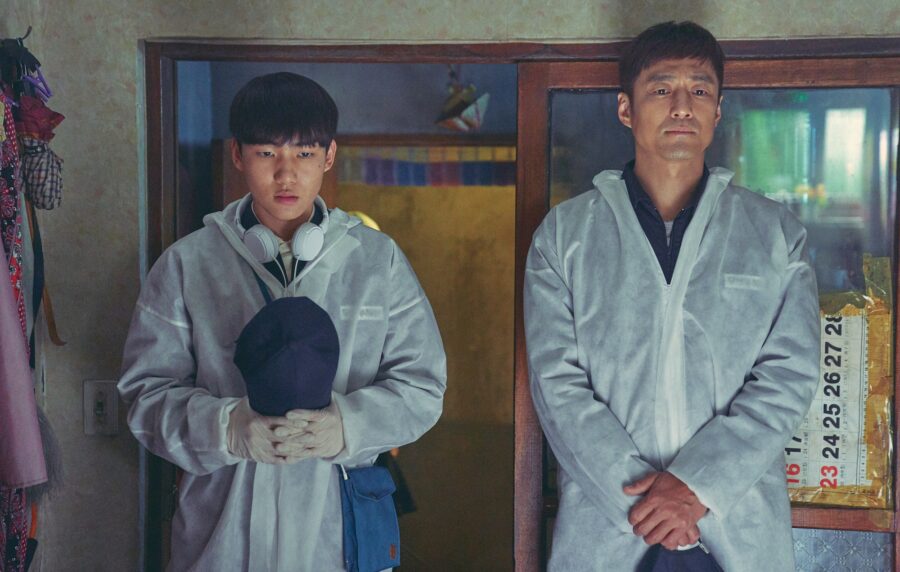
In Move to Heaven, a man and his son clean up after the dead—specifically, the dead who have no one else to look out for them. Believing that no one should be robbed of a respectable farewell, they piece together the deceased’s possessions and celebrate them postmortem. It’s a noble job, but its existence is threatened when the father passes away. It’s now up to the ruffian uncle with a heart of gold to continue the business and bond with his nephew, who himself struggles with Asperger’s.
It’s easy for Move to Heaven to feel weighed down by all the important stories it tries to tackle; represented here are disabled people, depressed people, queer people, overworked people. But it breathes so much life into these stories that they hardly feel like the drag other shows and movies make them out to be. Tragedy here is expertly blended with humanity, and the result is a moving and compassionate series that stands out even in the saturated content space that is Netflix.
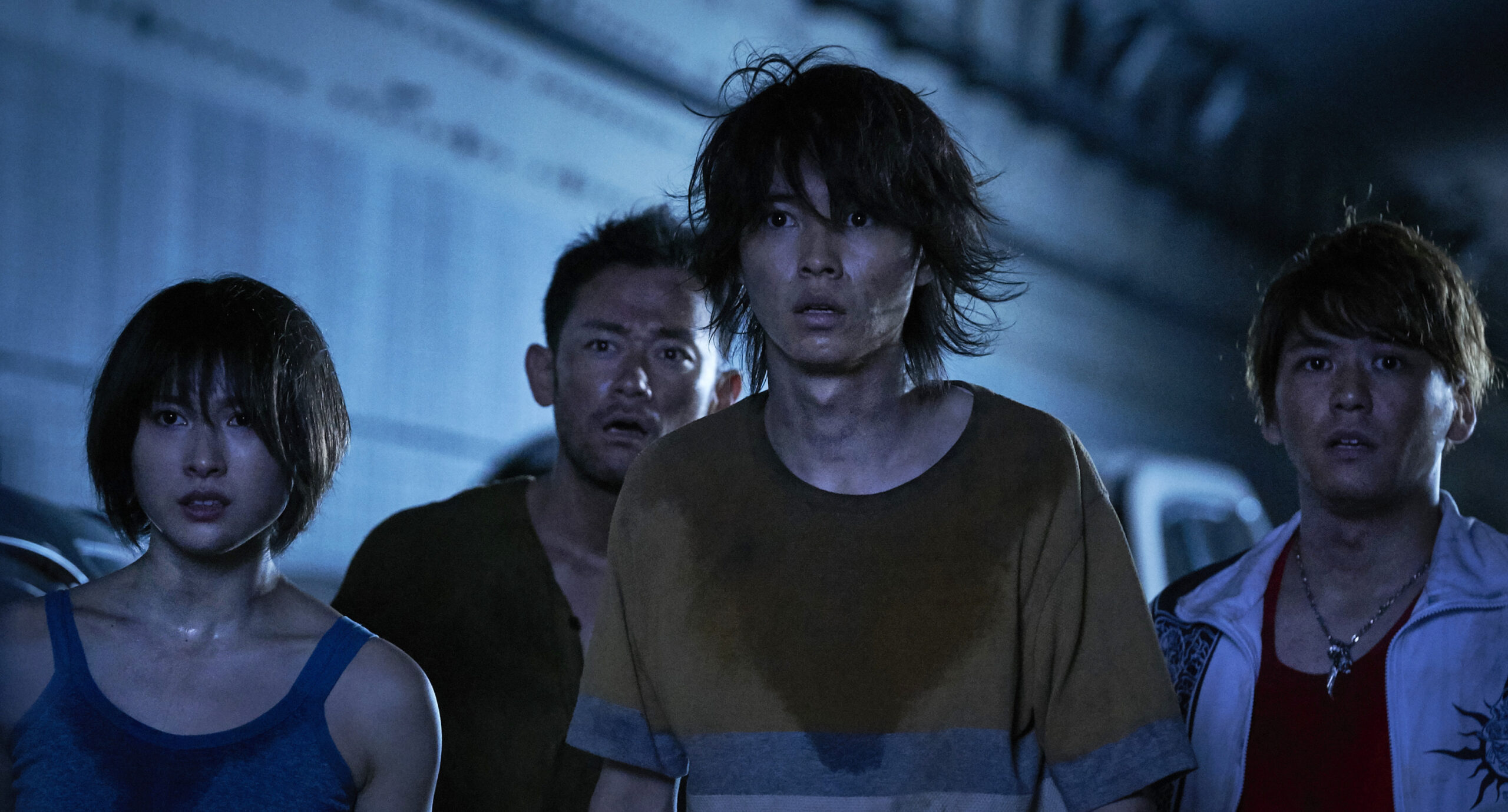
Alice in Borderland is a fast-paced heart-wrenching puzzle of a show that will have you wracking your brain and wiping your tears, often at the same time. It combines the wit of Hunger Games, the ruthlessness of Battle Royal, the goriness of Saw, and the social commentary of Squid Game, though sadly it has yet to receive the same renown as these titles.
With each game, the characters must solve a given problem before the timer runs out—when it does, they die, often violently and for others to witness. While playing the games, leads Arisu (Kento Yamazaki) and Usagi (Tao Tsuchiya) also try to solve the bigger picture by figuring out once and for all who the gamemaster is. Like the story it names, Alice in Borderland drives its characters into increasingly dark and mad situations the deeper it gets. It’s also built to last like the novel, a classic in the making bound to be rediscovered and re-enjoyed in the years to come.

Fun, wholesome, and relatable, Haikyu!! celebrates the highs and lows of high school volleyball. The show starts off focused on two freshmen volleyball players from opposing middle school teams, who have to learn teamwork in order to be accepted into their high school club. While the team might initially come across as self-conscious, over-the-top, highly dramatic characters, it’s clear that they’re coming from a shared love for the competitive sport (and that they also just happen to be going through puberty). However, the show’s strategic storytelling makes us care about the team: explanations about volleyball tactics are taught just at the right moment in order to heighten the stakes of every player’s move. Simultaneously, every player moves into each new plot point as a natural consequence of their backstory and their perception of each event. Haikyu!!’s agile approach makes the show a compelling watch, and a great place to start if you’re new to anime.
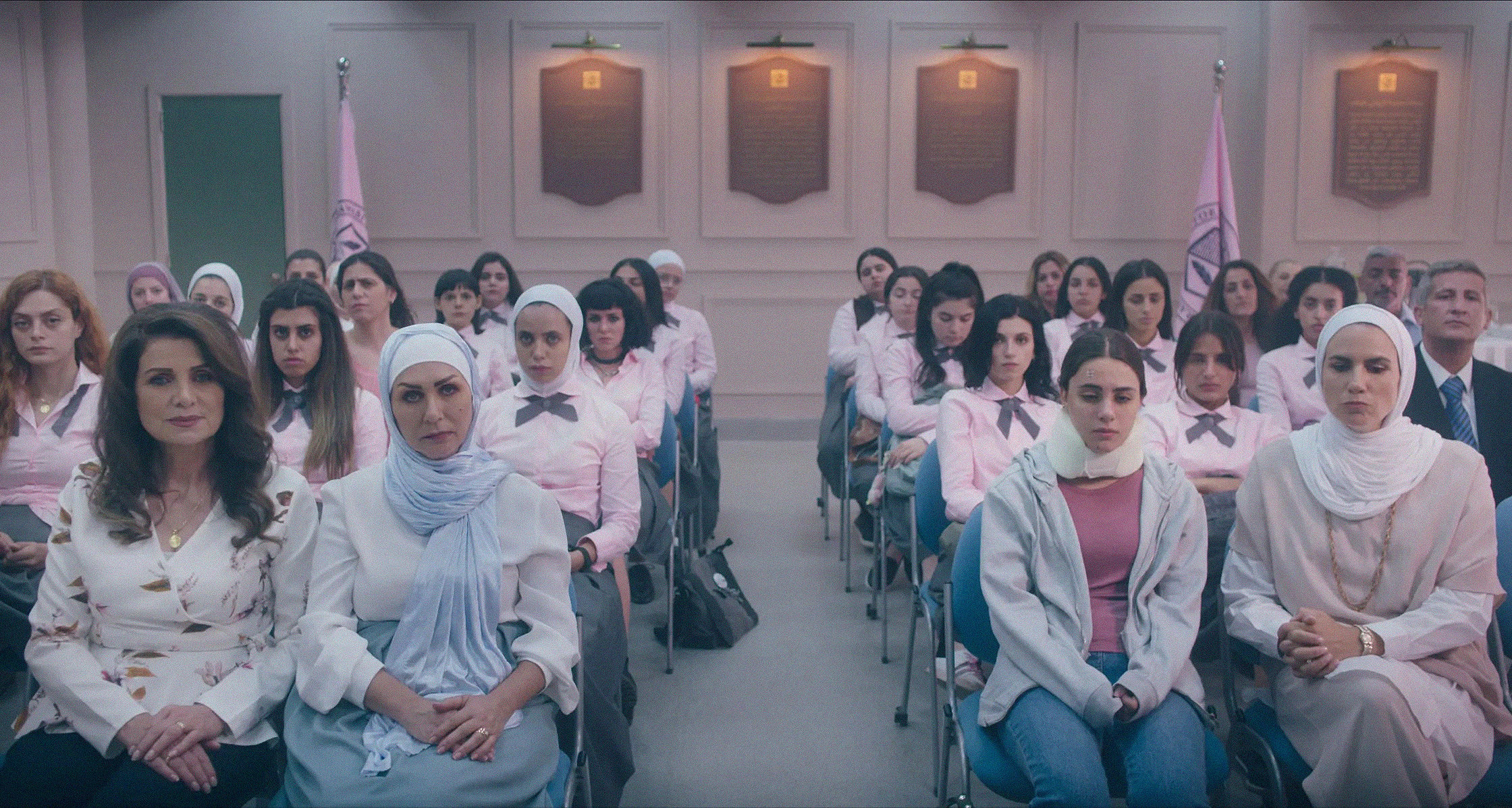
With teen dramas crowding not just Netflix but all of TV, it’s easy to think that the Jordanian series AlRawabi School for Girls won’t be any different. But while it may share a lot of similarities with other coming-of-age stories, it stands out for its willingness to explore dark themes and cultural specificities without a pandering tone. It’s smart, mature, and complex enough to give us a feminist lead who weaponizes misogyny against other girls, for instance, or a fierce bully who eventually earns our sympathy. It’s hard to imagine the treatment being this sensitive, nuanced, and wholly engaging without the all-female cast and crew that AlRawabi thankfully has.
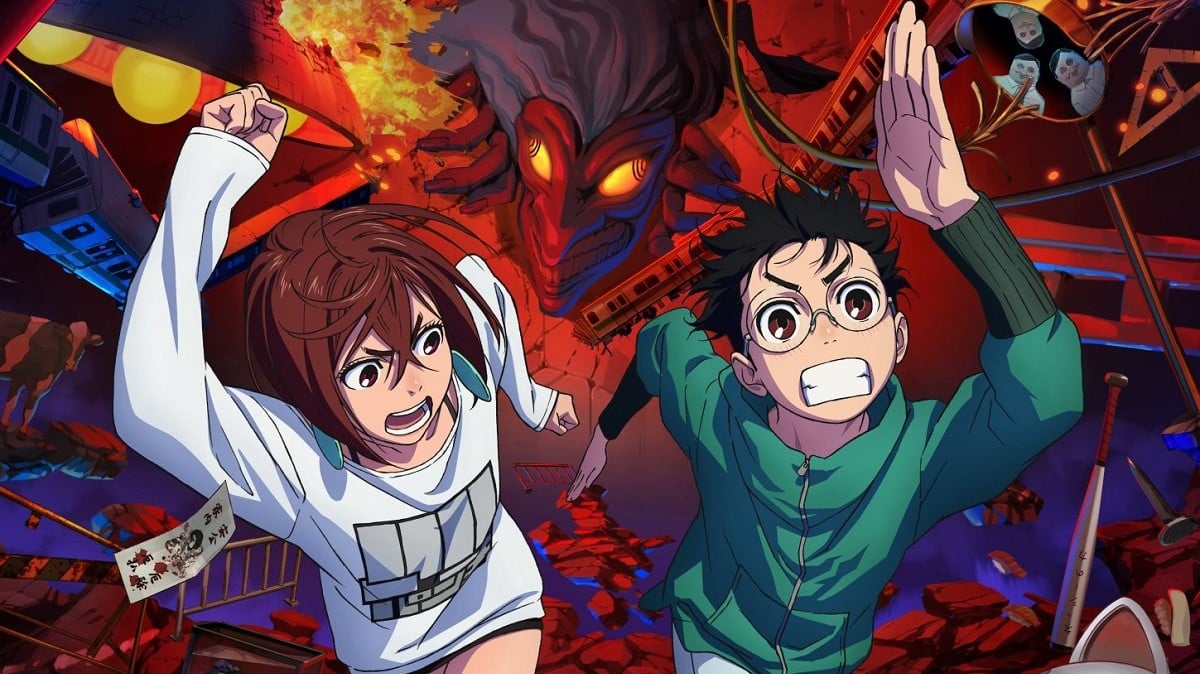
During adolescence, teenagers get to learn and discover themselves and the world, but for most people, this means going through puberty, maybe taking up a sport or hobby, and not the occult vs alien shenanigans of DAN DA DAN. The science fiction-fantasy mix is unhinged and chaotic, throwing Momo and Ken directly into the worlds they didn’t believe in, and with each crazy encounter, they gain insane powers that are rendered into (literally) out-of-this-world, kaleidoscopic animation. But it’s their comedic dynamic that makes the show work, as each absurd situation pushes them to share what makes them vulnerable and challenge each other on their beliefs. DAN DA DAN is spectacularly unpredictable, and is a standout from 2024’s anime fall lineup.

It’s a tall order to depict One Hundred Years of Solitude. Considered to be one of the world’s most important novels to read, expectations were high, the magic realism required a hefty budget, and the sprawling seven-generation plotline felt like it couldn’t fit within a feature film, or around 90-120 minutes. It’s because of this that author Gabriel García Márquez held out on selling the rights, and the family followed suit after his death. Luckily, more than half a century later, streaming television garnered enough prestige and profit to finally adapt the classic. Netflix thankfully stuck to the family’s wishes of having it filmed in Spanish, in Colombia, with Colombian actors, but it also expanded on the layered text in ways video can only do so– like fleshing out the story visually and aurally, having an omniscient narrator, and taking advantage of the medium through editing, direction, and excellent performances from the cast. Cien años de soledad doesn’t just work– it makes it so much easier to understand hype and the themes for people completely new to the text.
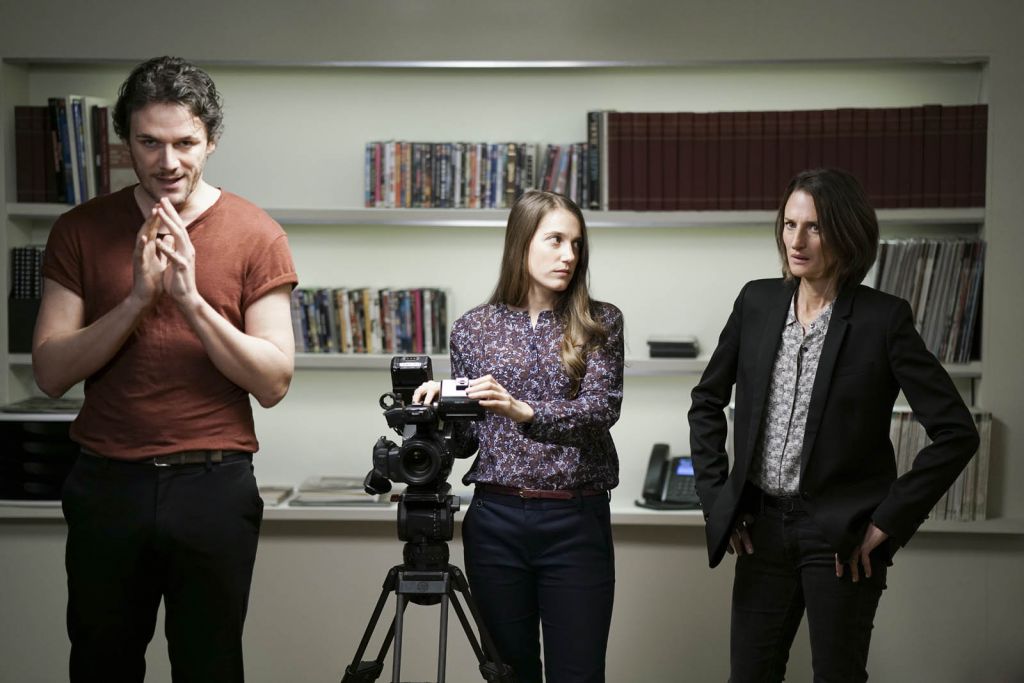
Think of Dix pour cent, or Call My Agent!, as it was so horribly translated, as a smart French version of Mark Wahlberg’s Entourage or, as the director once quipped, Desperate Housewives with actors and their agents. Ten percent (dix pour cent) is the fee that said French agents receive as compensation from the actor’s fee. It chronicles the life of an aspiring talent agent at a French casting agency. New to Paris, she lands her dream job, but now has to deal with a variety of very stressed-out, capricious characters on both sides of the bargain. It is one of those shows that finds hilarity in the fact that nobody actually talks to each other over sometimes simple issues. On the actor’s side, many of the appearing A-listers star as themselves. The countless cameos include the likes of Jean Reno, Monica Belucci, and Charlotte Gainsbourg. It’s basically a soap opera but so well-written and complex, you might refrain from binging it too hard just to make it last longer.

You might not have heard of it, but this show was huge in Denmark. I mean, one million people watching in a 5-million-people country huge. Far from being the tasteful Nordic Noir international audiences are used to, Rita revolves around a mid-40s, single mum of three older kids, leather jacket-clad private high school teacher with a big mouth and a heart to go with it. Mille Dinesen plays the titular female lead, who smokes in the school bathrooms and, well, bangs the school principal. But in addition to the rule-bending rebel facing off overprotective parents, know-it-all students, and her growing kids, Rita also deals with serious topics like balancing work and family, being a role model, and abortion, albeit in a hilarious and, well, delightfully Danish way.
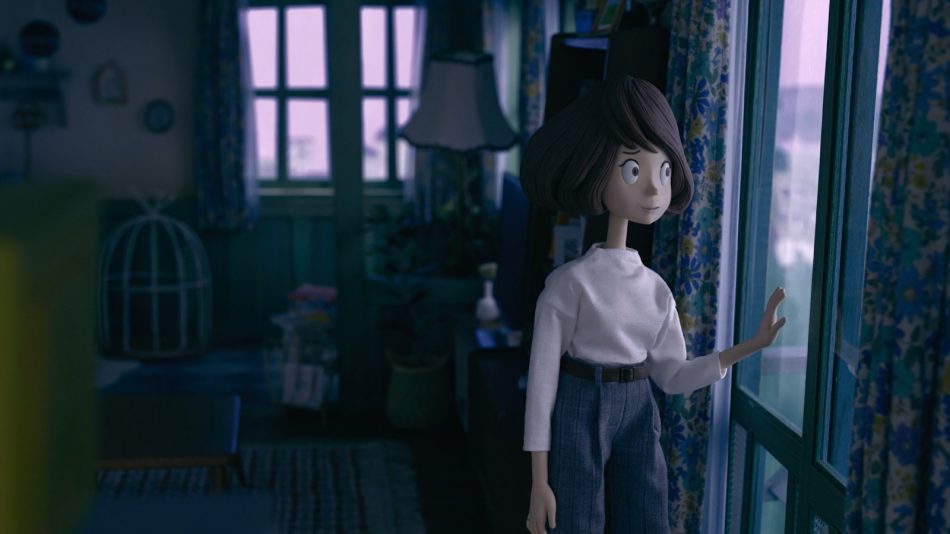
Meet Rilakkuma, a relaxed teddy bear (which is indeed what his name translates to in Japanese), and Kaoru, a Japanese office worker in her mid-thirties, who lives with said bear as well as a smaller white bear named Korilakkuma and a yellow chick by the name of Kiiroitori. As whimsical as all this may sound, the show offers up endearing and humane life lessons to go with all the heart-warming cuteness as Kaoru navigates being single, her apartment building being demolished, and her job stressing her out. It combines charming stop-motion characters with great writing, adorable animation, and a beautifully quiet tone. You might be surprised at the profundity of a show that, at the surface, is about a Japanese girl with cuddly toy roommates. It’s hard to compare it to anything else!
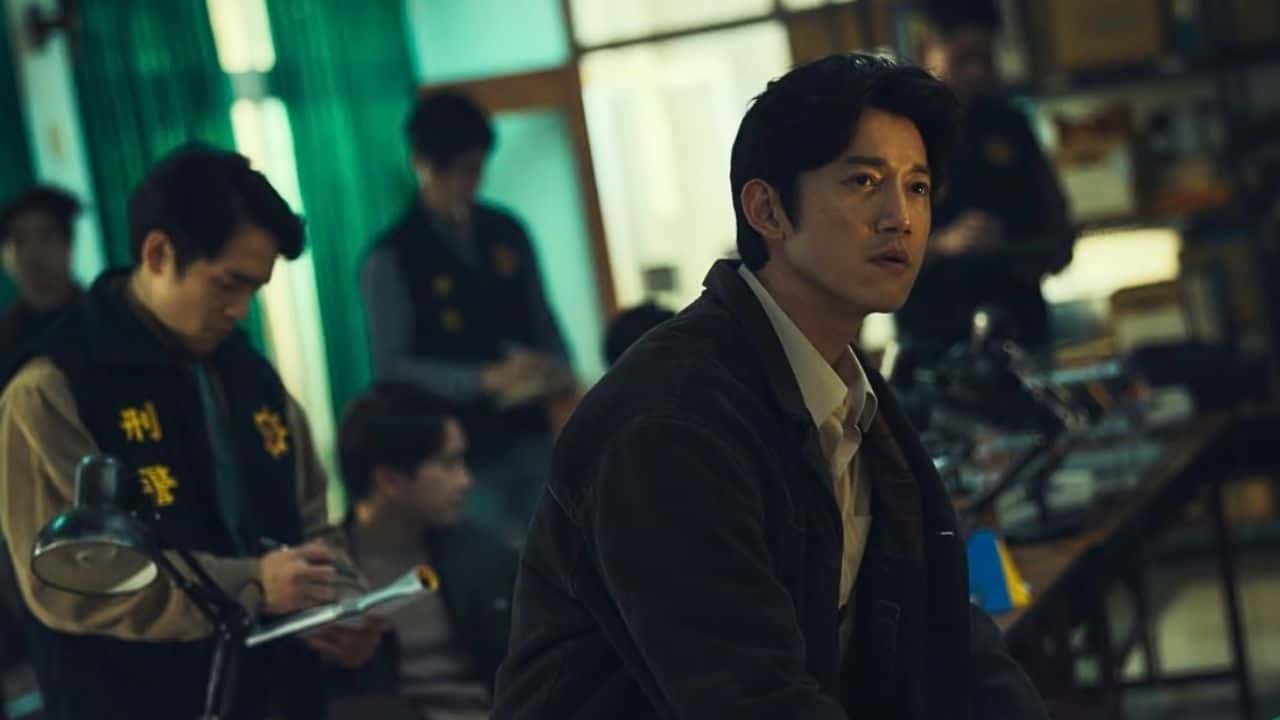
Copycat Killer is a gripping and unsettling crime thriller that takes its time to develop its characters and delve into a disturbing cat-and-mouse game between a relentless prosecutor and a manipulative serial killer. The show’s slow-burn approach keeps you invested in the characters’ journey, while the horrifying events remind you of the potential dangers lurking in the real world. With a mix of tension, manipulation, and grisly acts, Copycat Killer leaves you on edge, keeps you guessing at every turn, and serves as a reminder of the dark realities that exist in society.

Reimagining a children’s classic as a mature serial killer mystery, PLUTO already had high expectations for its anime adaptation. The limited series adds an additional challenge, with only hour-long episodes dedicated to each of the series’ eight volumes, which follows not only Gesicht’s own investigation, but also in-depth stories of each of the remaining Great Robots. However, the anime, now showing on Netflix, is able to meet this challenge with its deep understanding of the source material. It’s not just a straightforward police procedural, or just futuristic dream of how AI and humans can co-exist. PLUTO is a robot series that strikes at the heart of what it means to be human.

On the surface, The Makanai is a simple, slice-of-life show about food and friendship. While it is that, to be sure, it’s also a substantial drama that tackles questions about art vs. love, and love vs. companionship, and career vs. purpose. Under the gentle guidance of showrunner Hirokazu Kore-eda (Still Walking, Shoplifters, Broker), who generously allows up-and-coming directors to take the helm on certain episodes, The Makanai feels at once light and hefty, comforting and challenging. We’re seeing mundane events unfold before us as if we were bystanders, but we also understand that there is so much more happening than what meets the eye. A prolonged gaze, a lovingly prepped meal, an especially sharp wing-eye, all of these have much to say about the state of mind of these girls.
It’s a supremely gentle and culturally rich show with a tender heart; a truly great watch on all accounts.

Leya is a businesswoman and single mother in her 20s who is trying to get her struggling startup off the ground while working at a restaurant.
When she finds an investor who’s willing to help her realize her dreams, he requests that she first pays off her outstanding debts to her previous investors. For this, she borrows from her brother-in-law who is in a violent drug gang.
It’s such a stylish and fast-paced thriller, based on Jens Lapidus’s famous Stockholm Noir Trilogy, except the gender of the lead role is reversed.
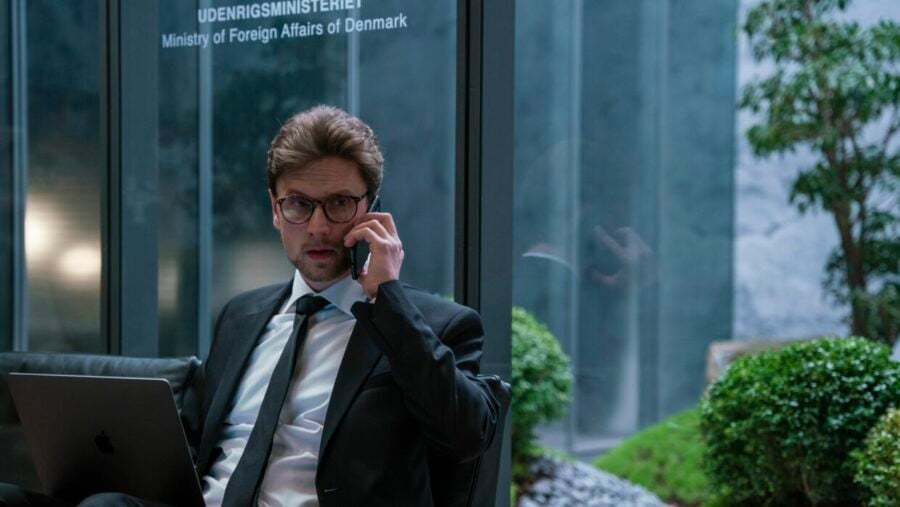
Netflix’s resurrection of the hit Danish drama Borgen comes in the form of Borgen: Power & Glory, a miniseries that sees Birgitte Nyborg (played by powerhouse Sidse Babett Knudsen) step down as prime minister and take over the foreign minister position while wrangling over power, principle, and family. In this particular revival, Birgitte butts head with the new prime minister, who is all for drilling oil in the autonomous region of Greenland despite Birgitte’s firm stance against climate change. The event turns into a geopolitical crisis that tests Birgitte’s values.
The series is as whipsmart, relevant, and funny as ever, although if you haven’t seen previous seasons of the show yet, don’t fret. Borgen: Power & Glory efficiently catches you up on all you need to know in the first few minutes. It’s a standalone, engaging drama that’s a breeze to go through at just eight episodes.

From the mastermind behind Netflix’s Kingdom, Kim Eun-Hee’s Signal is an exhilarating series that seamlessly weaves together gripping crime thriller elements with an intriguing touch of supernatural. With its unique premise of a mysterious walkie-talkie that connects the past and the present, the show follows a team of detectives from different eras as they collaborate to solve cold cases and unravel the secrets behind unsolved crimes. The superb writing and exceptional performances by the cast, including Lee Je-hoon, Kim Hye-soo, and Cho Jin-Woong, have made Signal a major hit among K-Drama fans.

Pernille is the kind of show that makes you feel simultaneously giddy and sad, and the kind that makes you skip the credits as soon as you can to play the next episode. Like a Norwegian Better Things, it follows the titular Pernille (Steenstrup) as she raises two difficult but loving daughters, an emotionally distant nephew, and a father who’s found a new lease in life after finally coming out of the closet. To top it all off, Pernille works in child welfare, earning the ire of many unfit parents as she thanklessly saves children from abuse. Pernille is sometimes fun to watch—the heroine is prickly and plucky as she navigates her duties while carving out time for herself (often sexually). But sometimes it’s also difficult to watch. Between being a social services agent and a mom, Pernille comes to learn she’s not always right. But she is relatable and real, and therefore ultra comforting to watch.
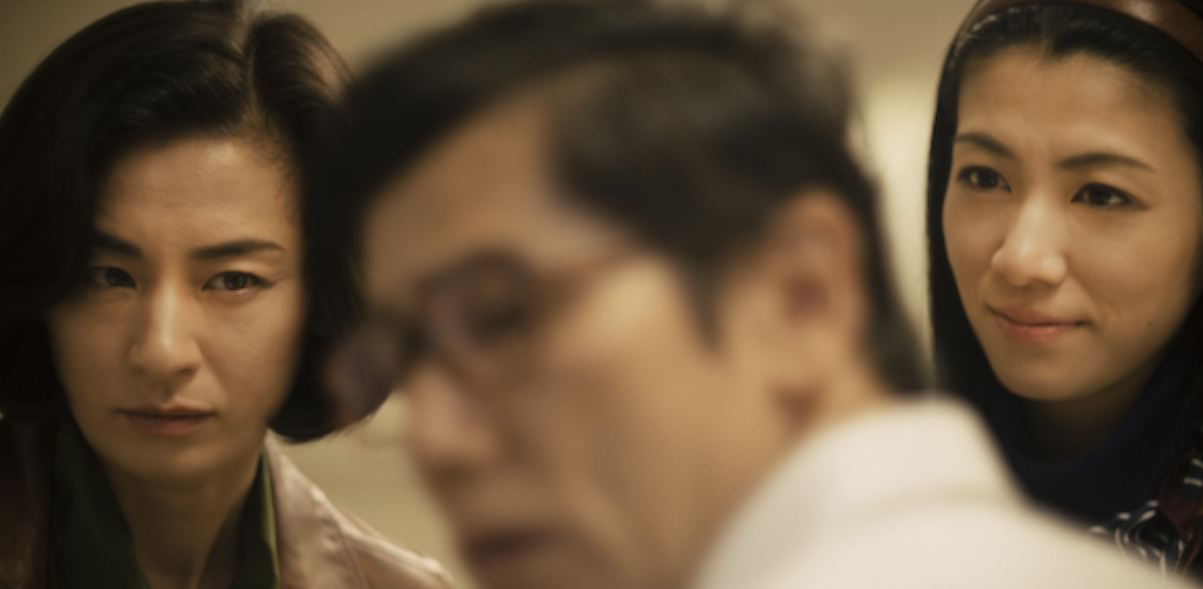
Asura is a very particular period piece about the typical, rule-following Japanese family in the 1970s, and yet it feels universal too in its tales of family, marriage, and above all else sisterhood. Based on a novel by Mukoda Kuniko, Asura captures the frustrating, odd, exhilarating, and reassuring specificity of having a sister. You could be in a severe argument one second but laugh about an accident in the next. You could get mad at your sister for staying in a toxic relationship while offering her a place to stay and promising not to judge her in the same breath. And as we witness the dynamics of these four sisters, we also get to see the relationships they pursue (or run away from) all while trying to stay afloat amid Japan’s rigid societal rules. “Is it happiness for women to not make waves?” their mother asks. The entire series sees the women try and fail and try again to answer that all-important and ever-relevant question.

The title of this romantic comedy series refers to the unusual meet-cute between its leads. As wealthy heiress Yoon Se-ri gets into a paragliding accident in the North Korean part of the DMZ, she meets KPA Captain Ri Jeong-hyeok. Considering the tension between the nations, this creates more life-or-death stakes than other non-fantastical romcoms. But rather than play it out in the most dour of ways, the series has fun with it, with a humor that riffs on the sheer awkwardness of the situation and the leads’ shared humanity. Crash Landing on You does take on some of the K-drama formula, but it brilliantly uses it to humanize both sides of a peninsula that once was united.

If you liked Netflix’ Stranger Things gloomy suspense, sit tight because there is a lot more of where that came from in Dark. Here is what they have in common: the aesthetic, great music, and they’re both about the disappearance of a child. Other than that, it is very difficult to compare Dark to anything else I’ve seen before.
This German show is about a town with a long and dark history, which is brought to the forefront of the collective conscious when a child goes missing. The plot twists and turns through decades of history – and that’s as much as I will share without ruining the show for you.
Dark uses beautiful aesthetic, both visually and musically, to be compelling and painfully tension-ridden.
Season two has more bouncing between timelines and more dark and inexplicable events, as now six people are missing.

At first glance, Monster doesn’t seem like the typical anime of the 2000s. With its muted colors, realistic action, and Eastern European setting, it seemed like a more subdued series compared to other thrillers. But because it feels so realistic, Monster is one of the most thrilling psychological series that happens to tackle the value of a human life, as the compassionate doctor Kenzo Tenma grapples with the weight of having saved a boy who grows up into a manipulative psychopath. Mangaka Naoki Urasawa and showrunner Masayuki Kojima directly challenges their respective philosophies through excellently paced investigations, well-developed characters, and the thorough examination of the different ways humanity has failed each other, and it’s downright beautiful to see how this anime adapts Urasawa’s complex, sophisticated story so faithfully.
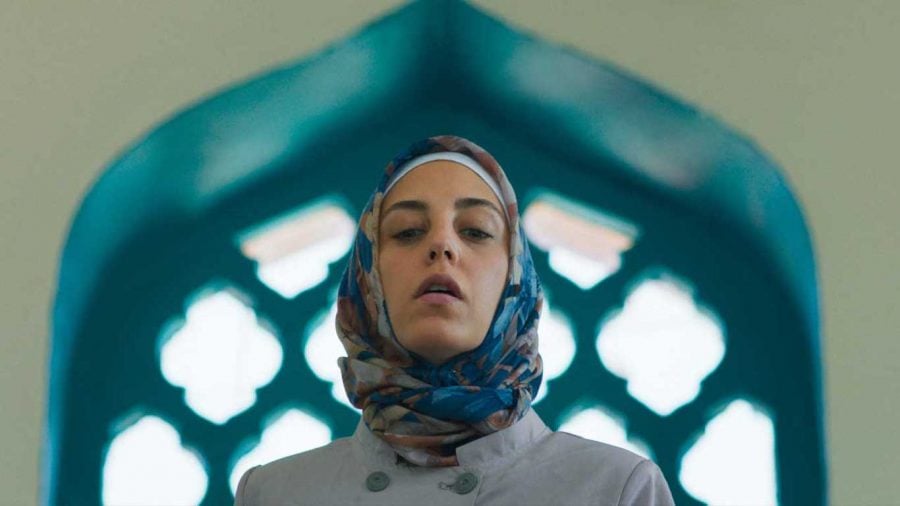
This gorgeous drama-thriller is set in bustling Istanbul where different characters, mostly women, cross paths.
And when I say gorgeous, I mean of the drop-dead variety. The cinematography is reminiscent of the Japanese style of Kazuo Miyagawa or Columbus director Kogonada.
And it’s all matched by the dialogue. The first episode follows a woman who lays bare her life in a first session with a psychologist. The story then moves on to her psychologist seeing her own clinician, mostly discussing how she feels about seeing veiled patients.

